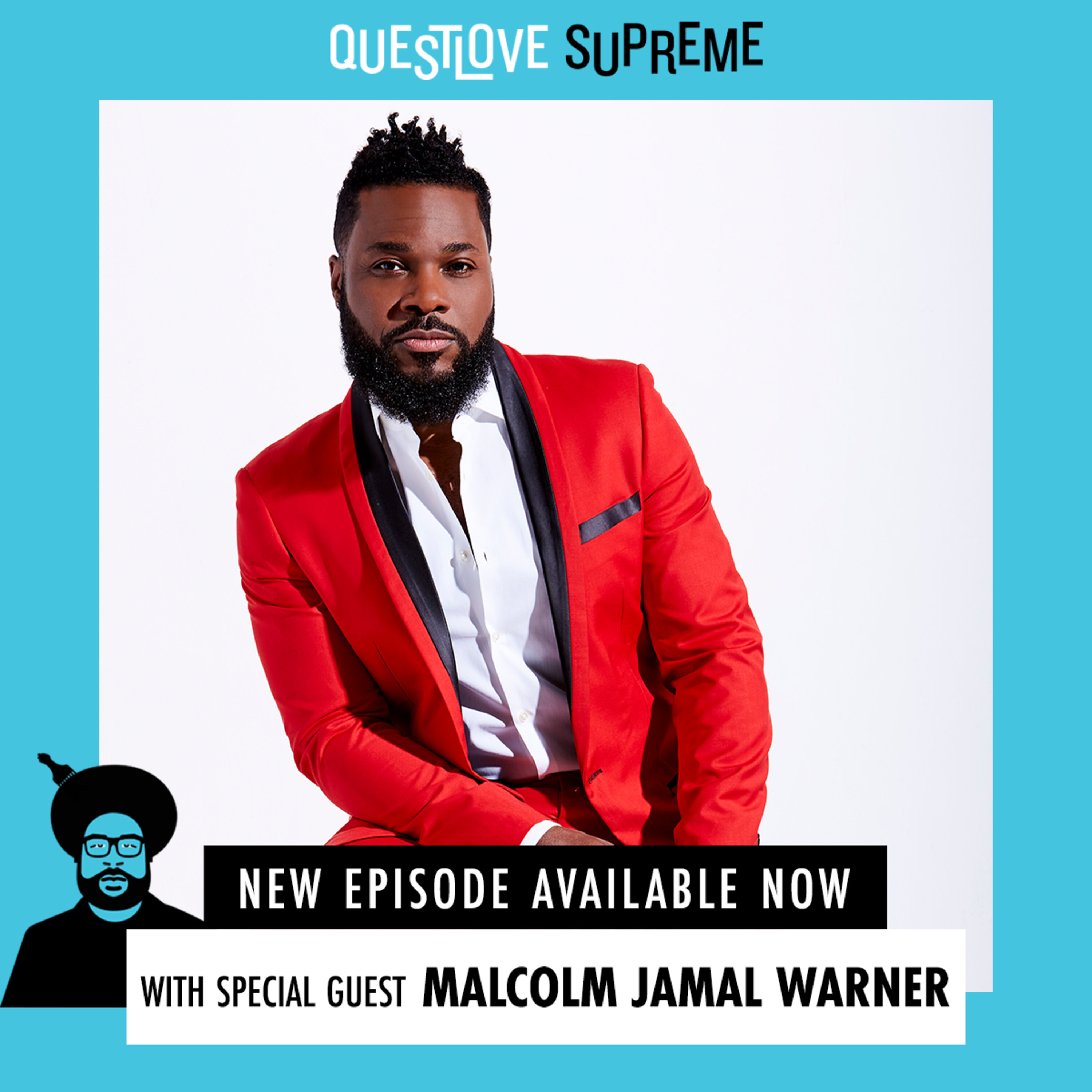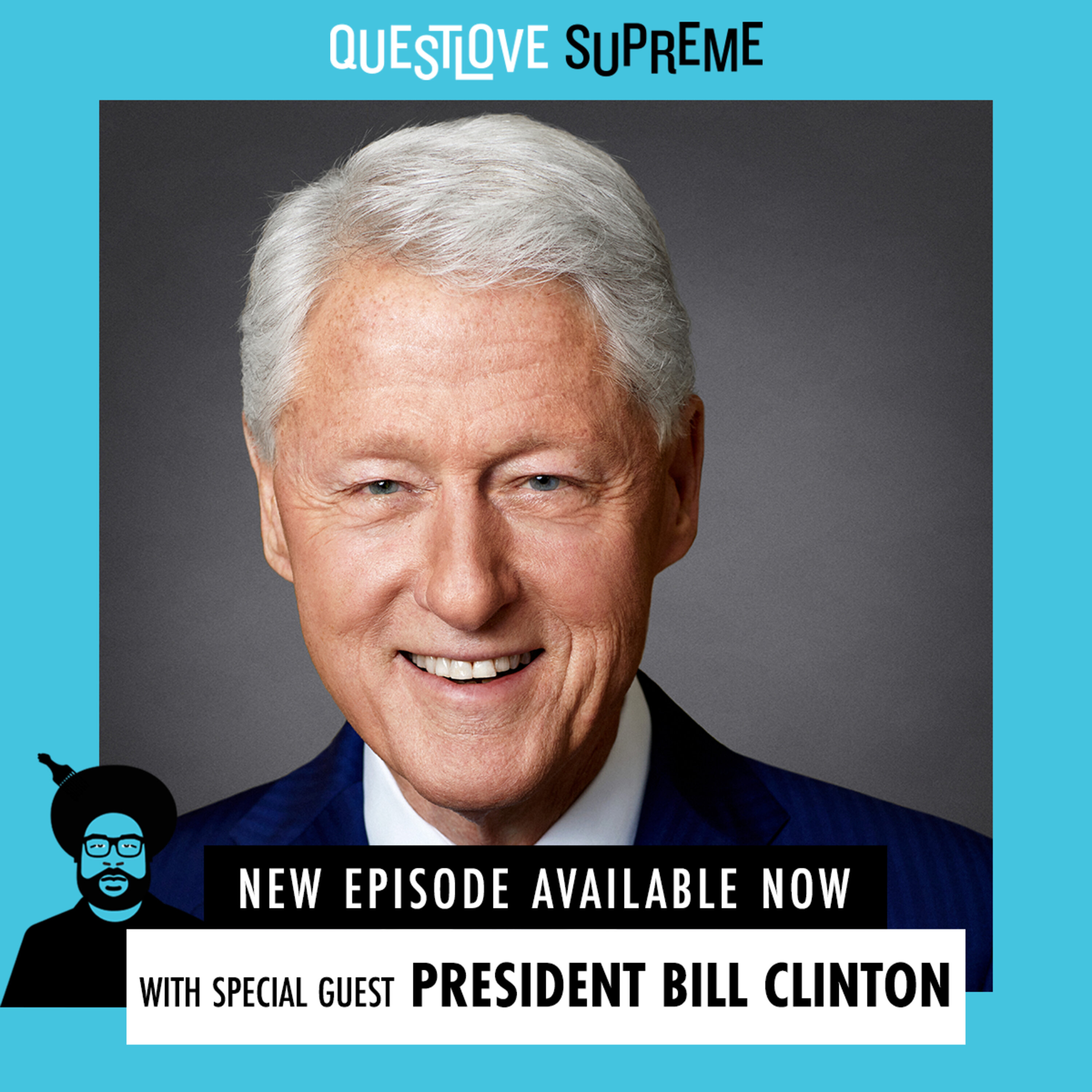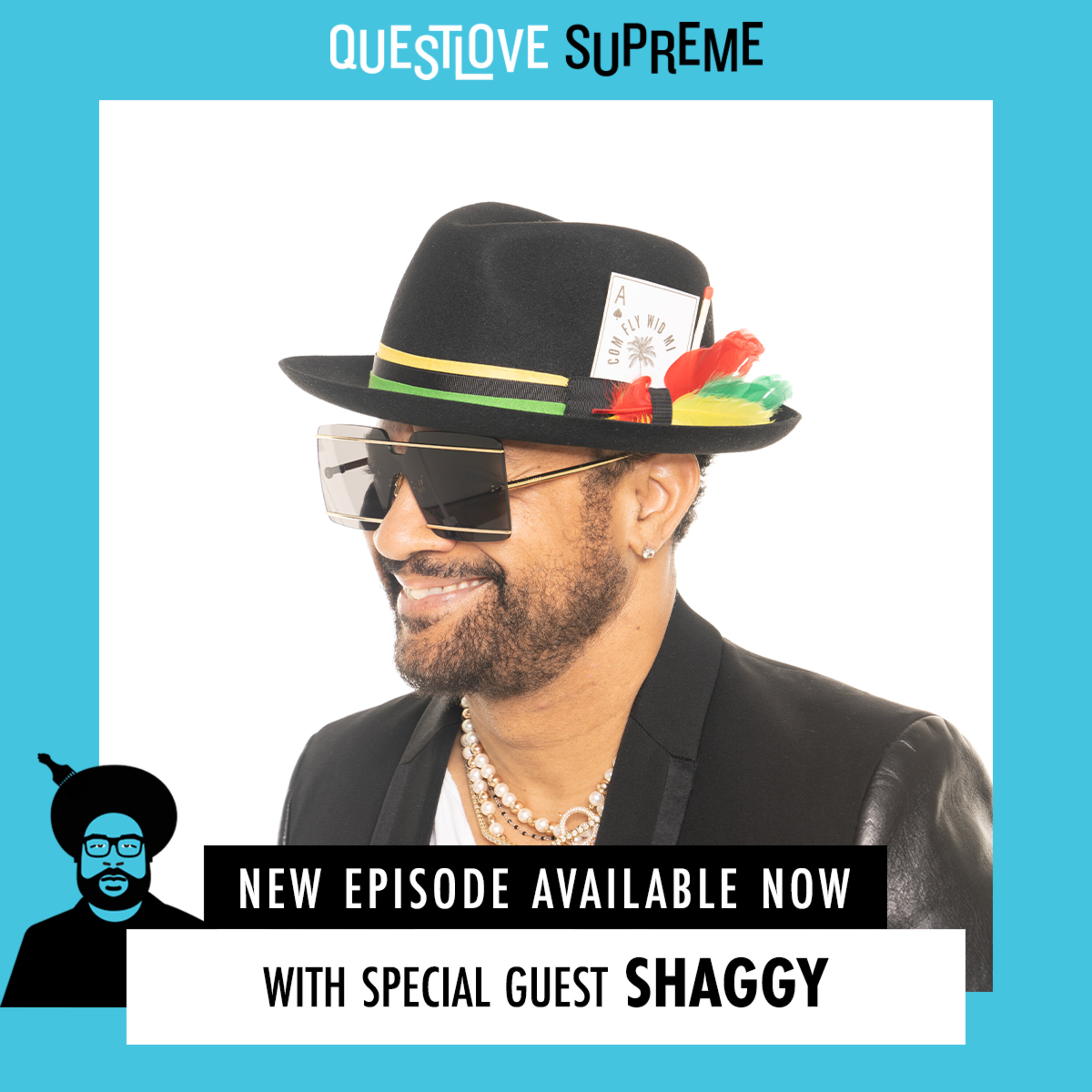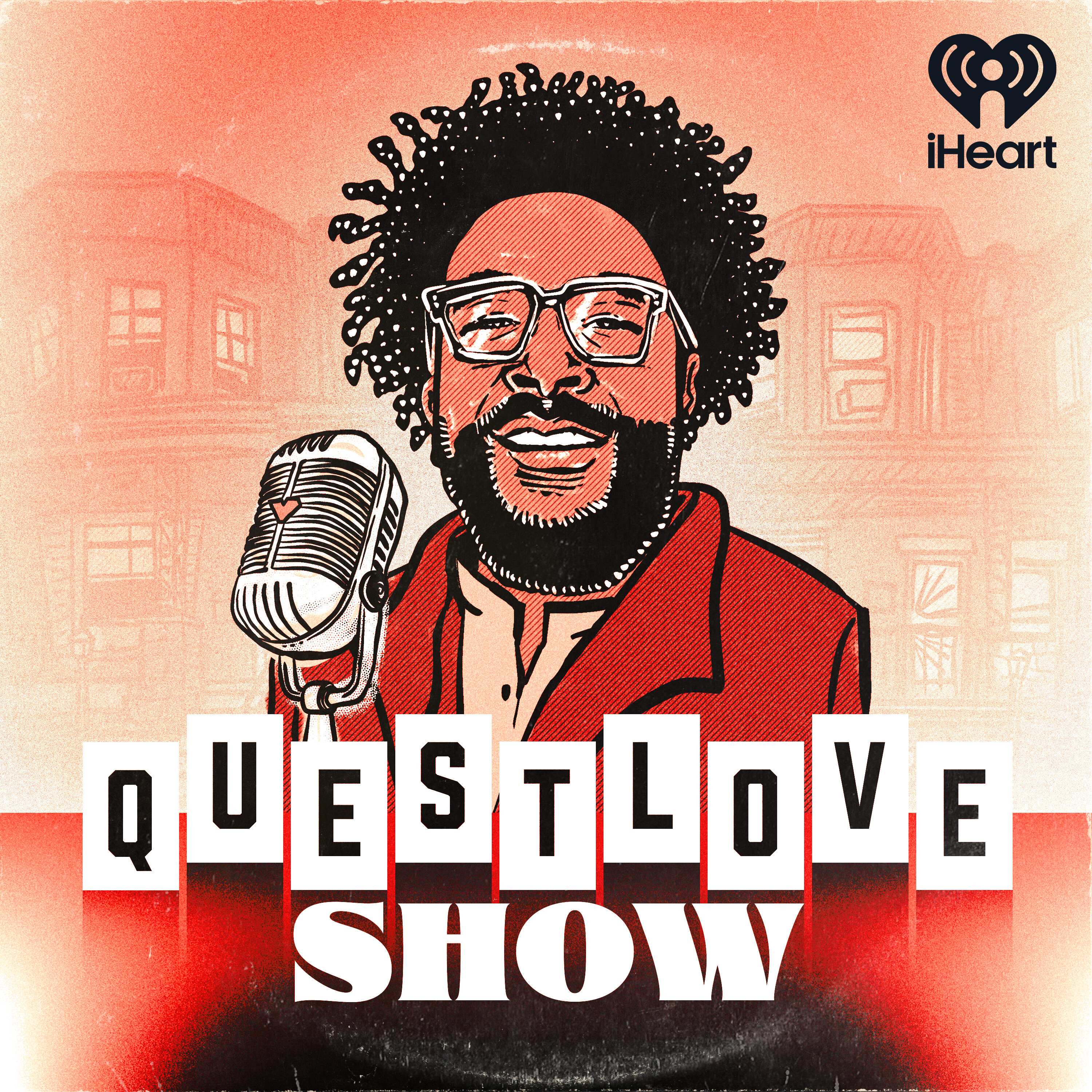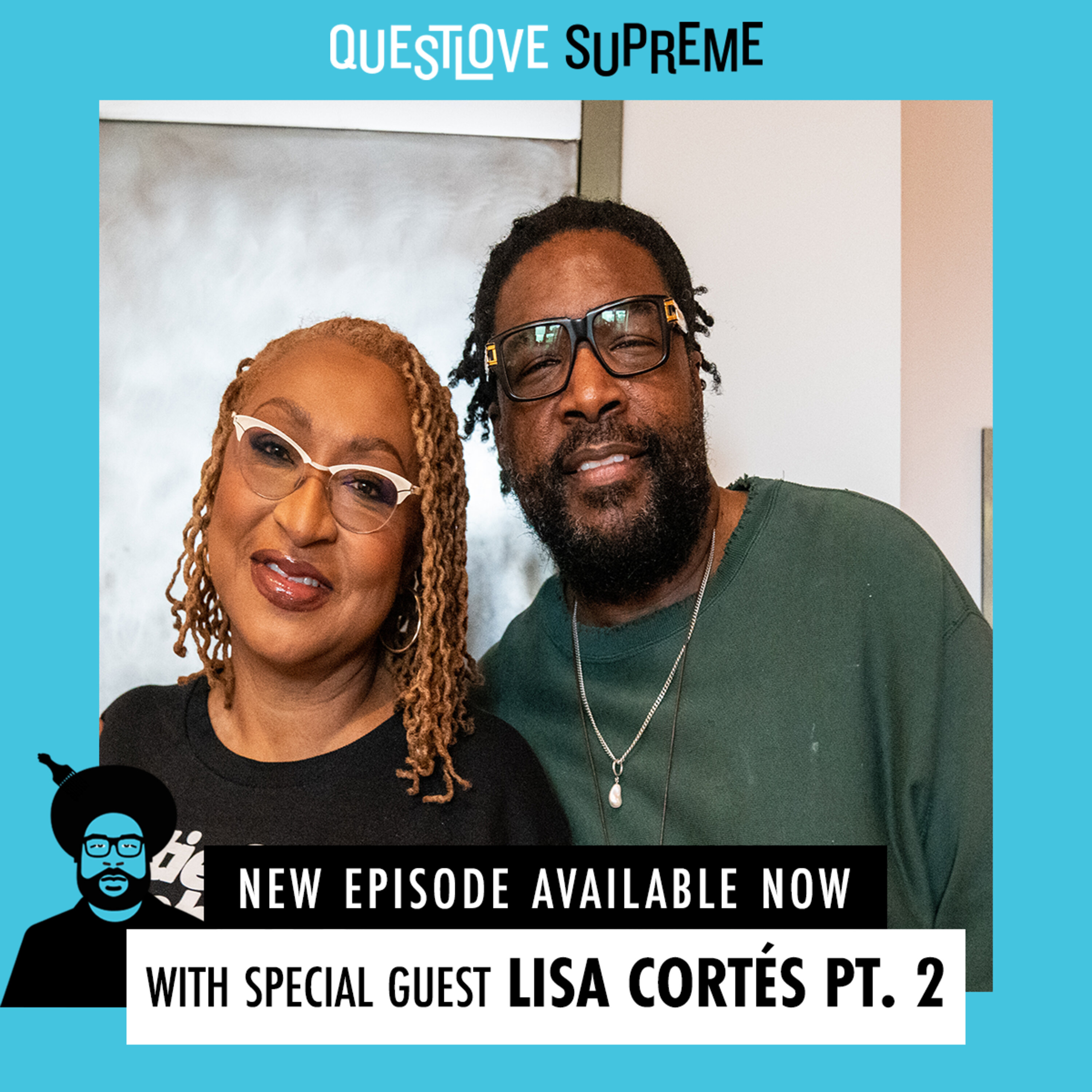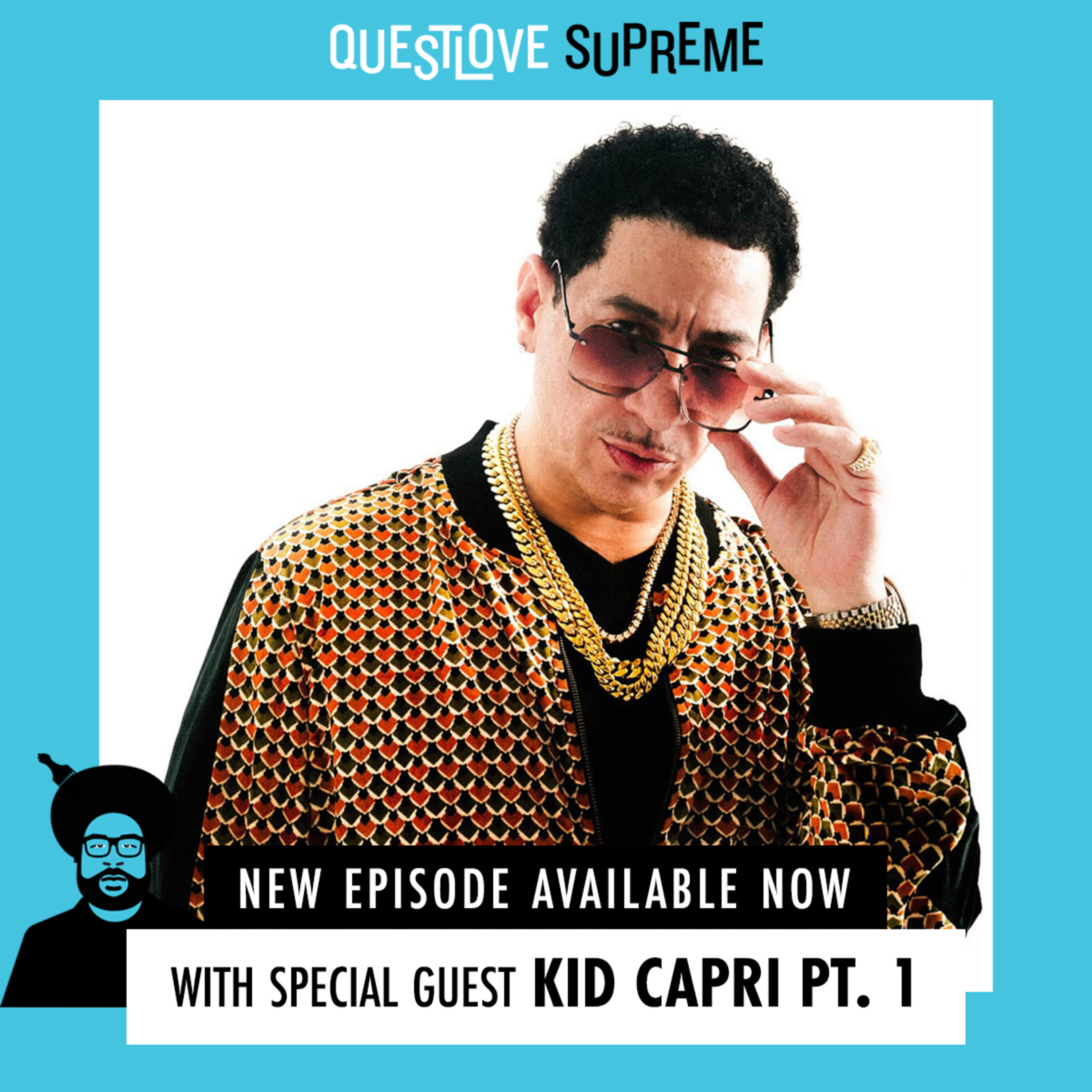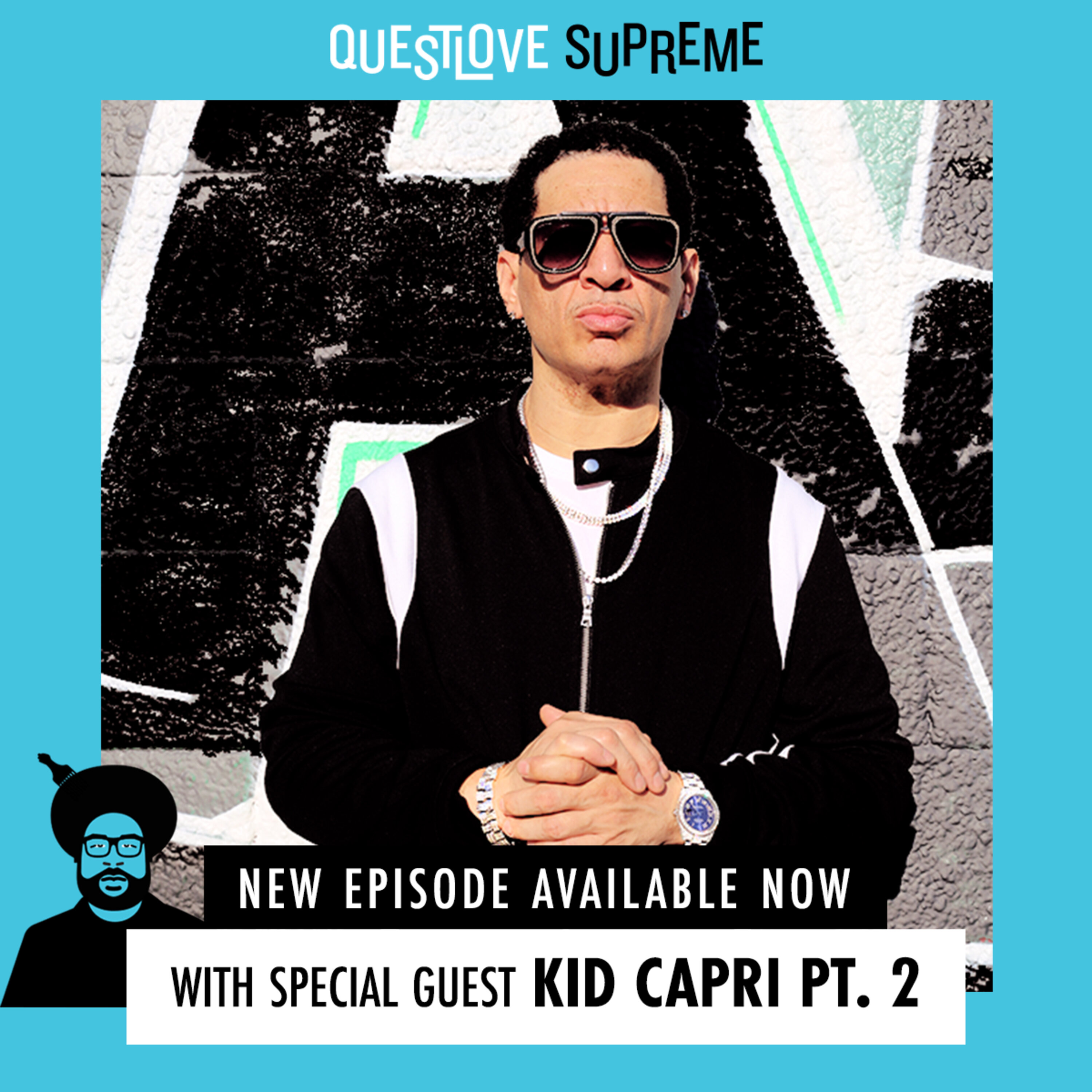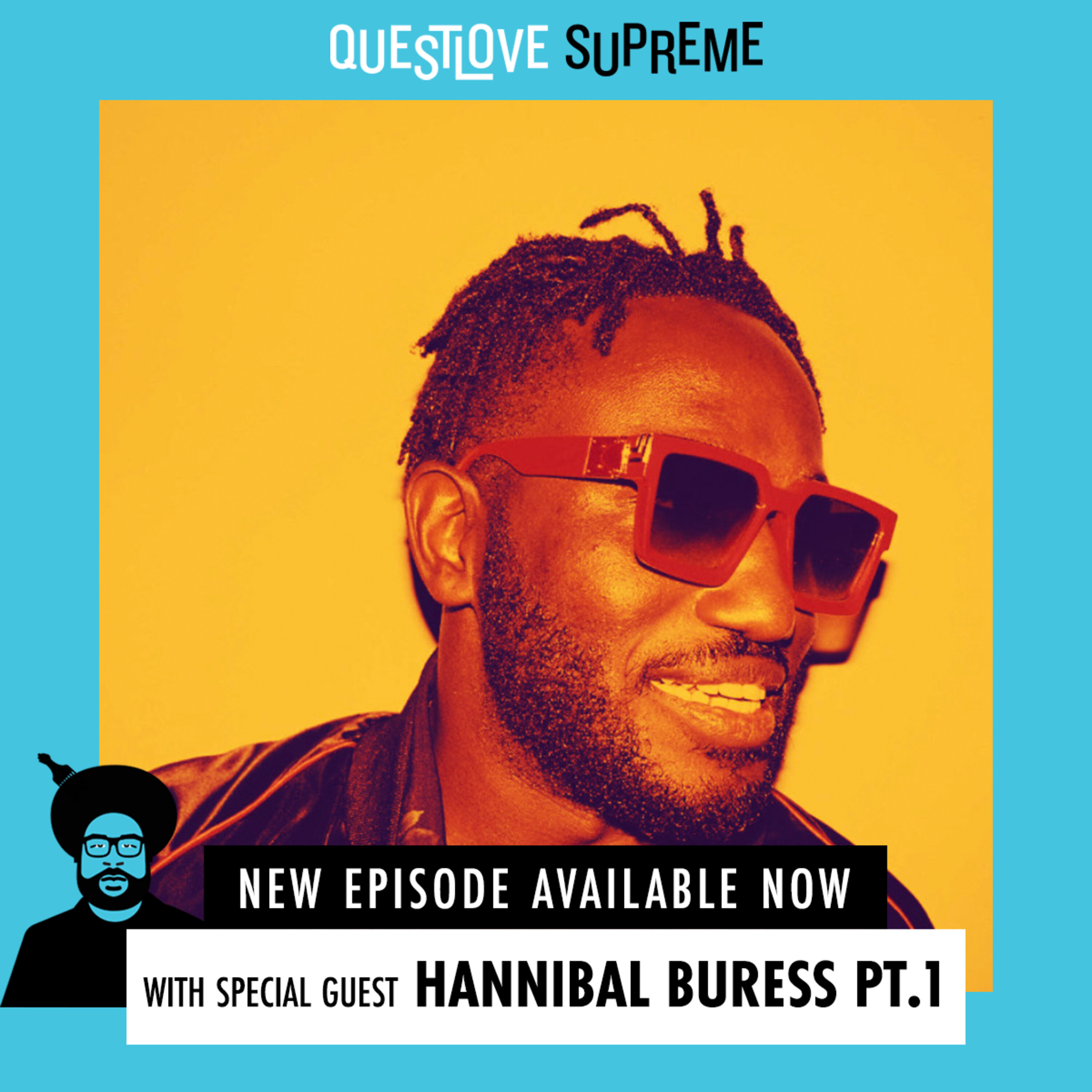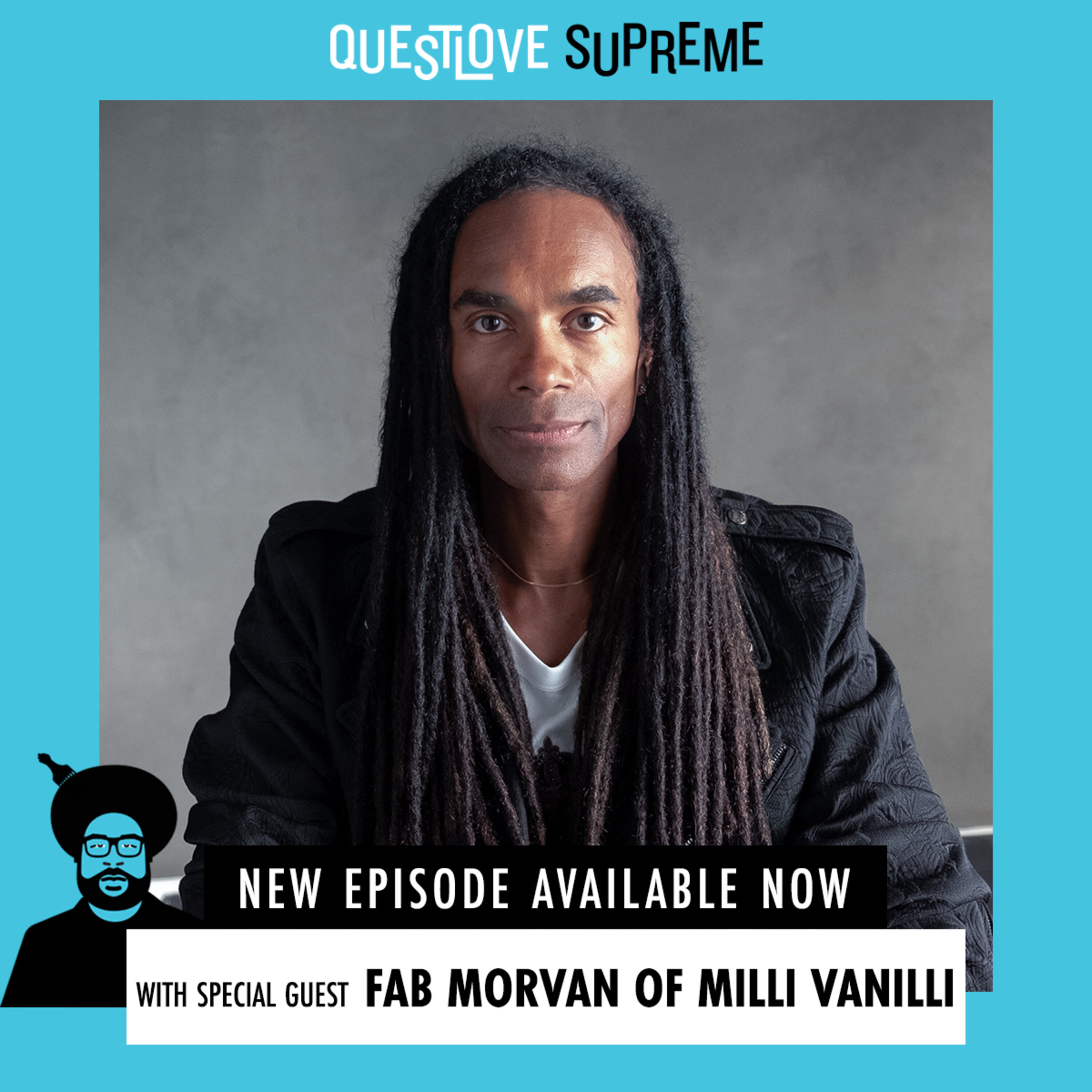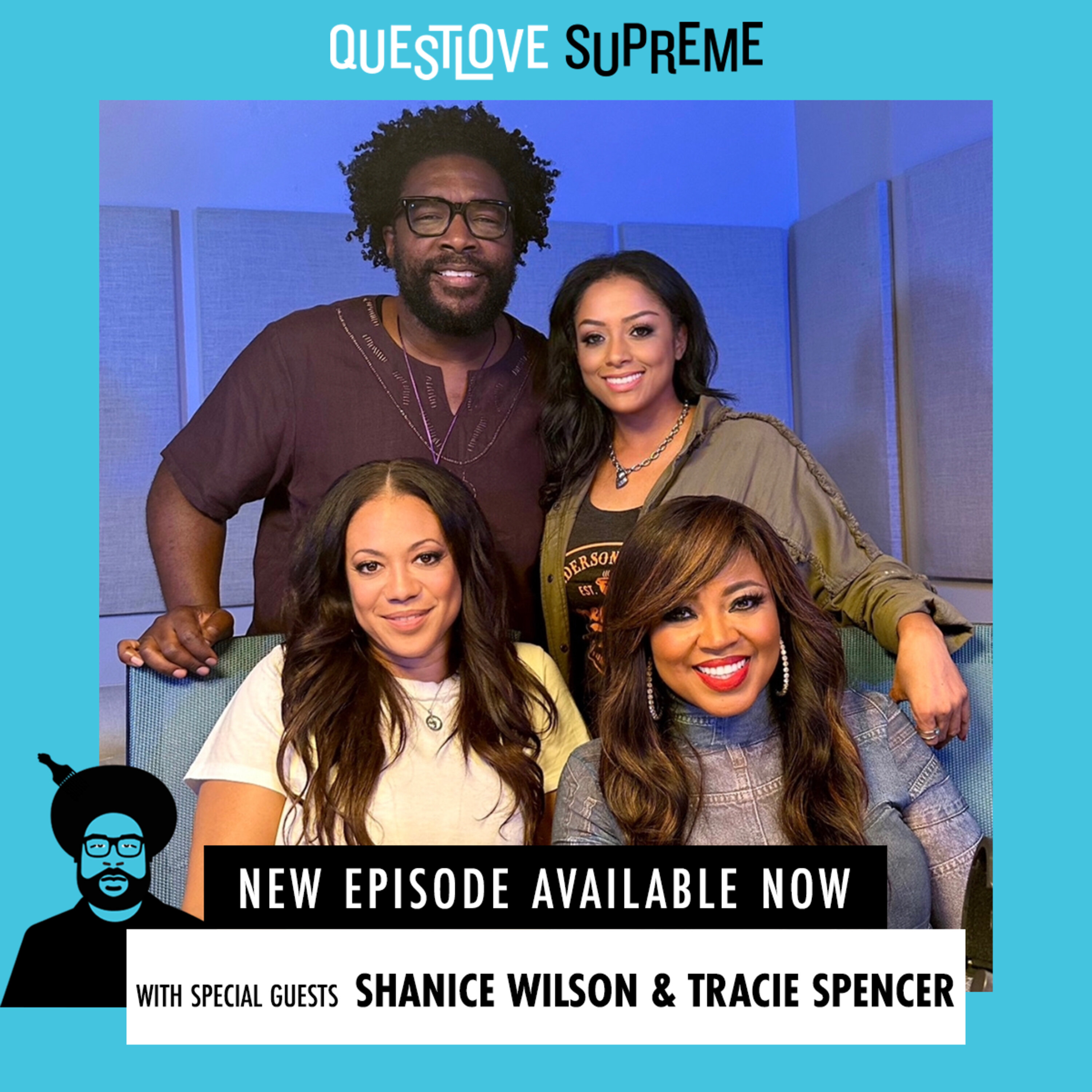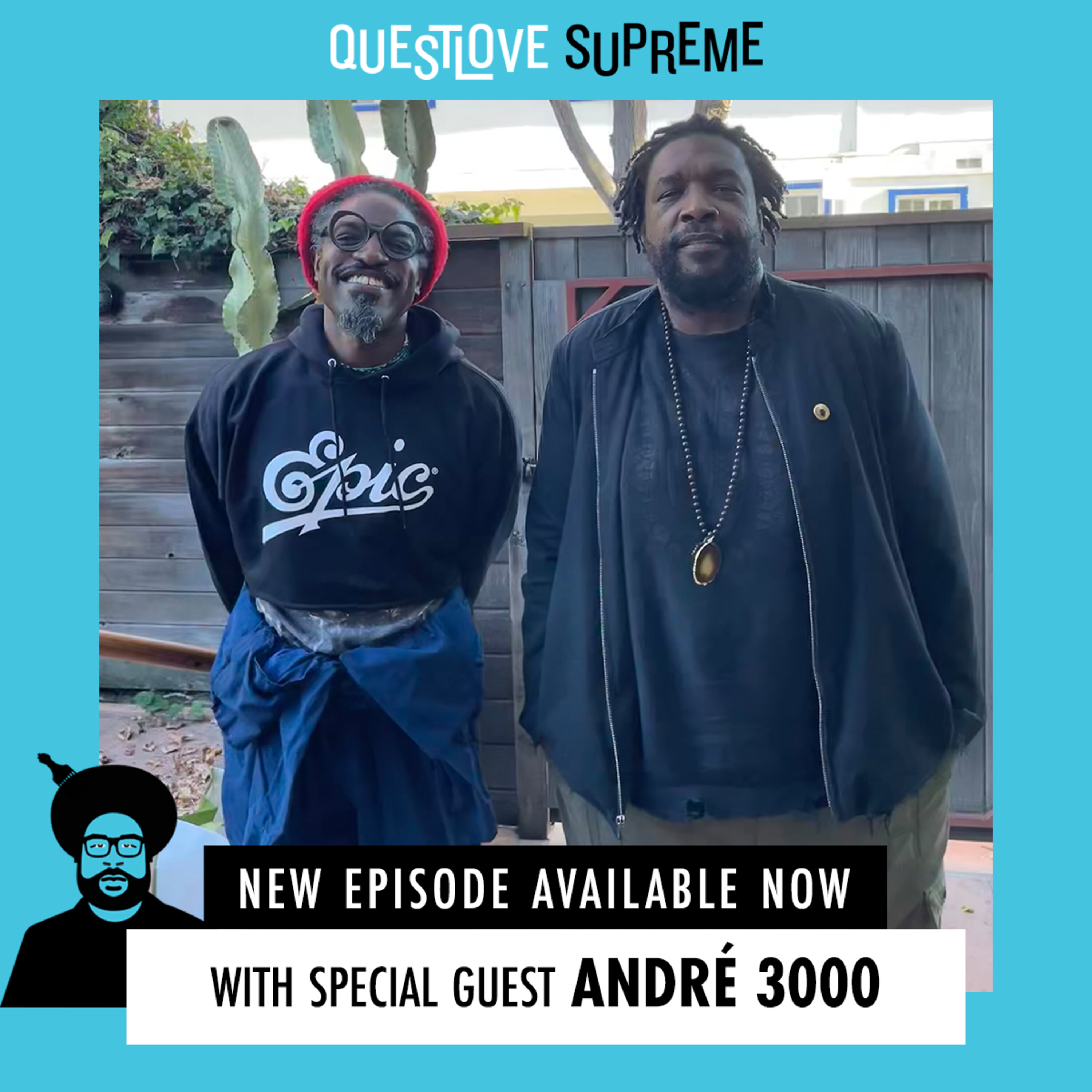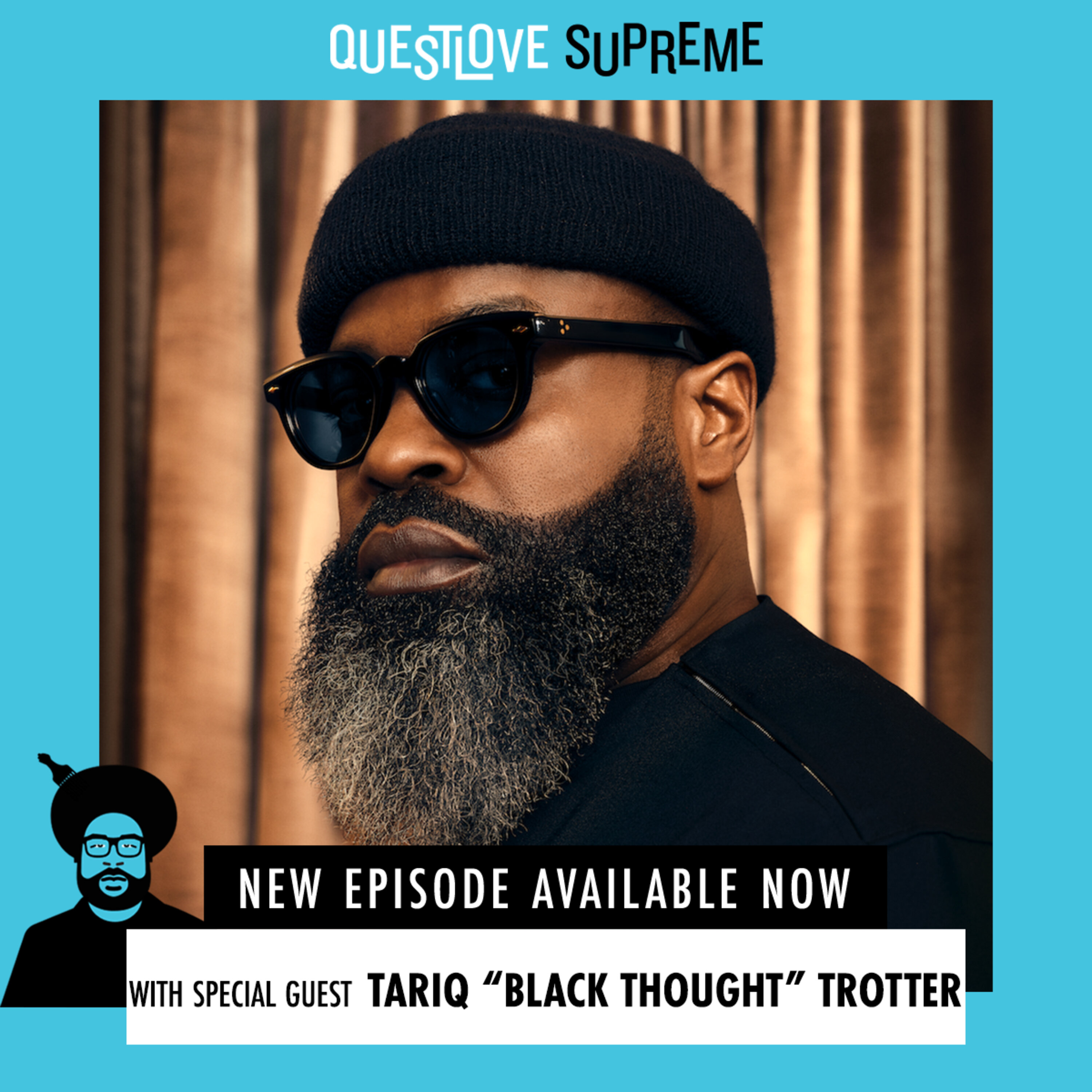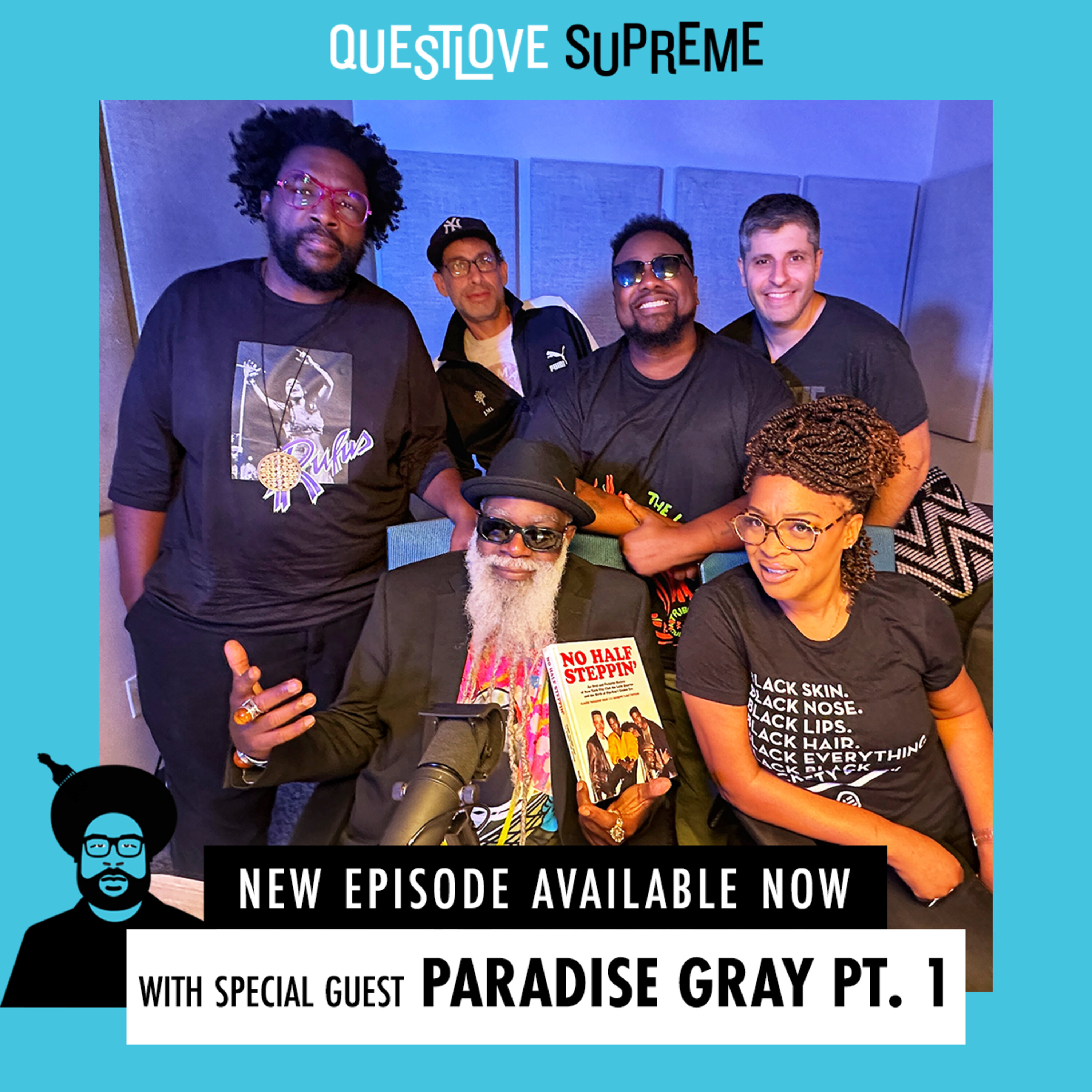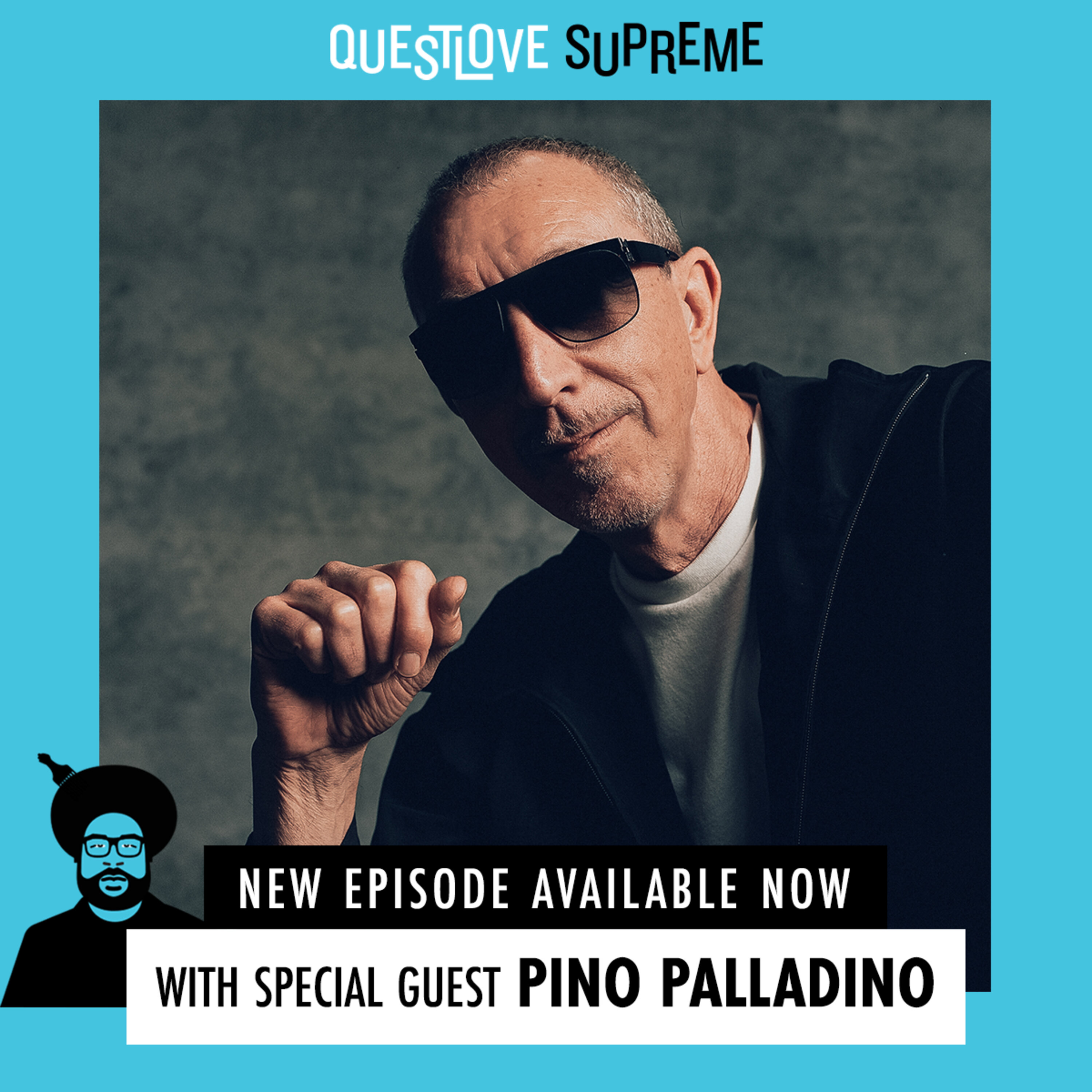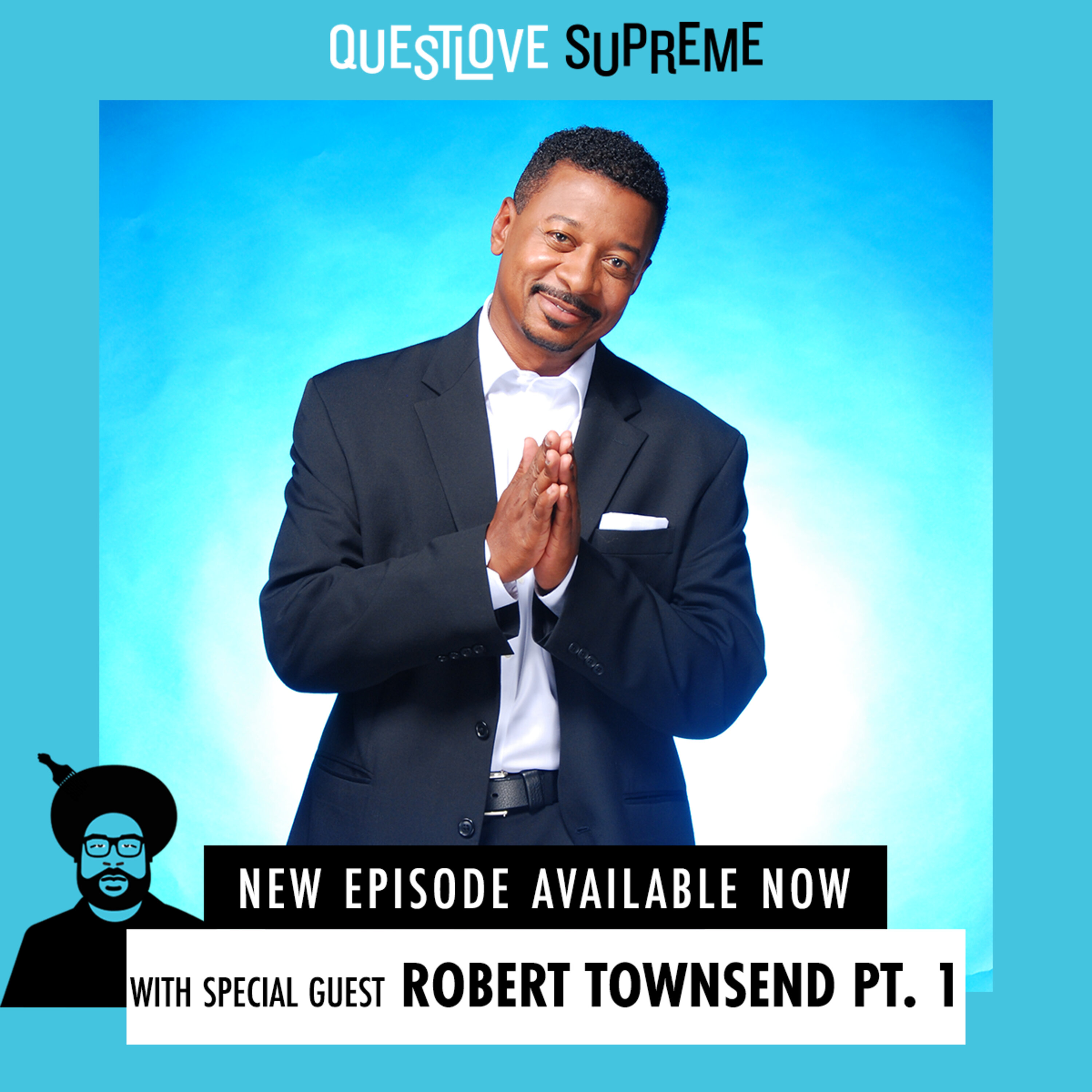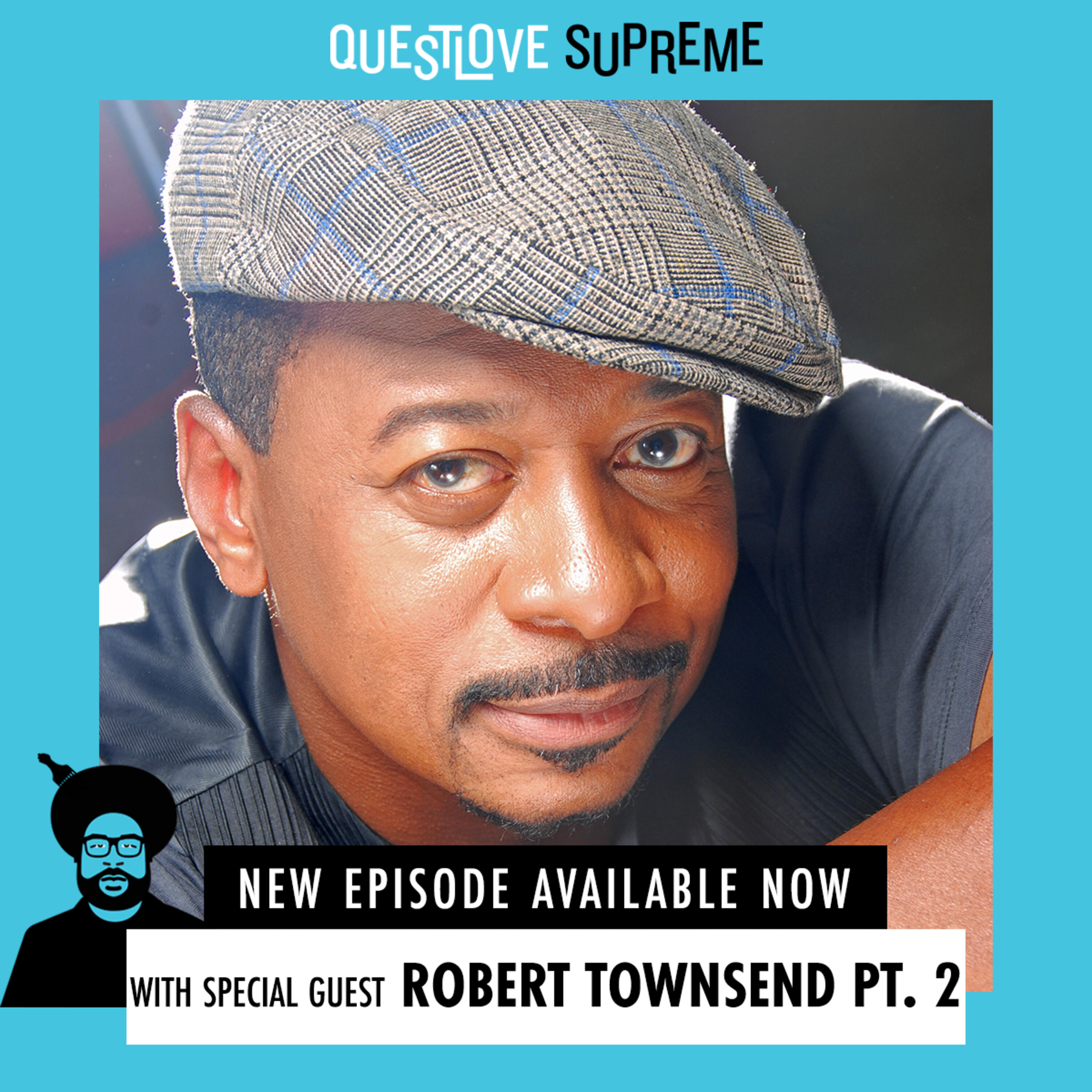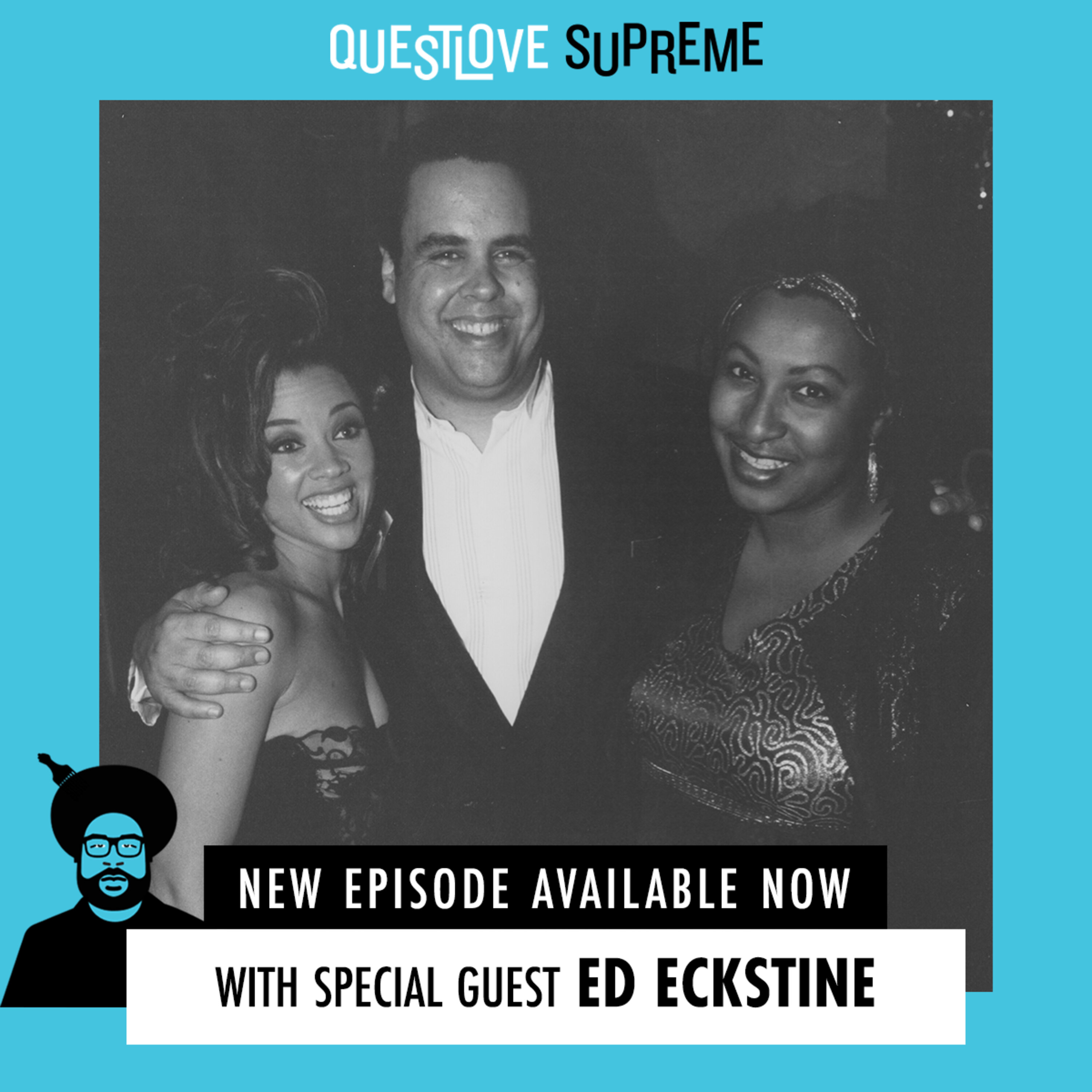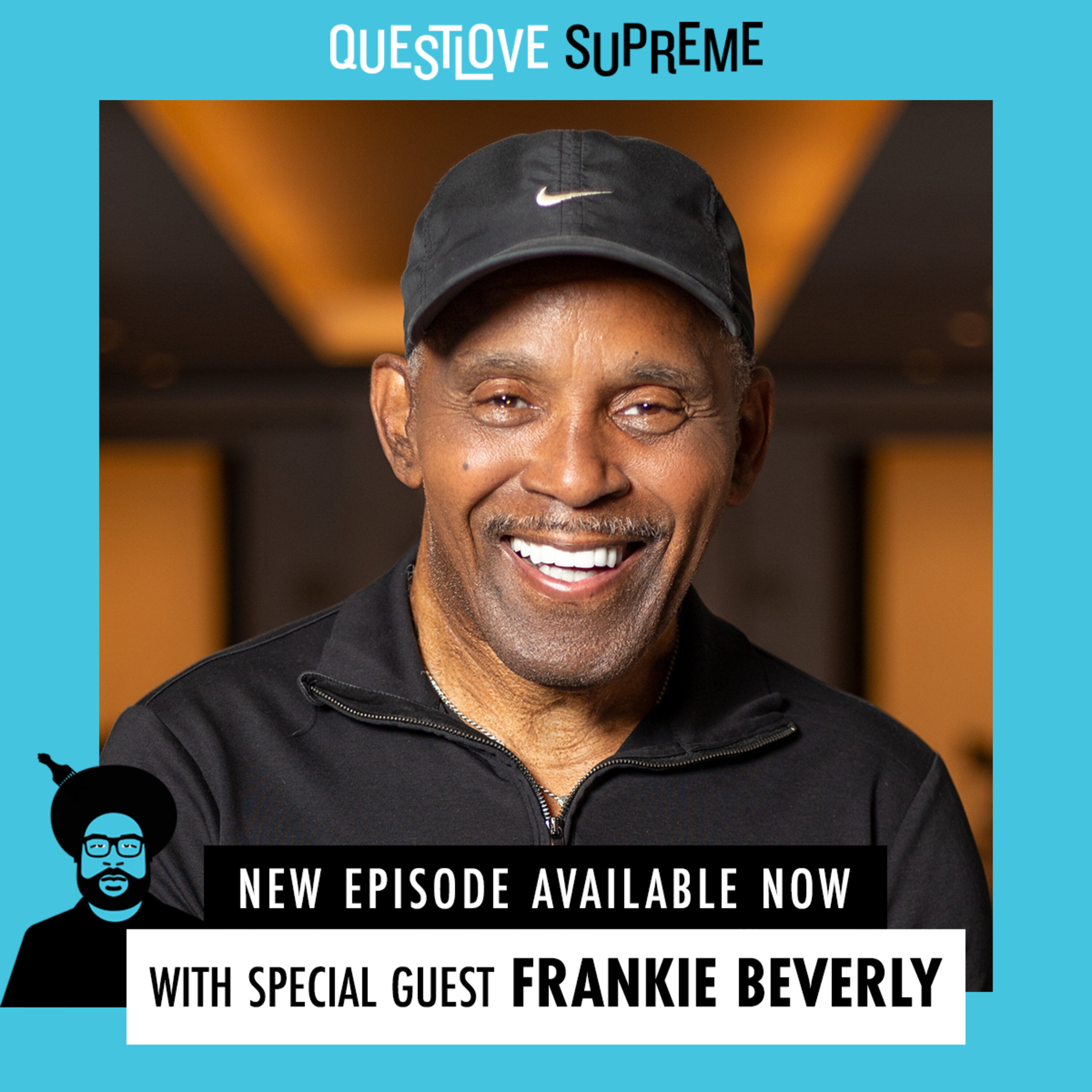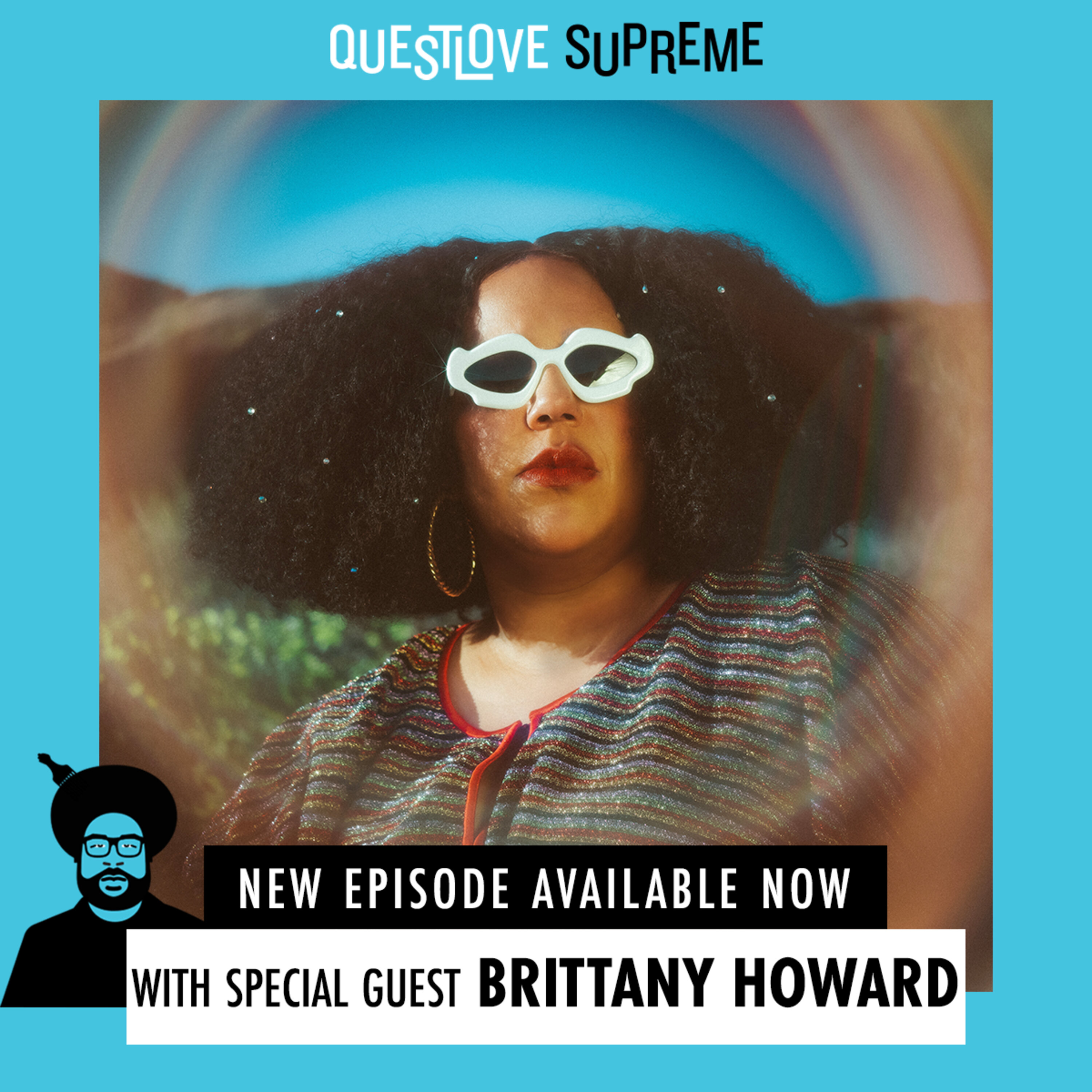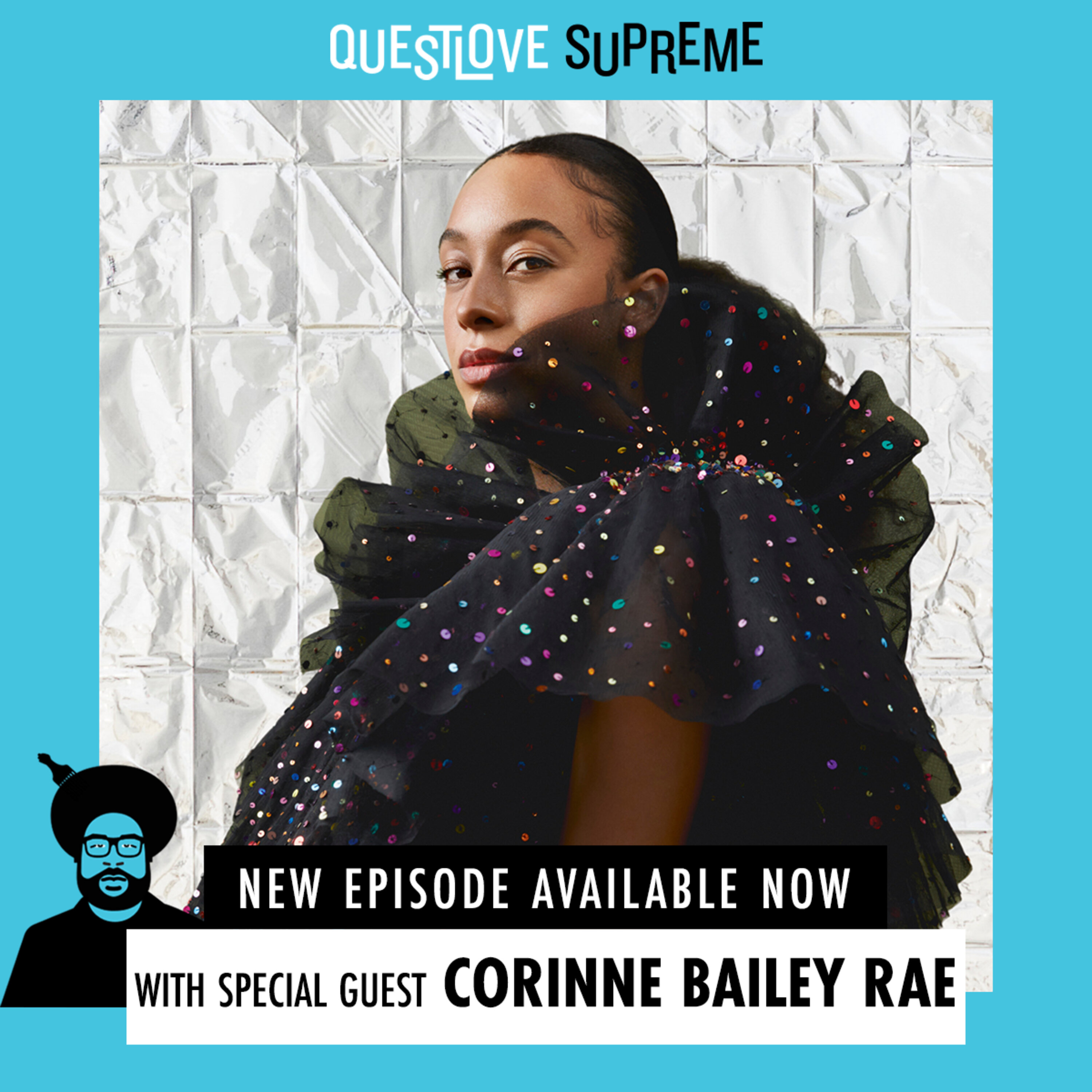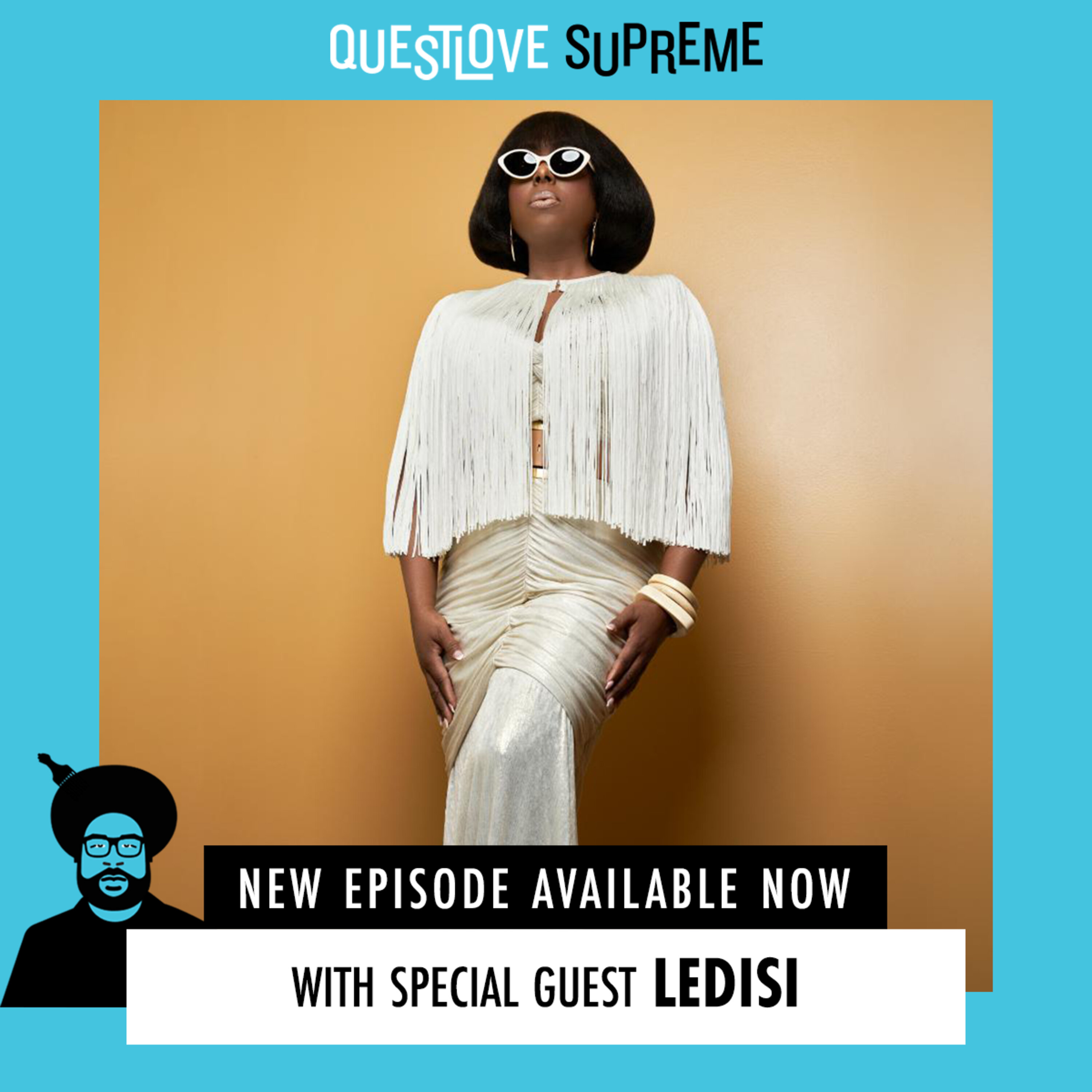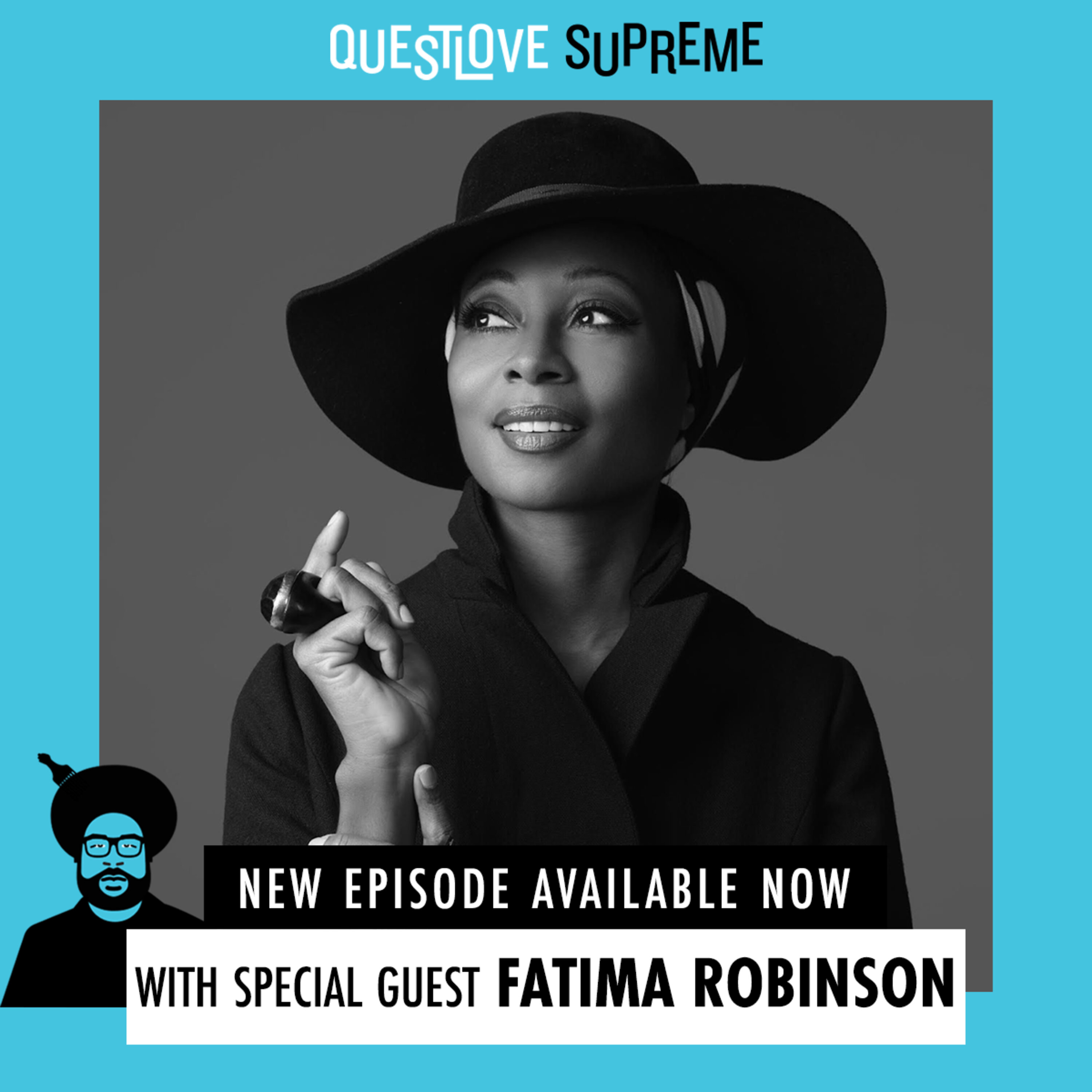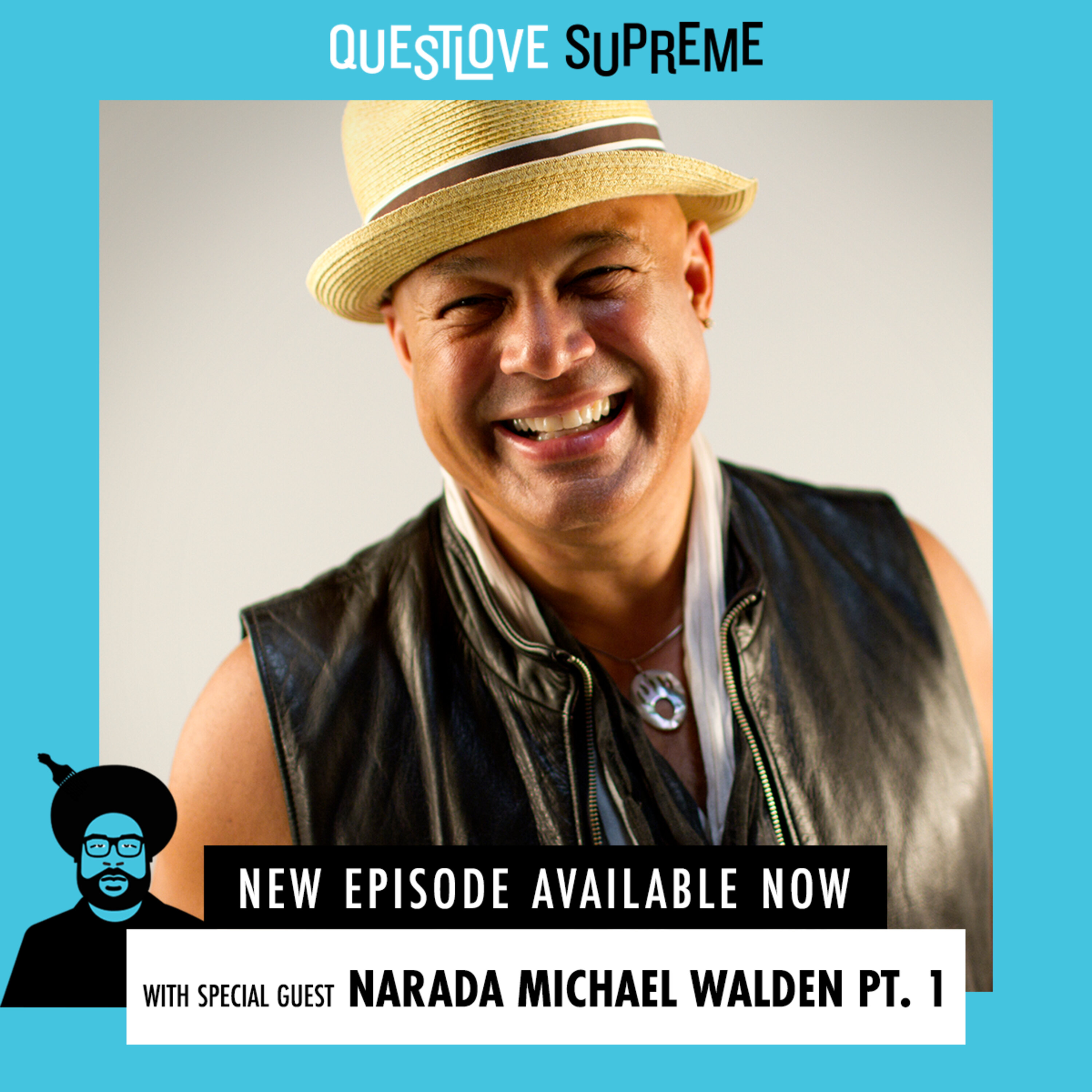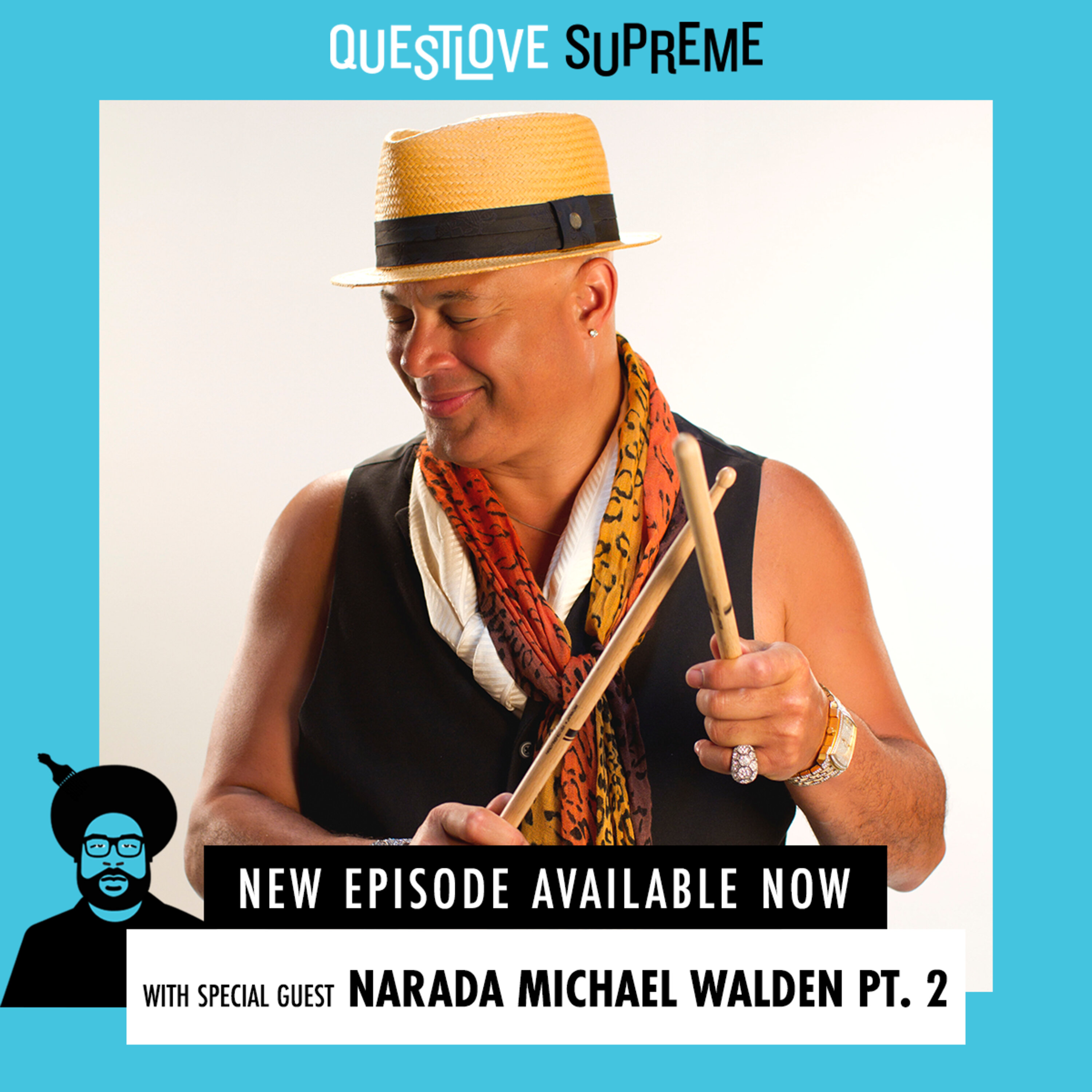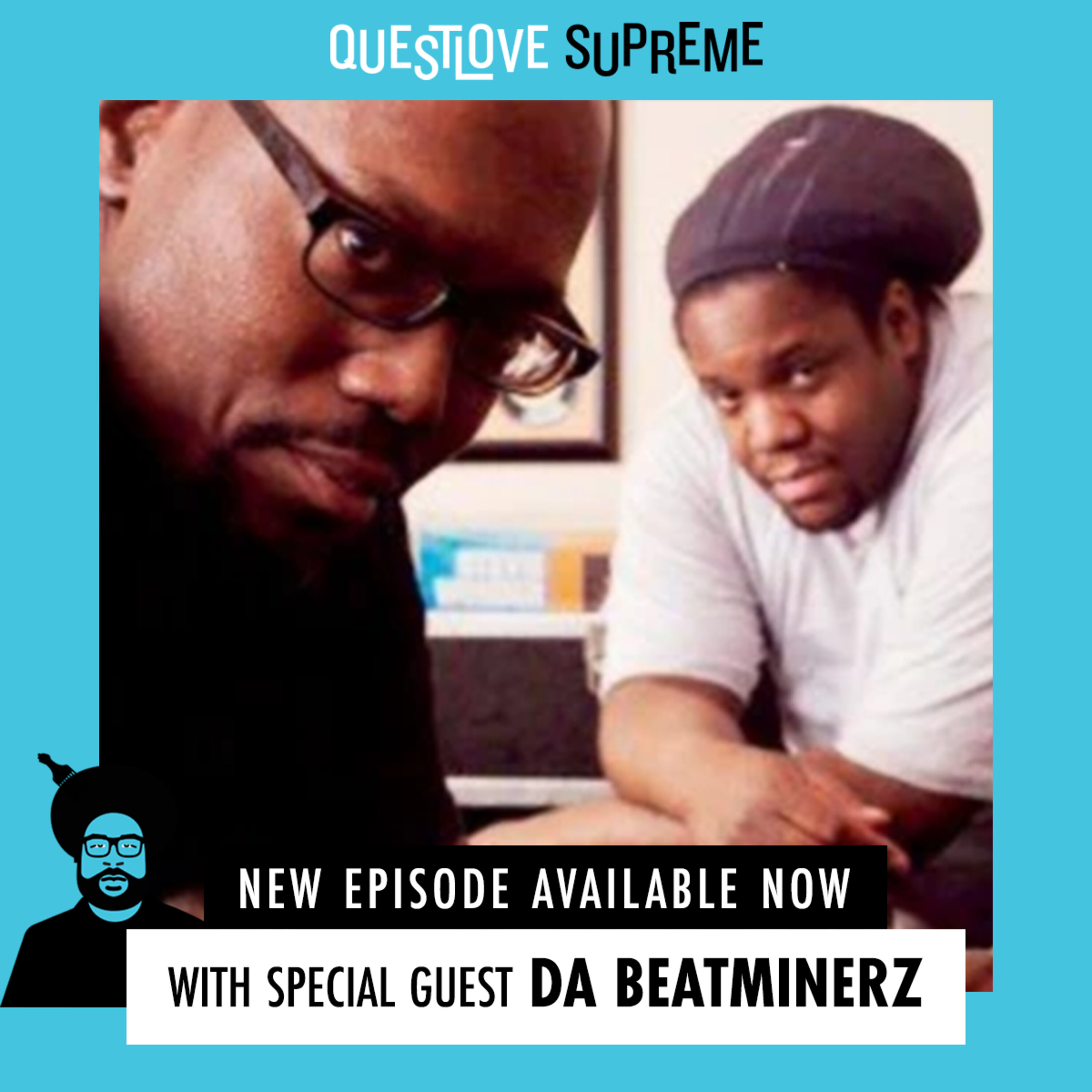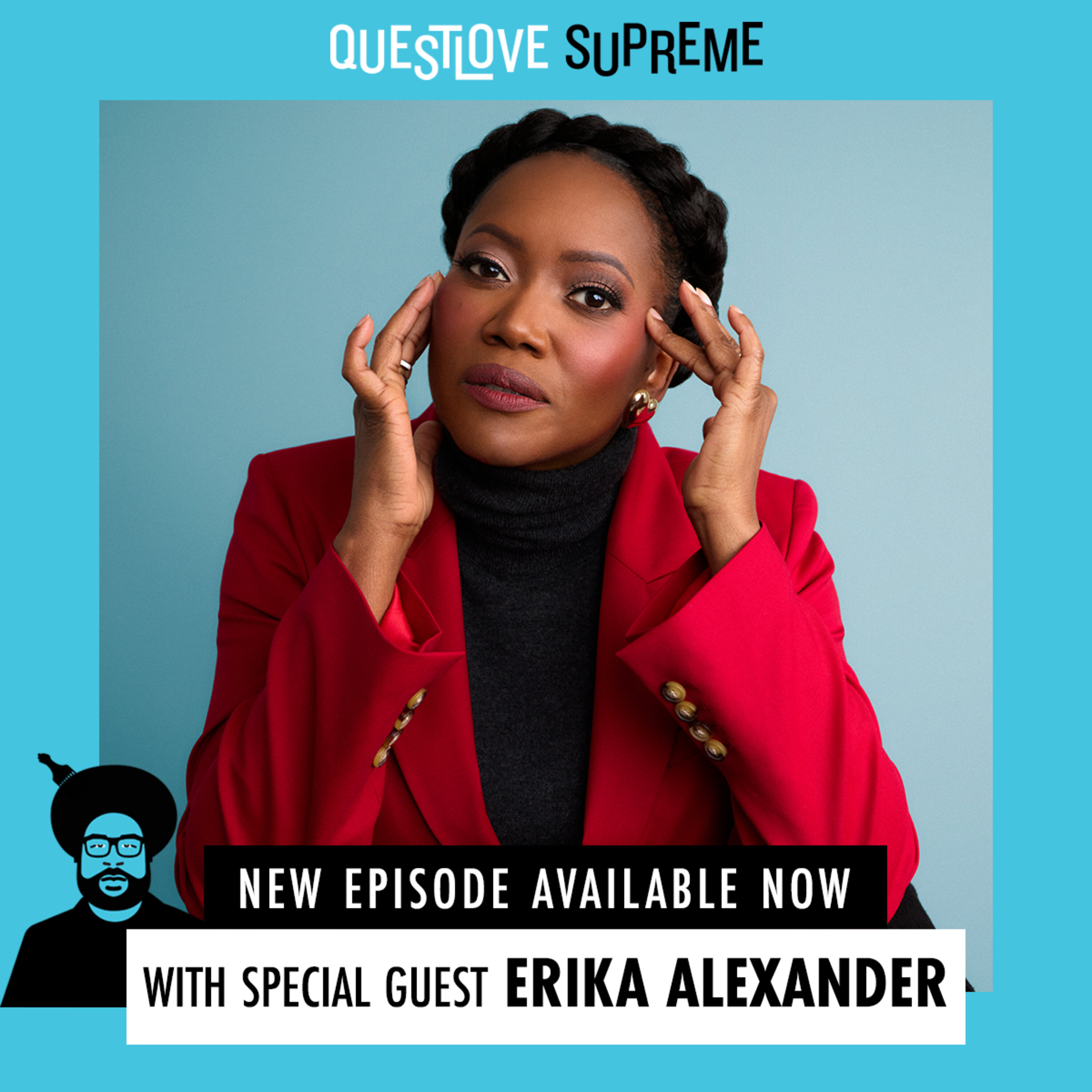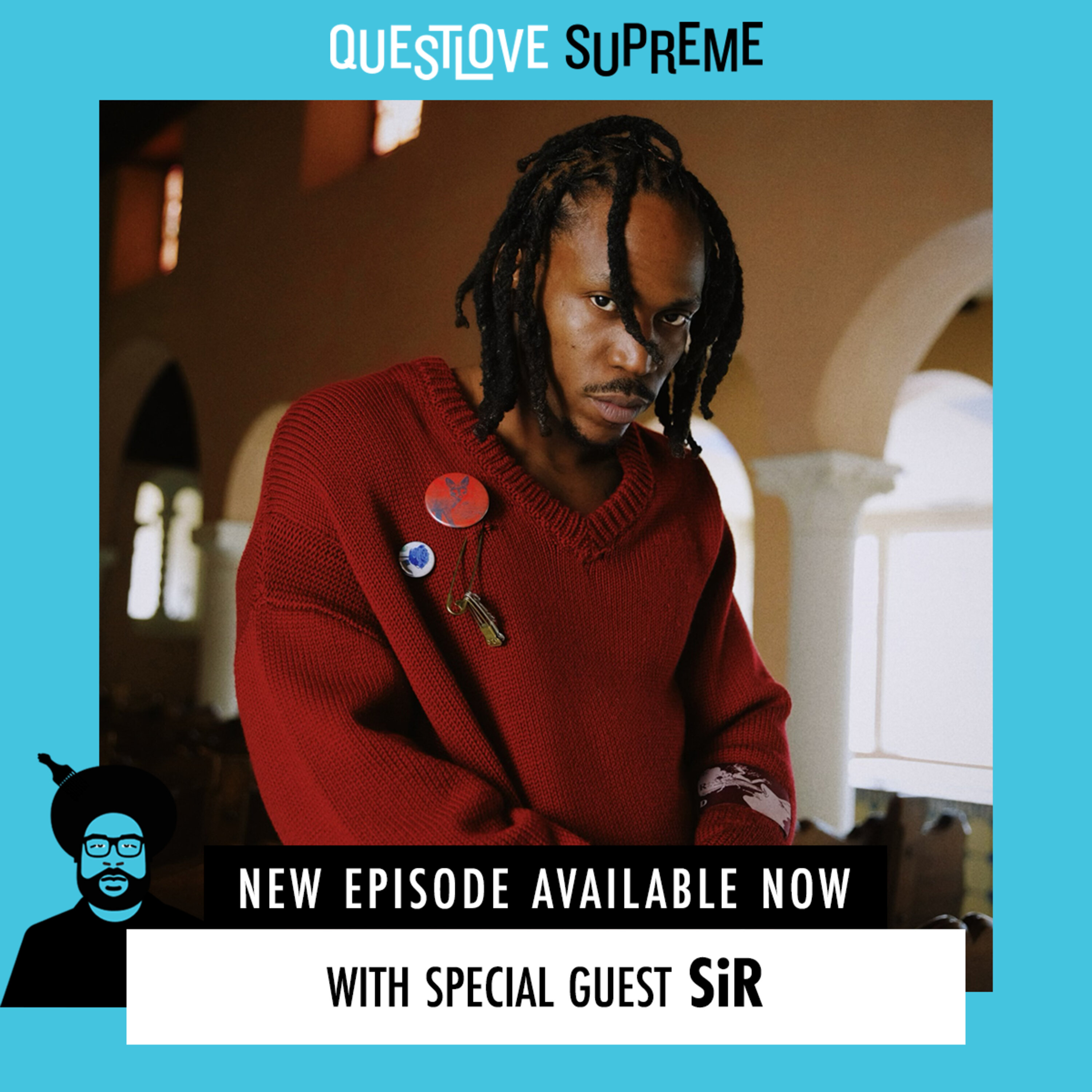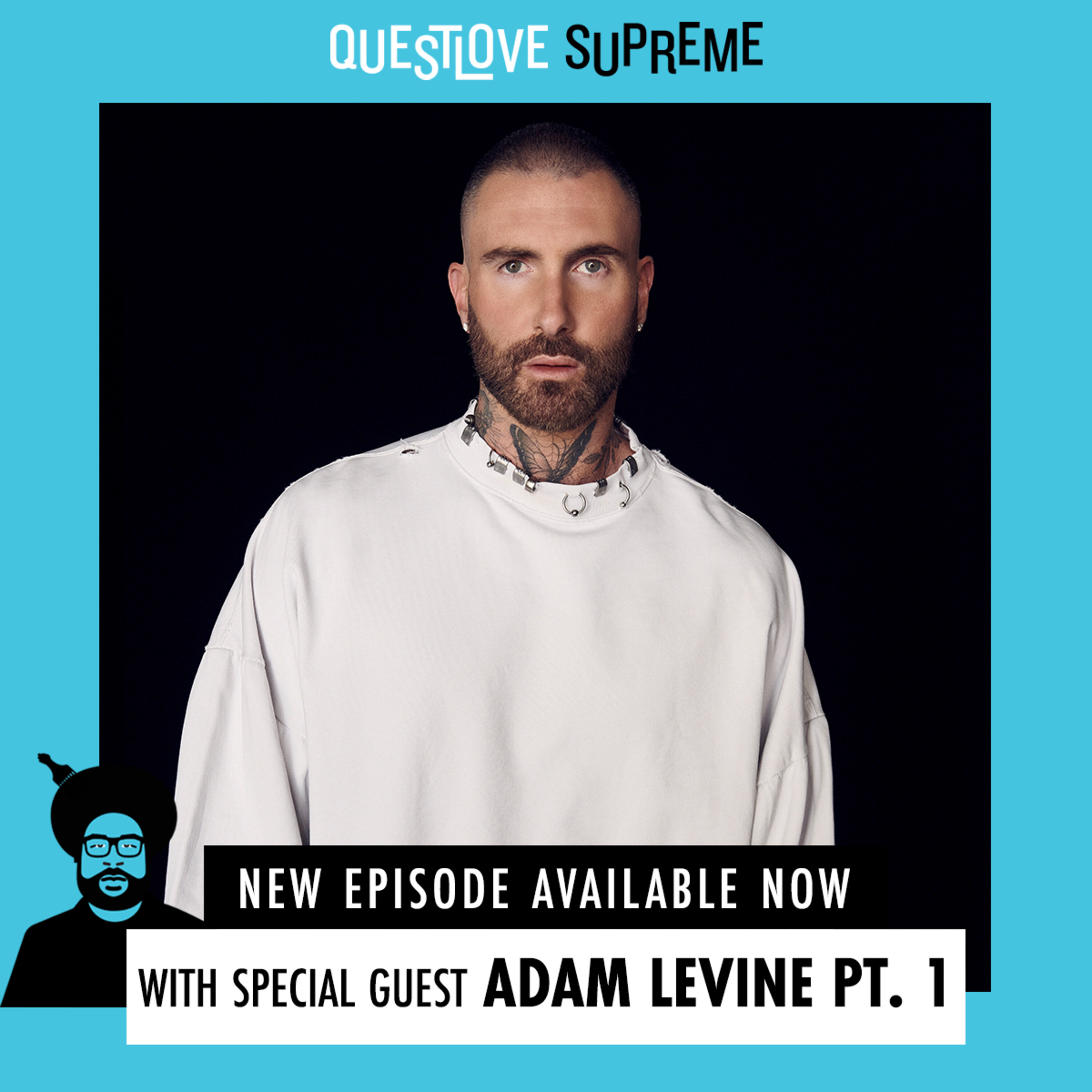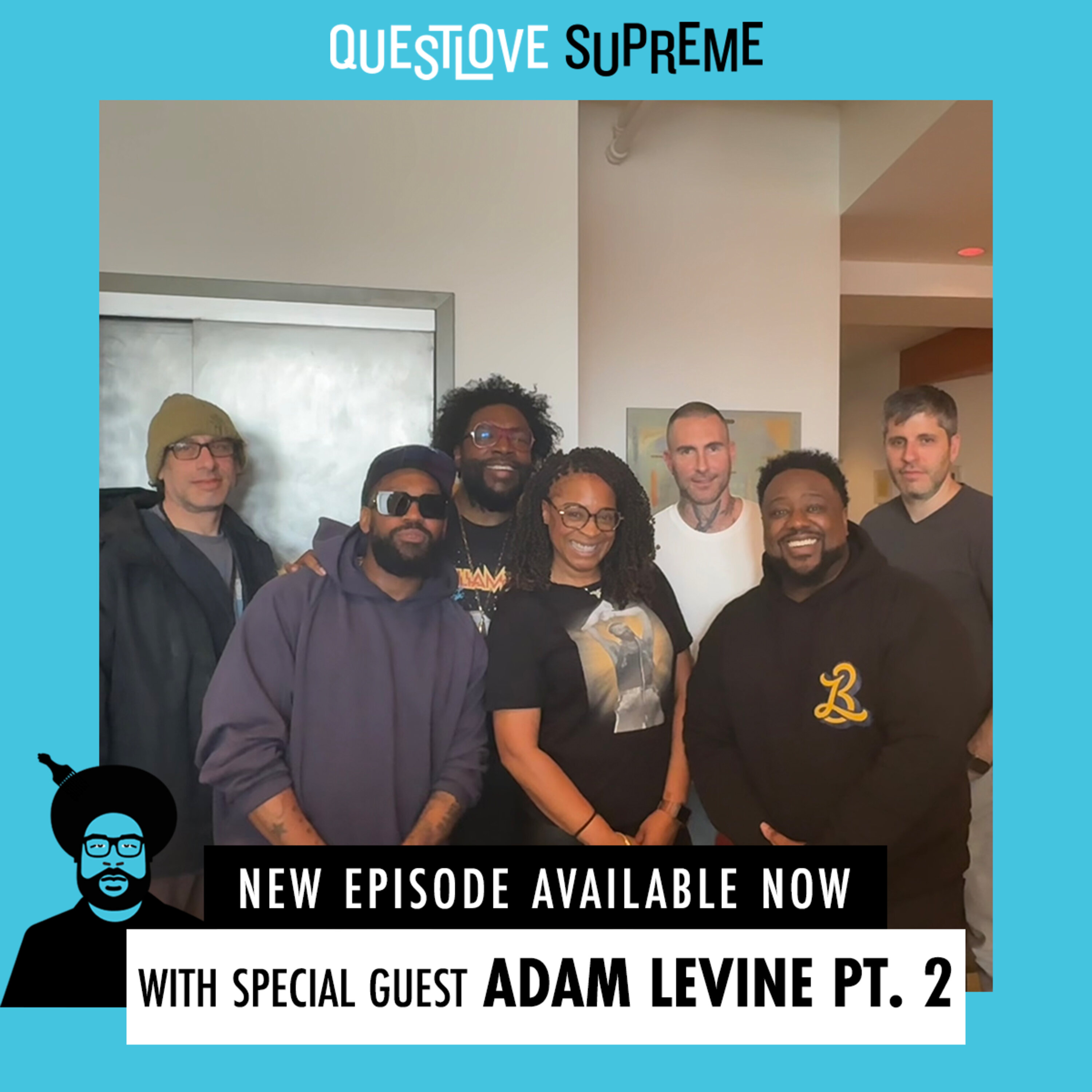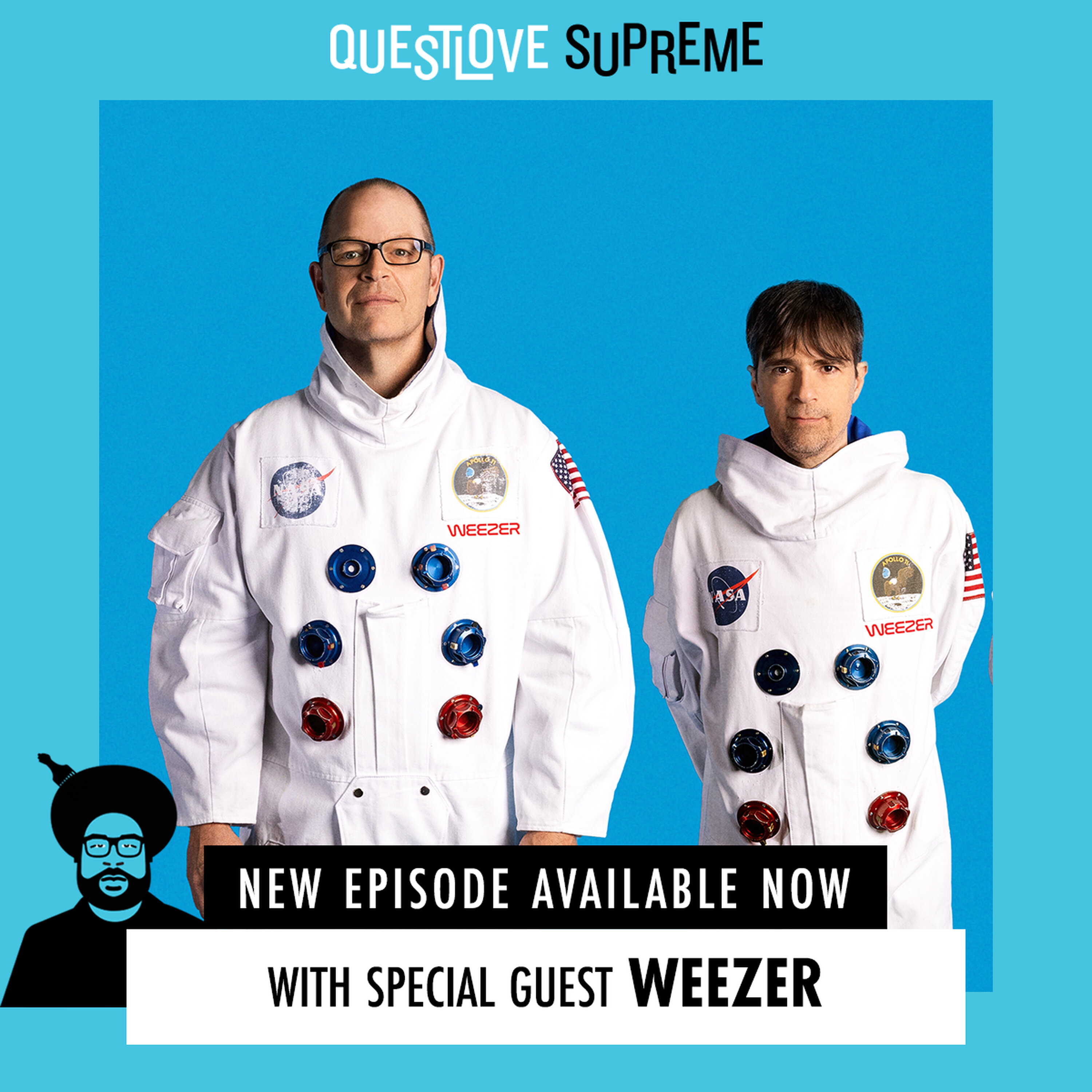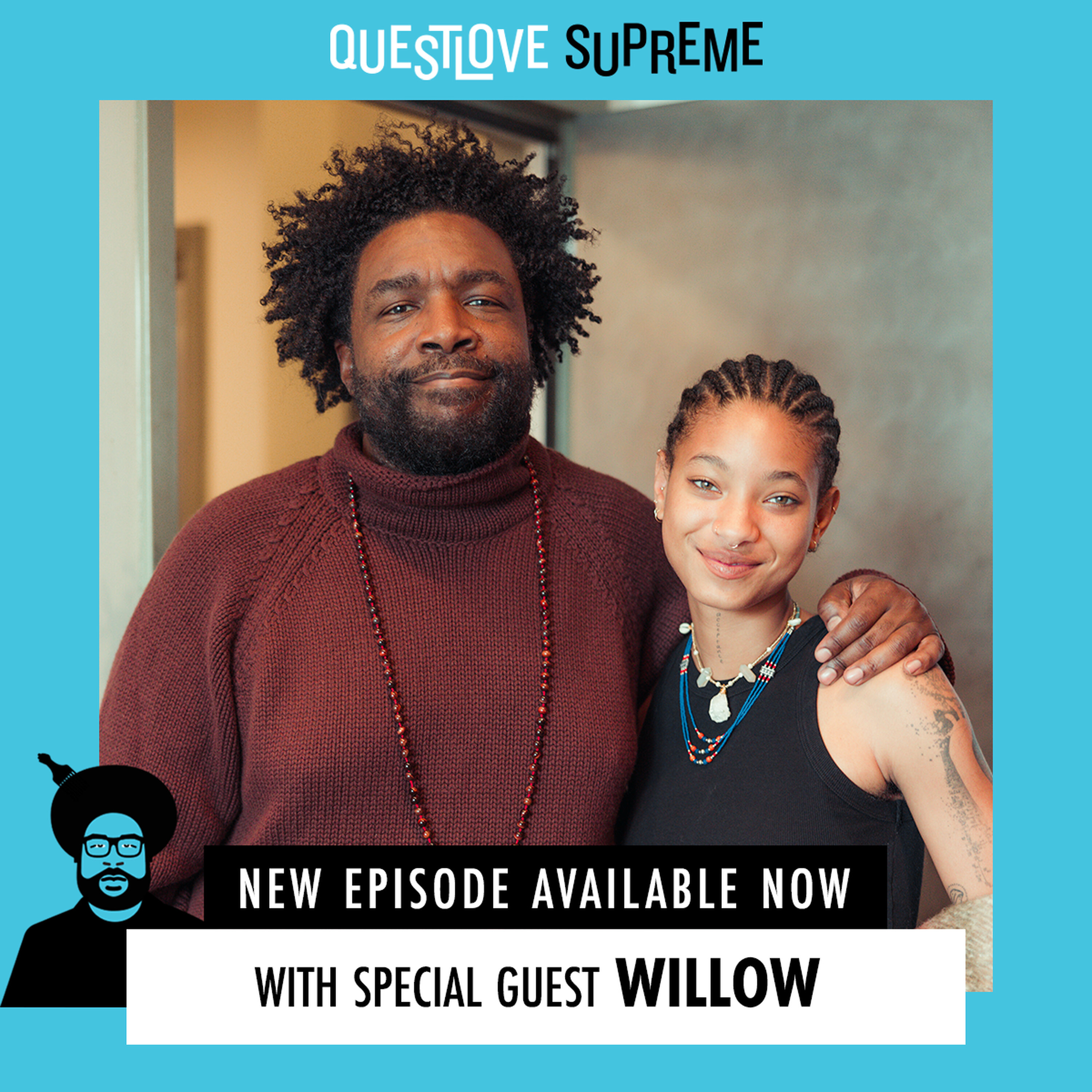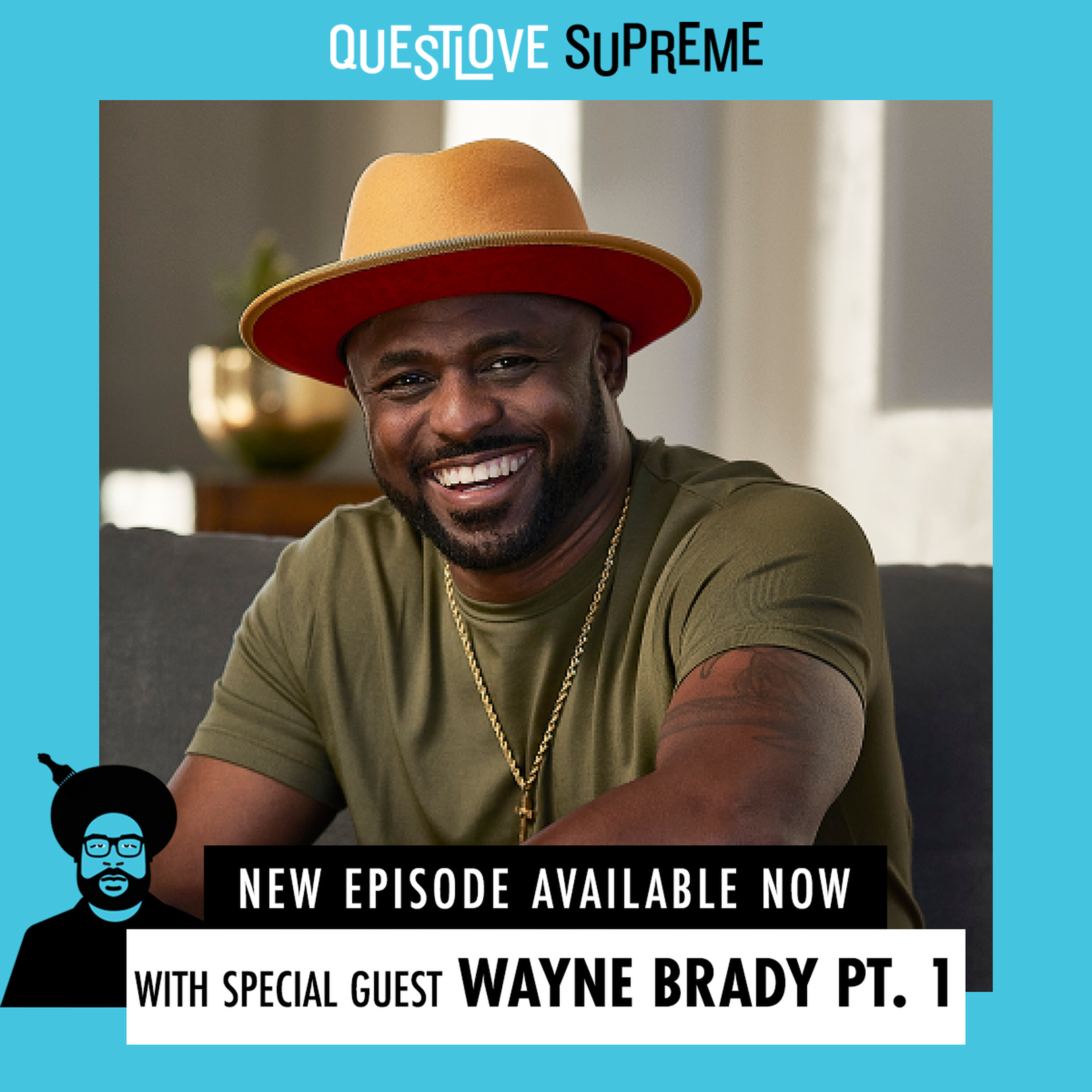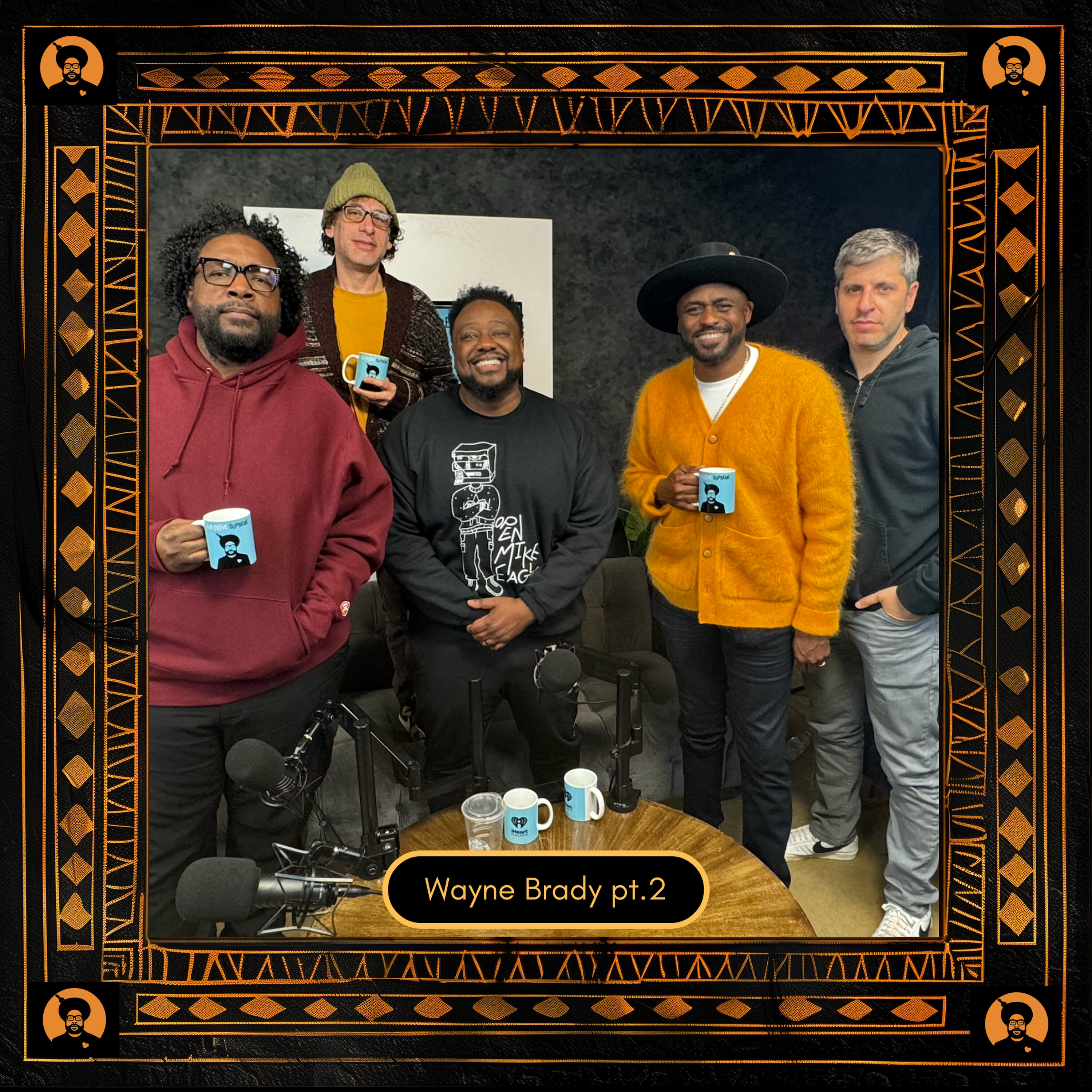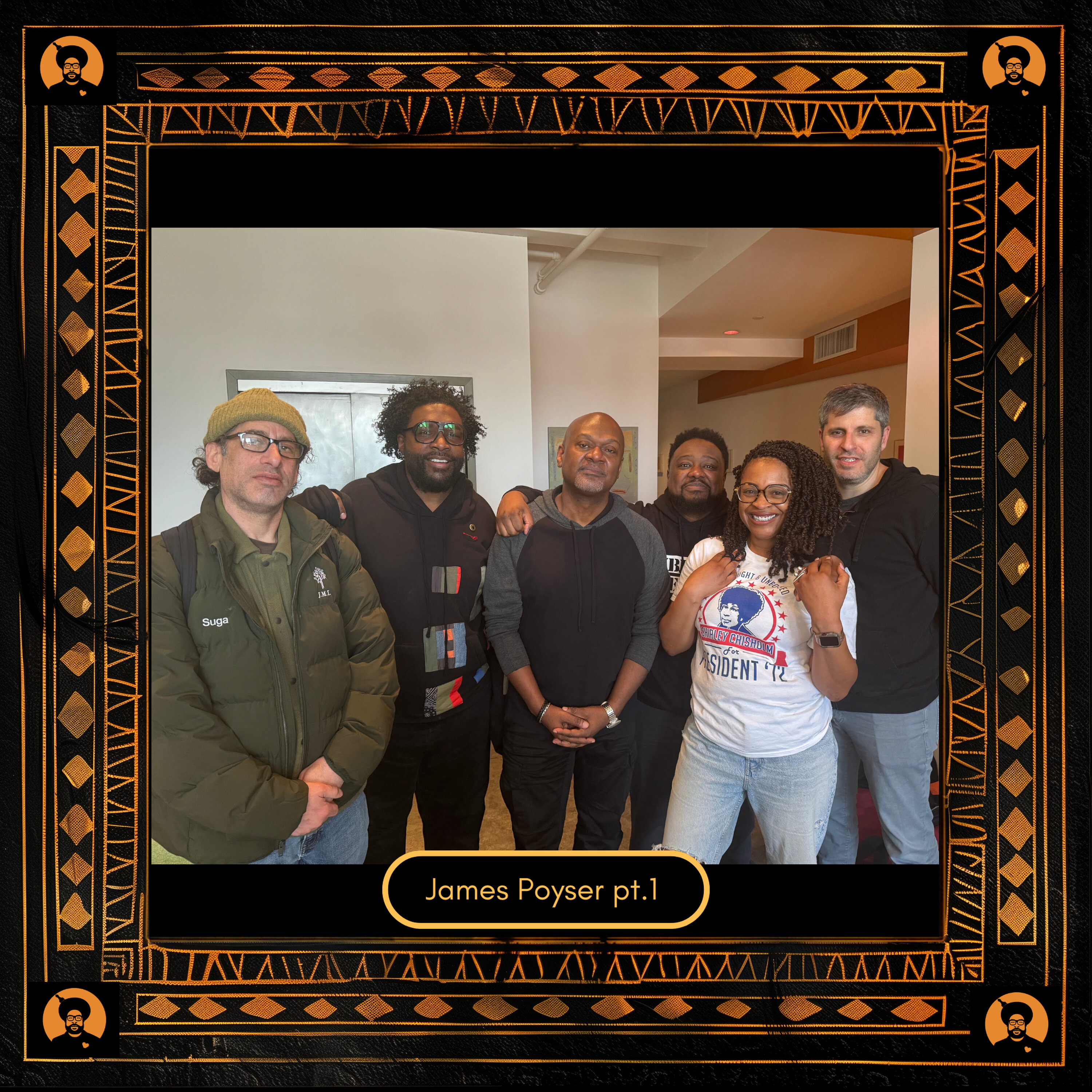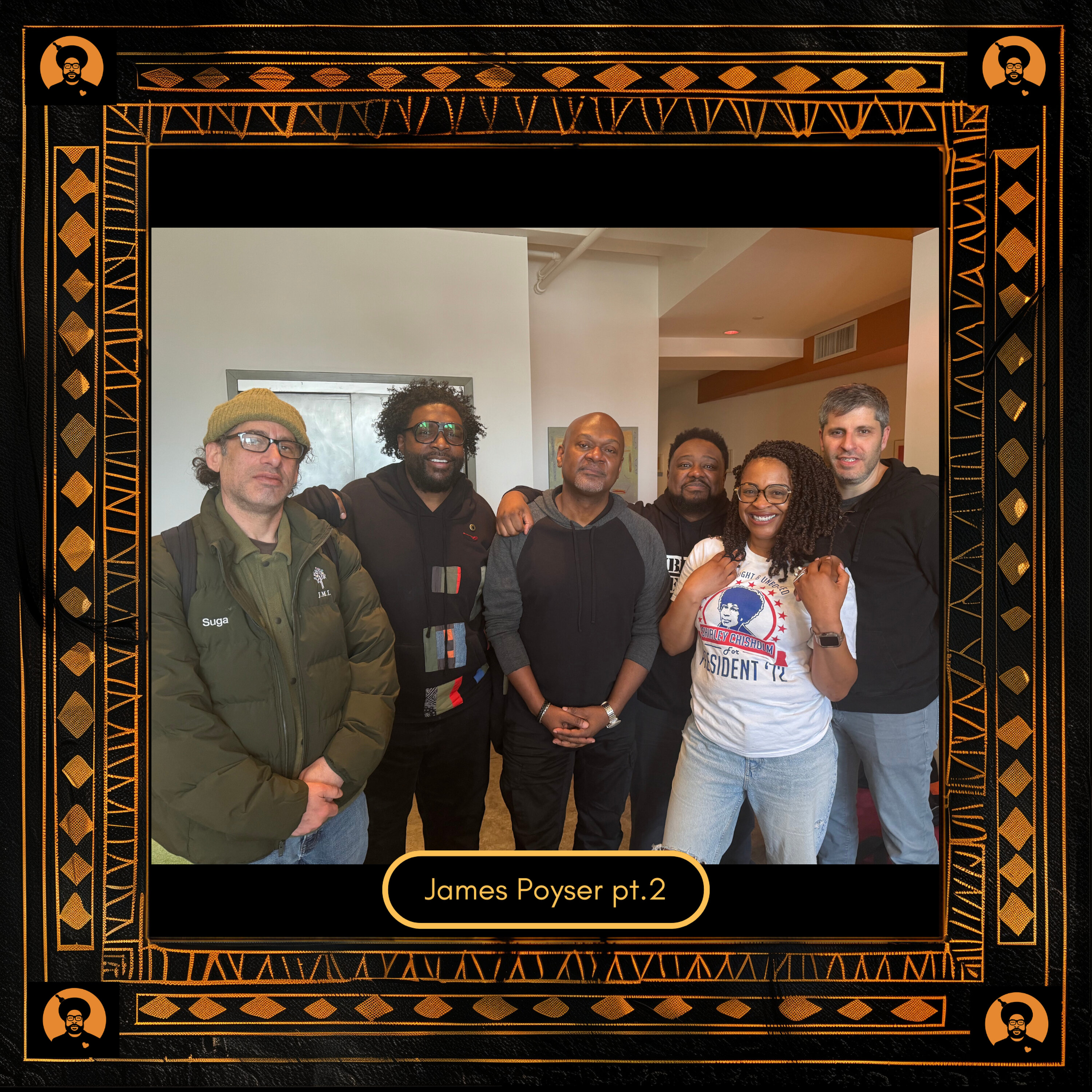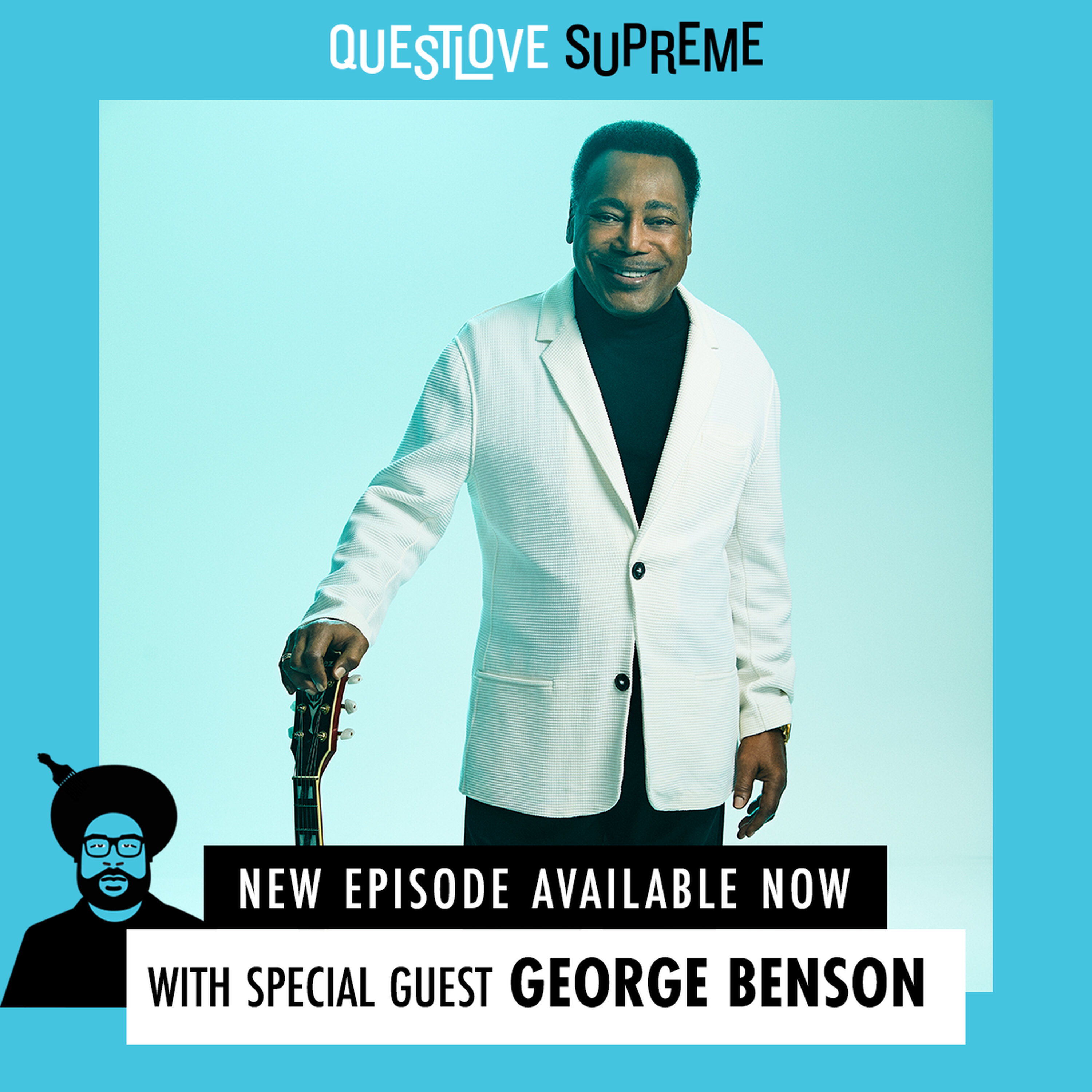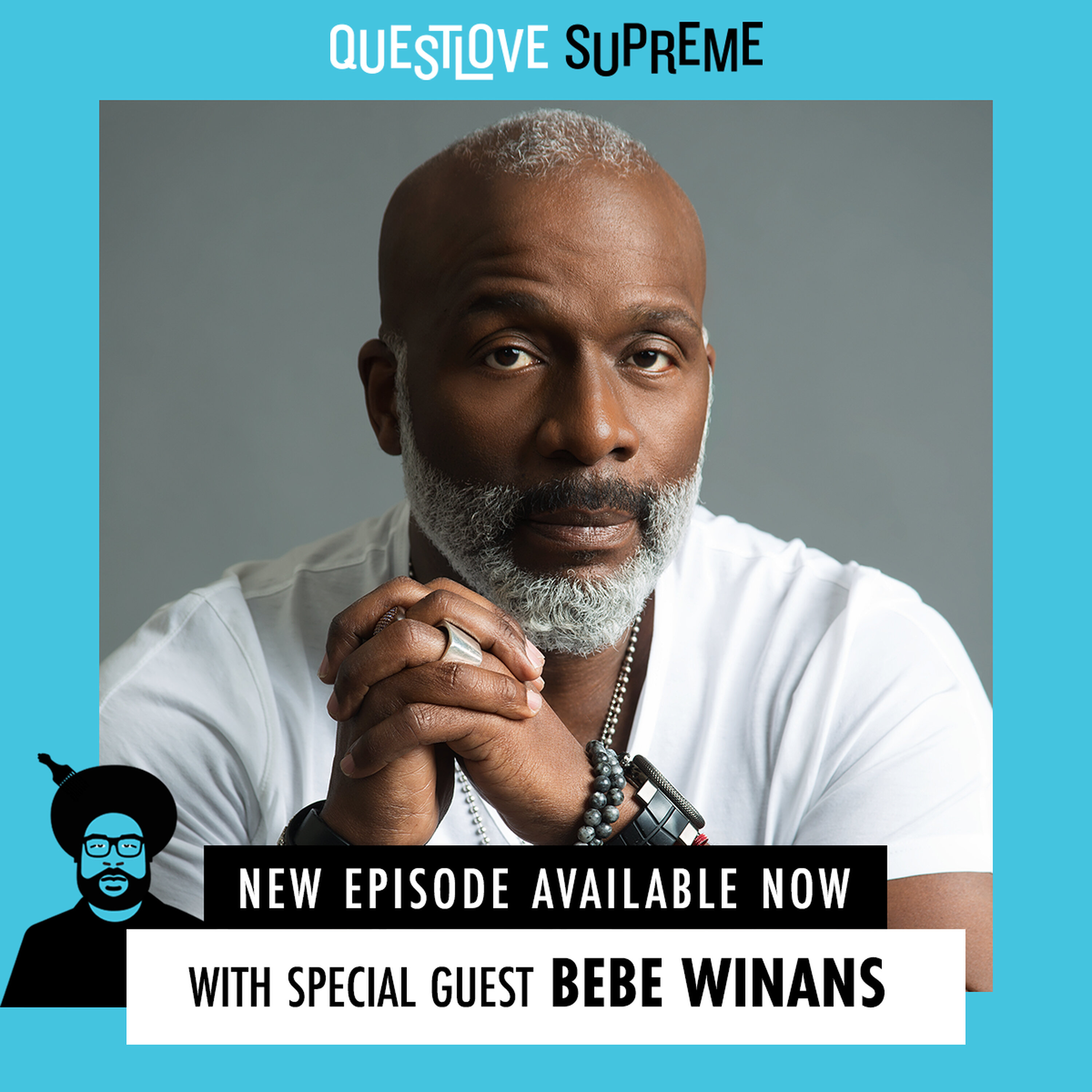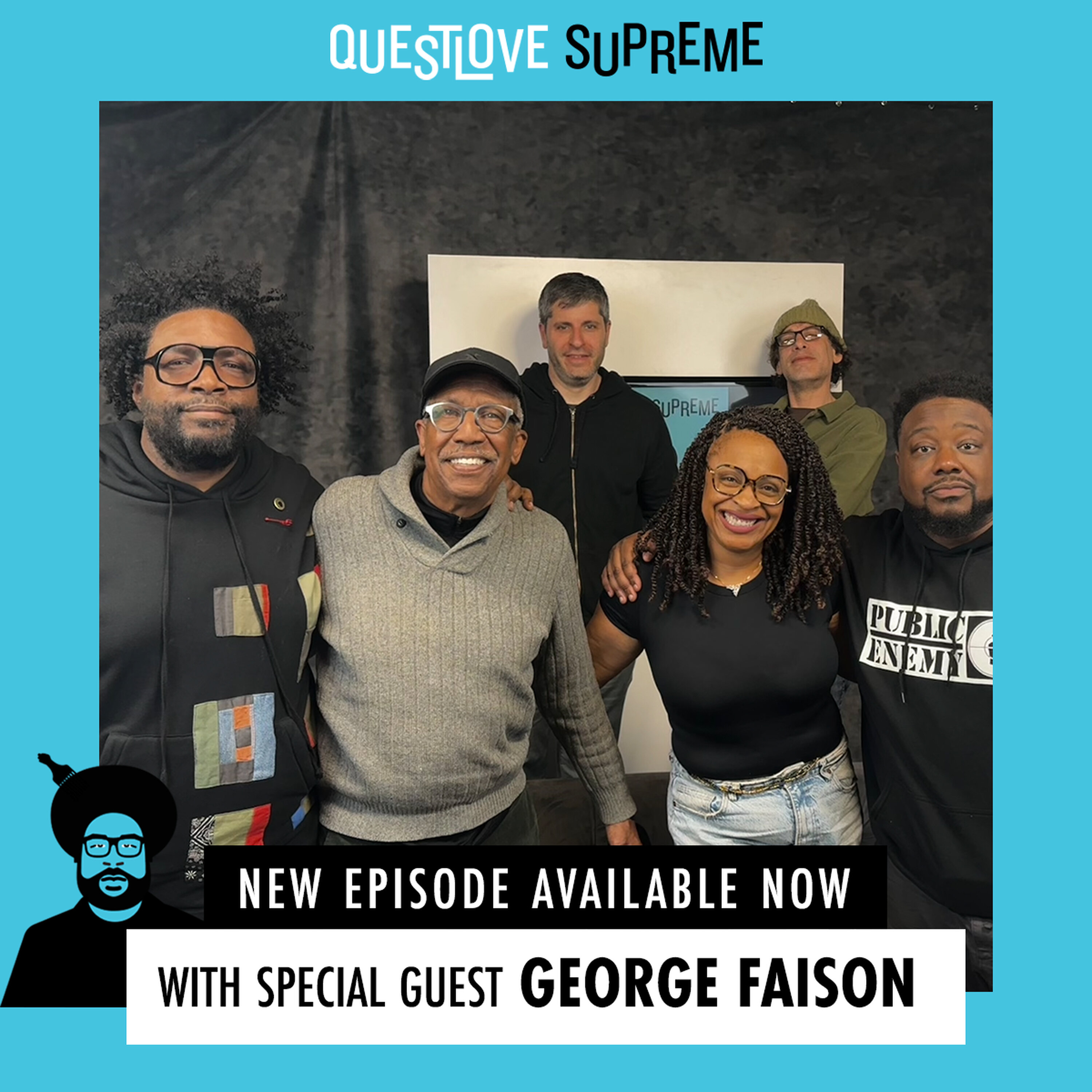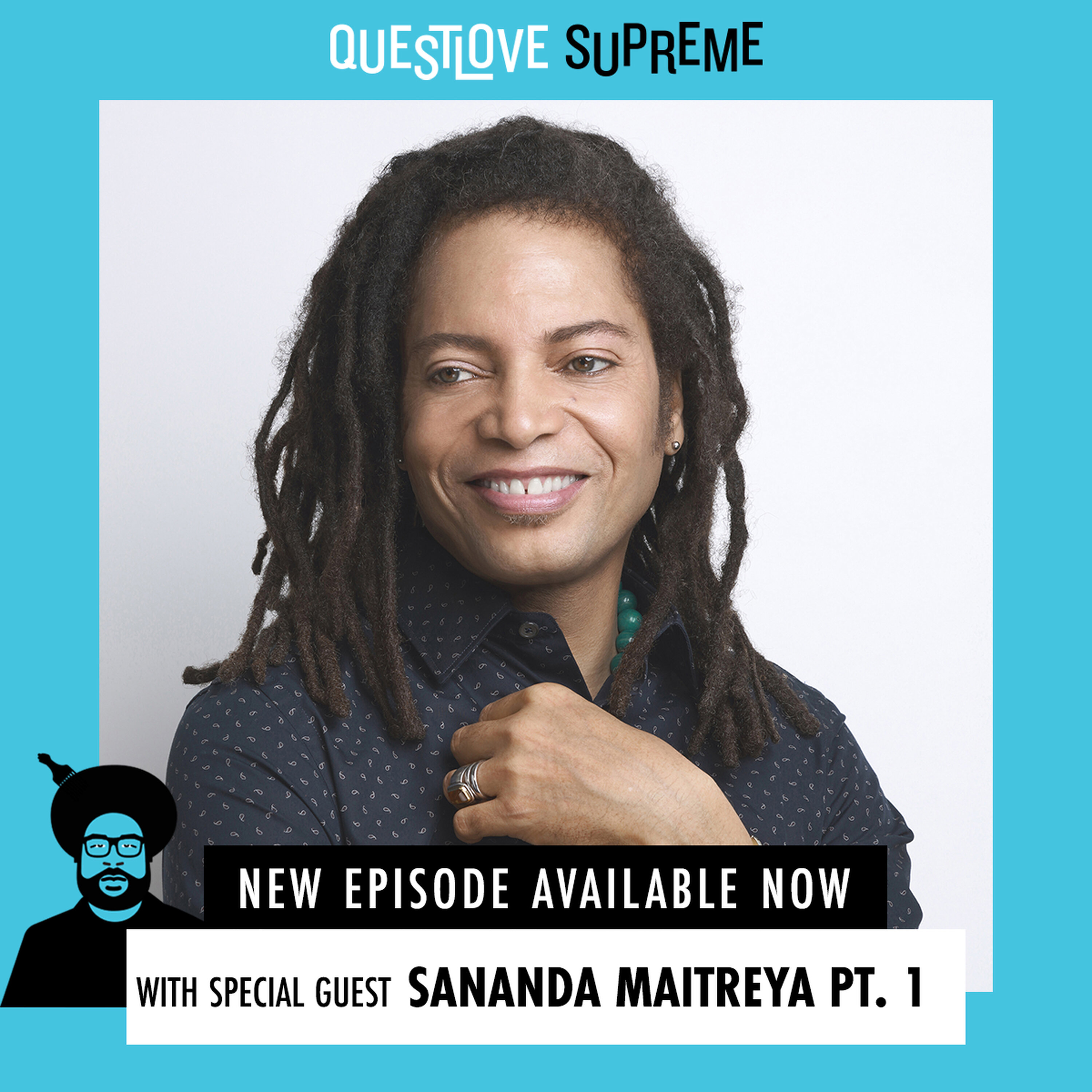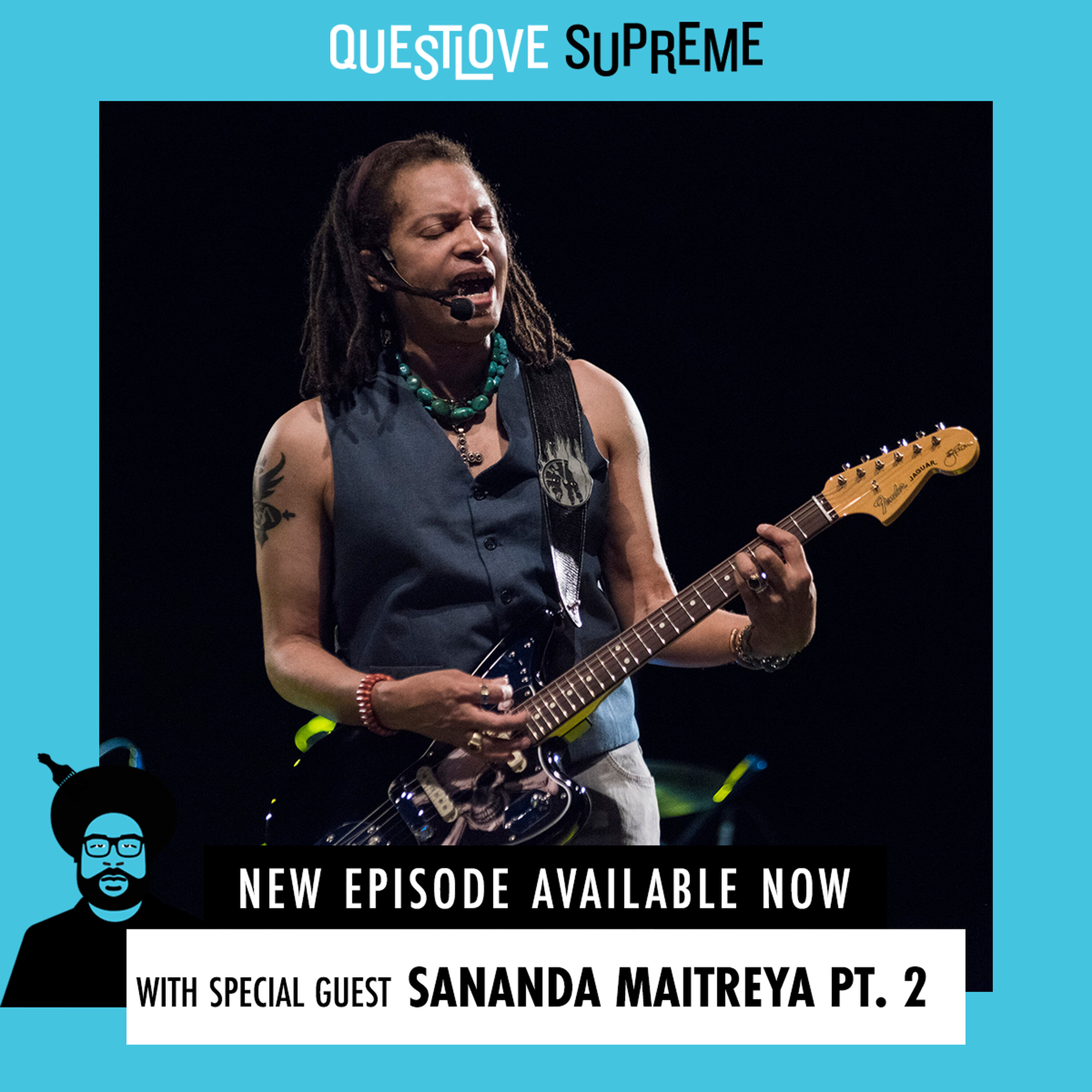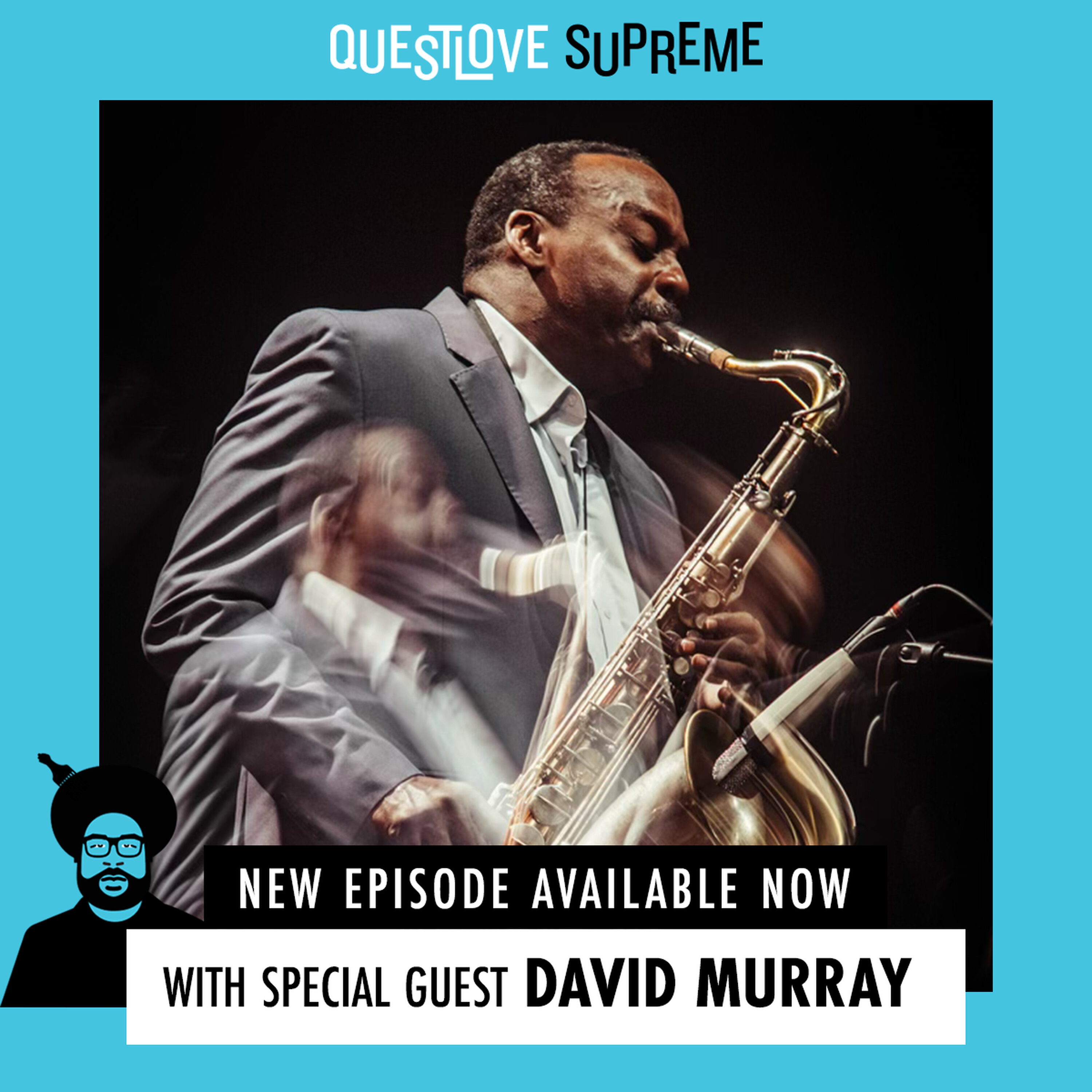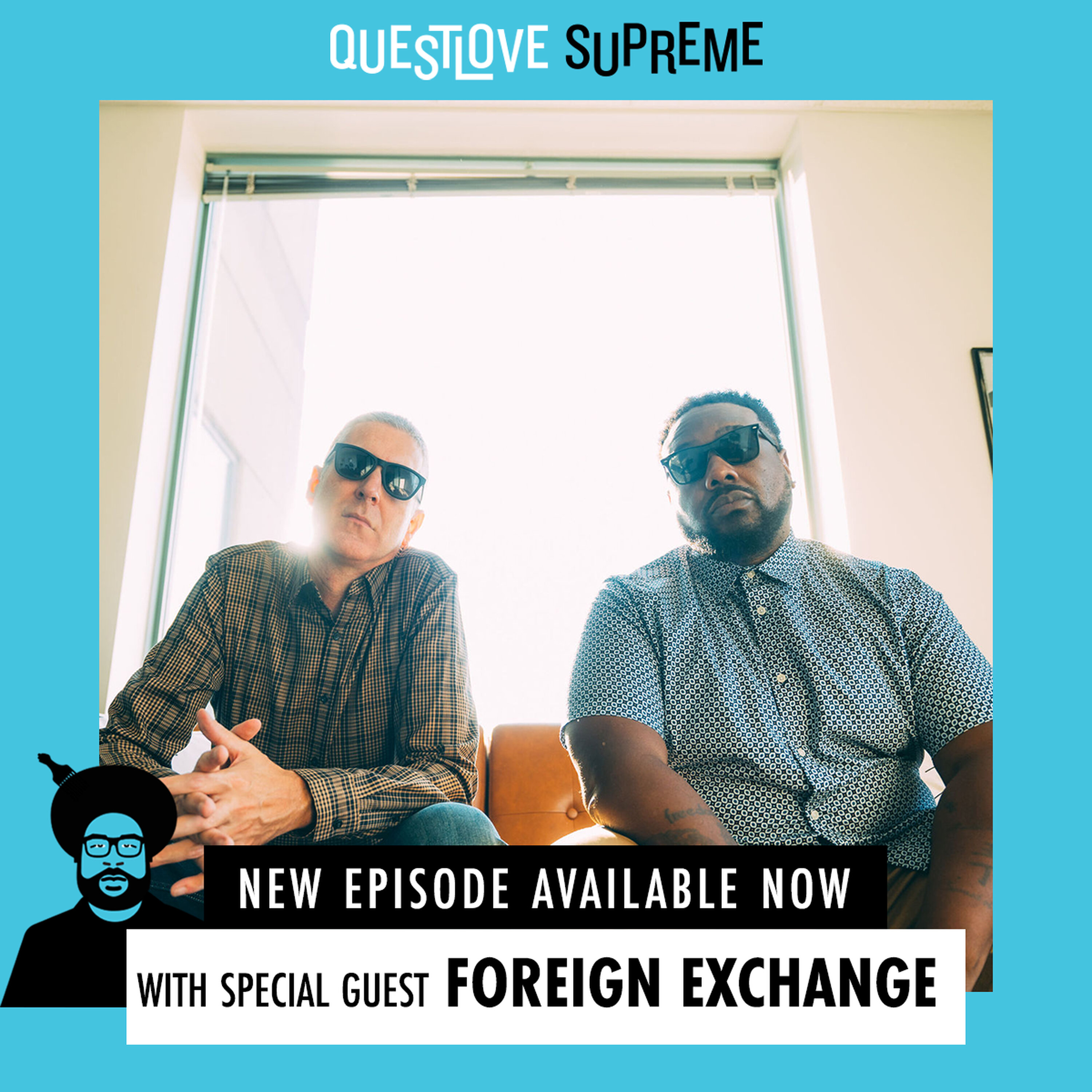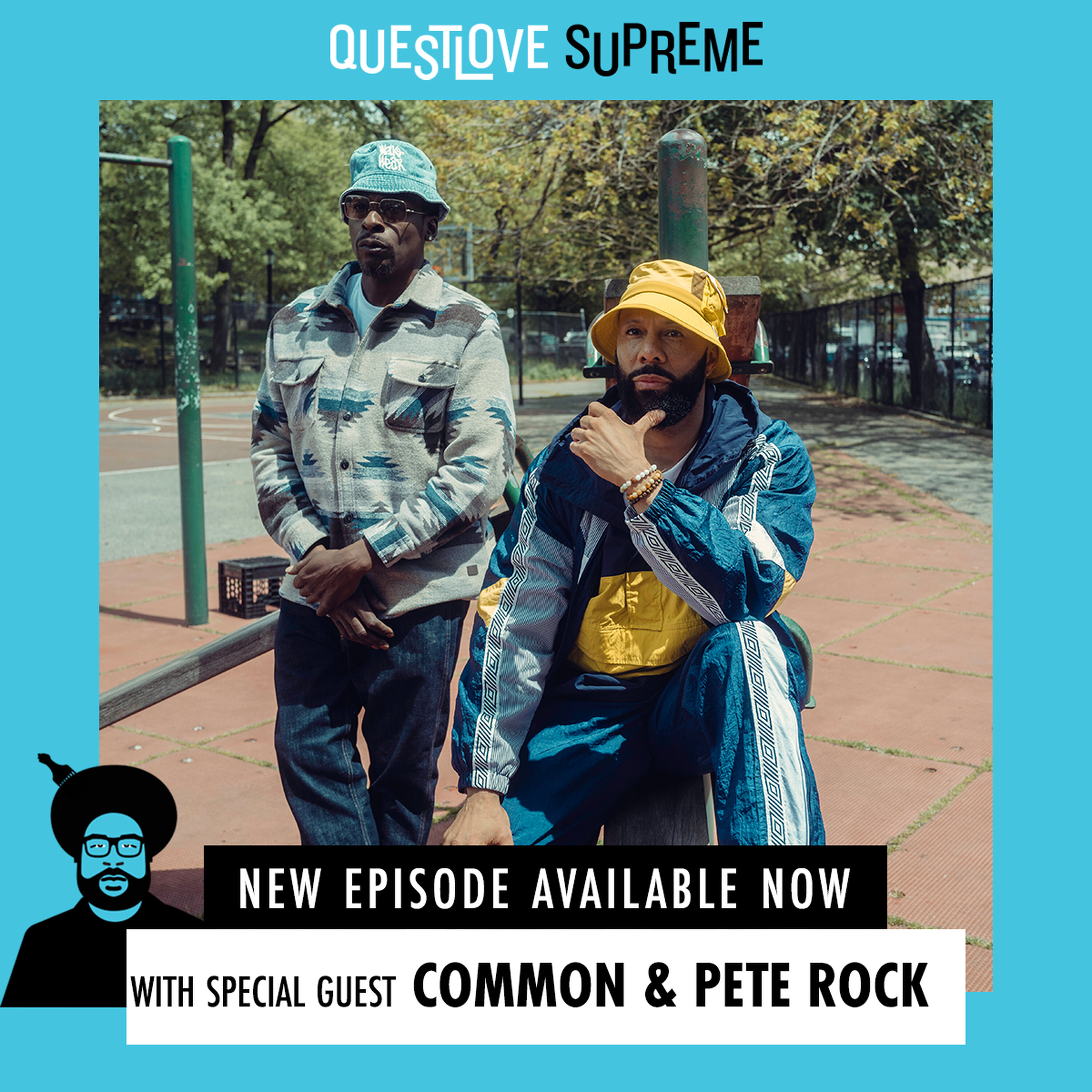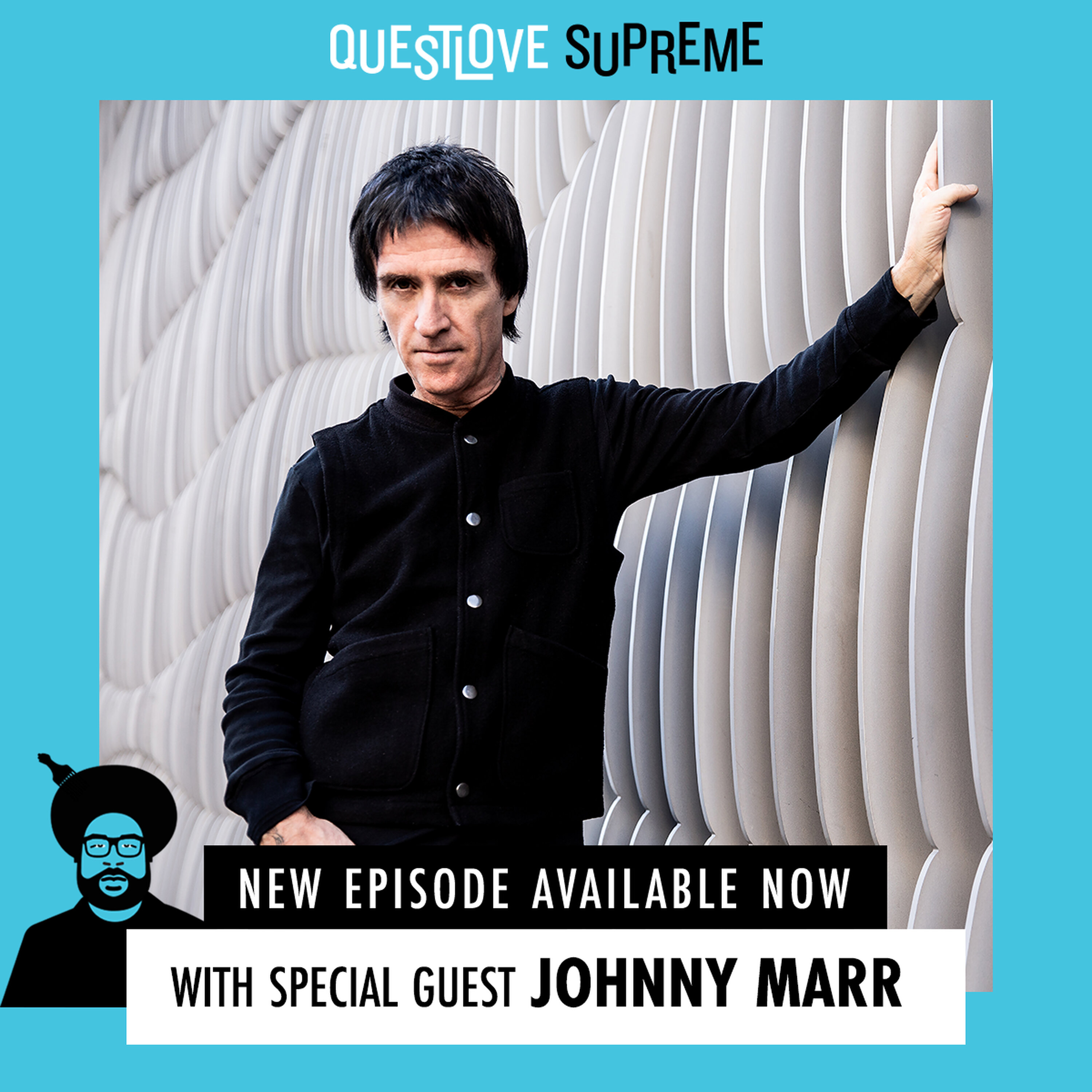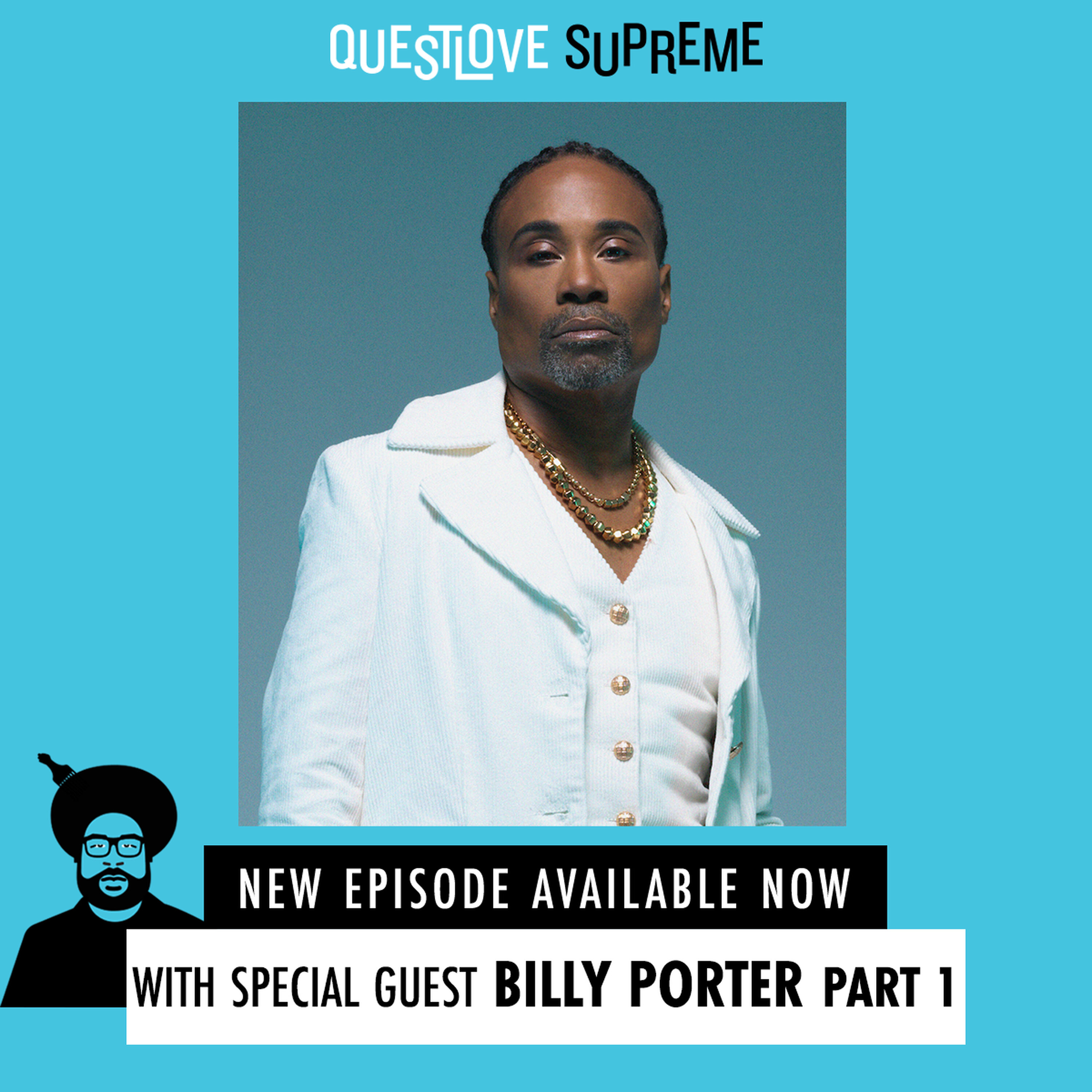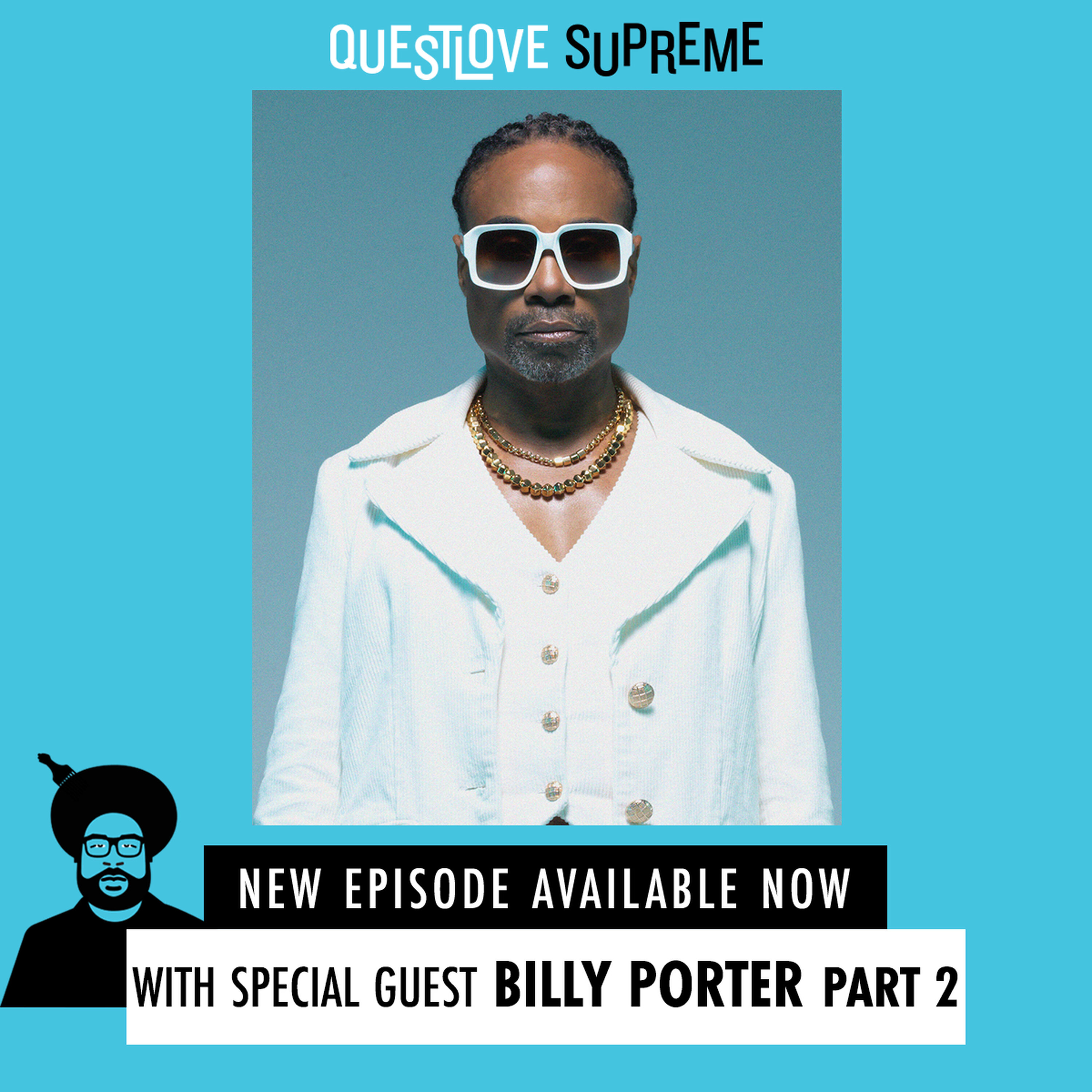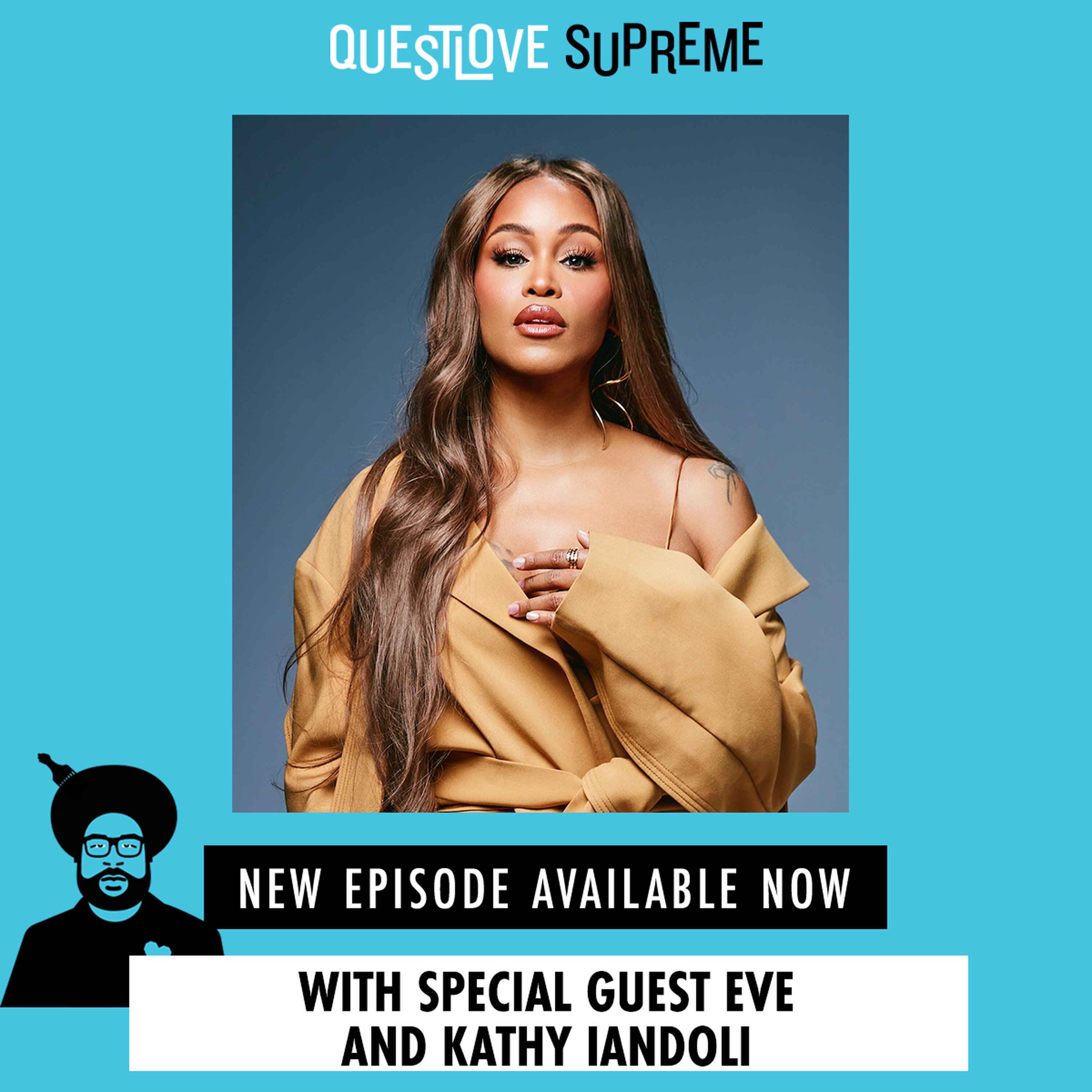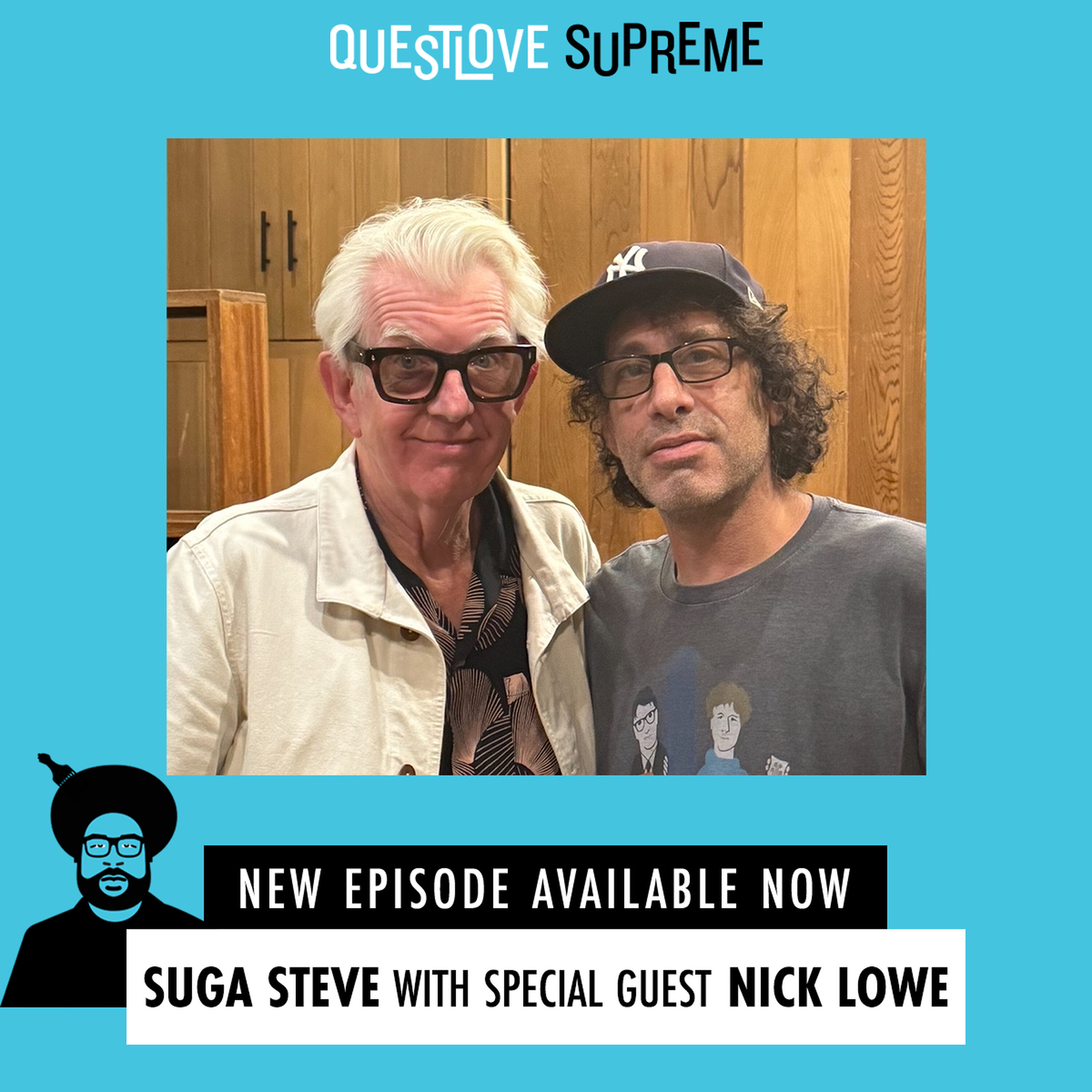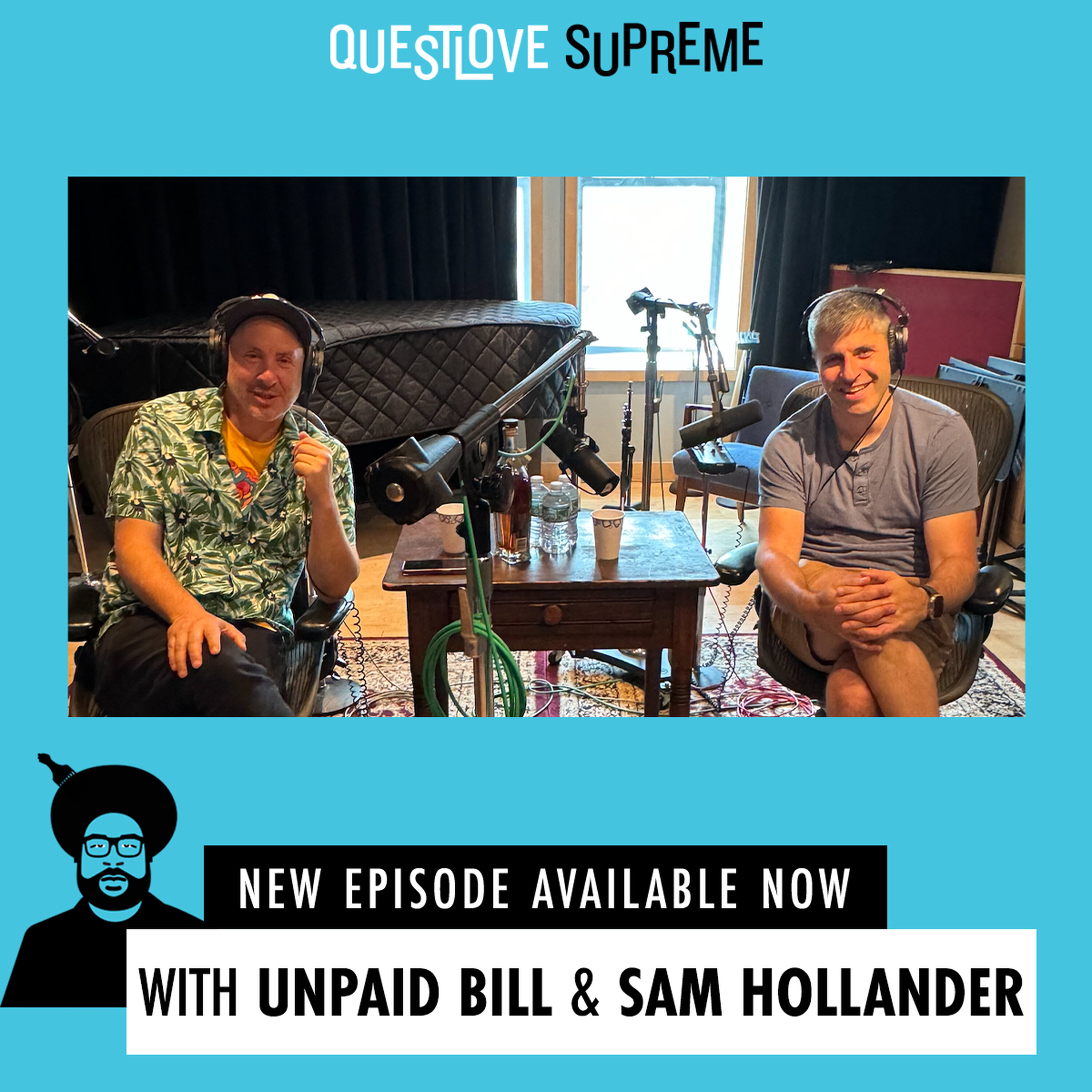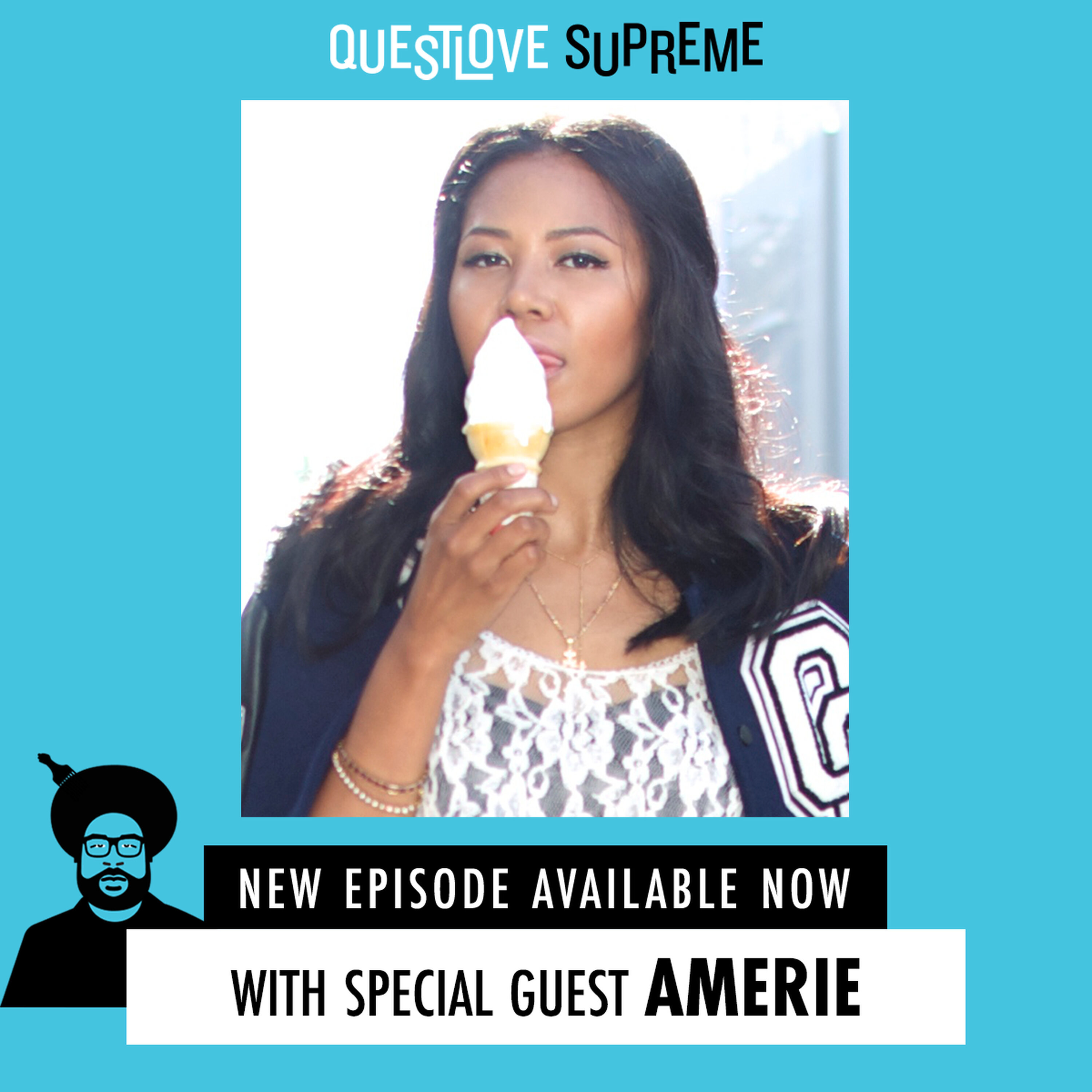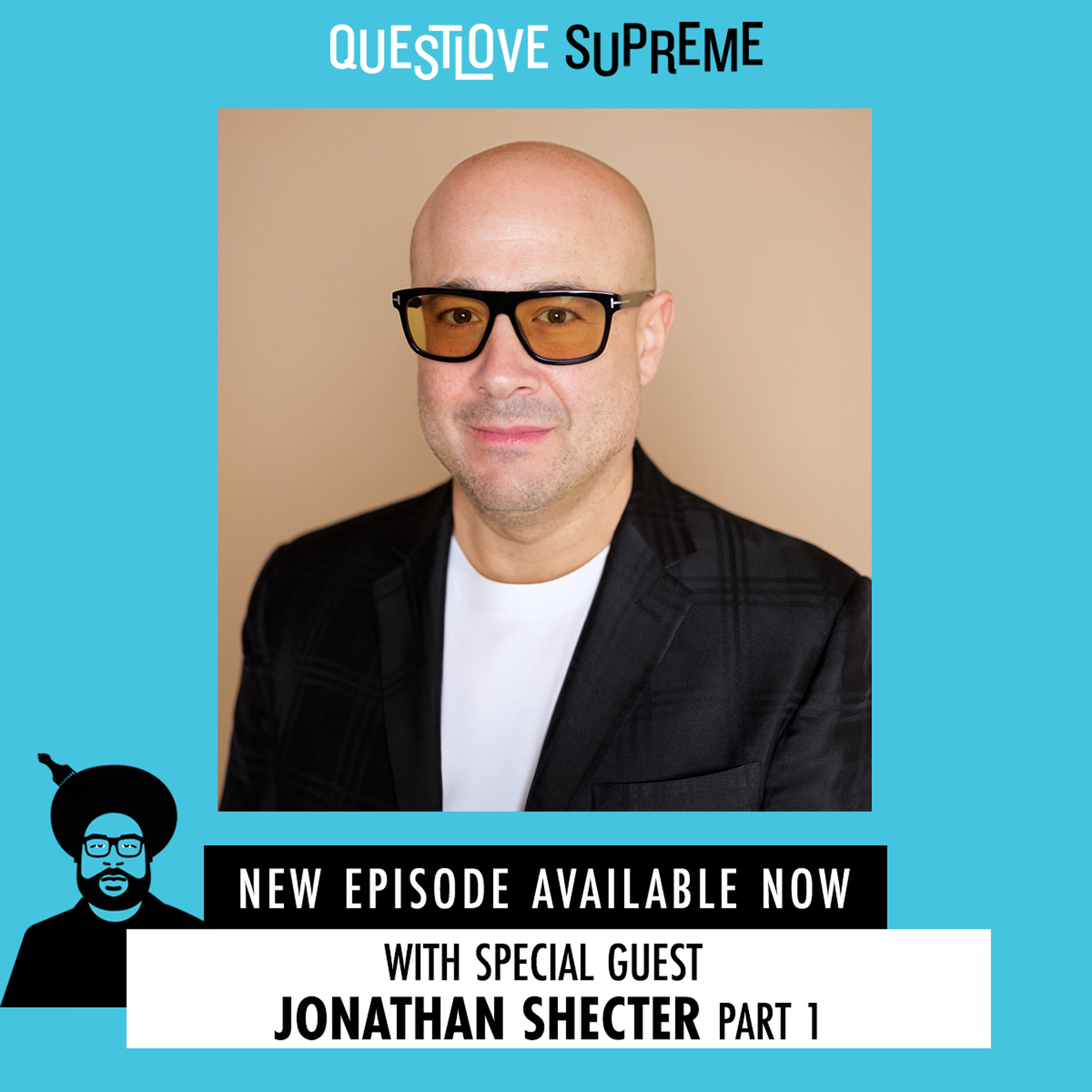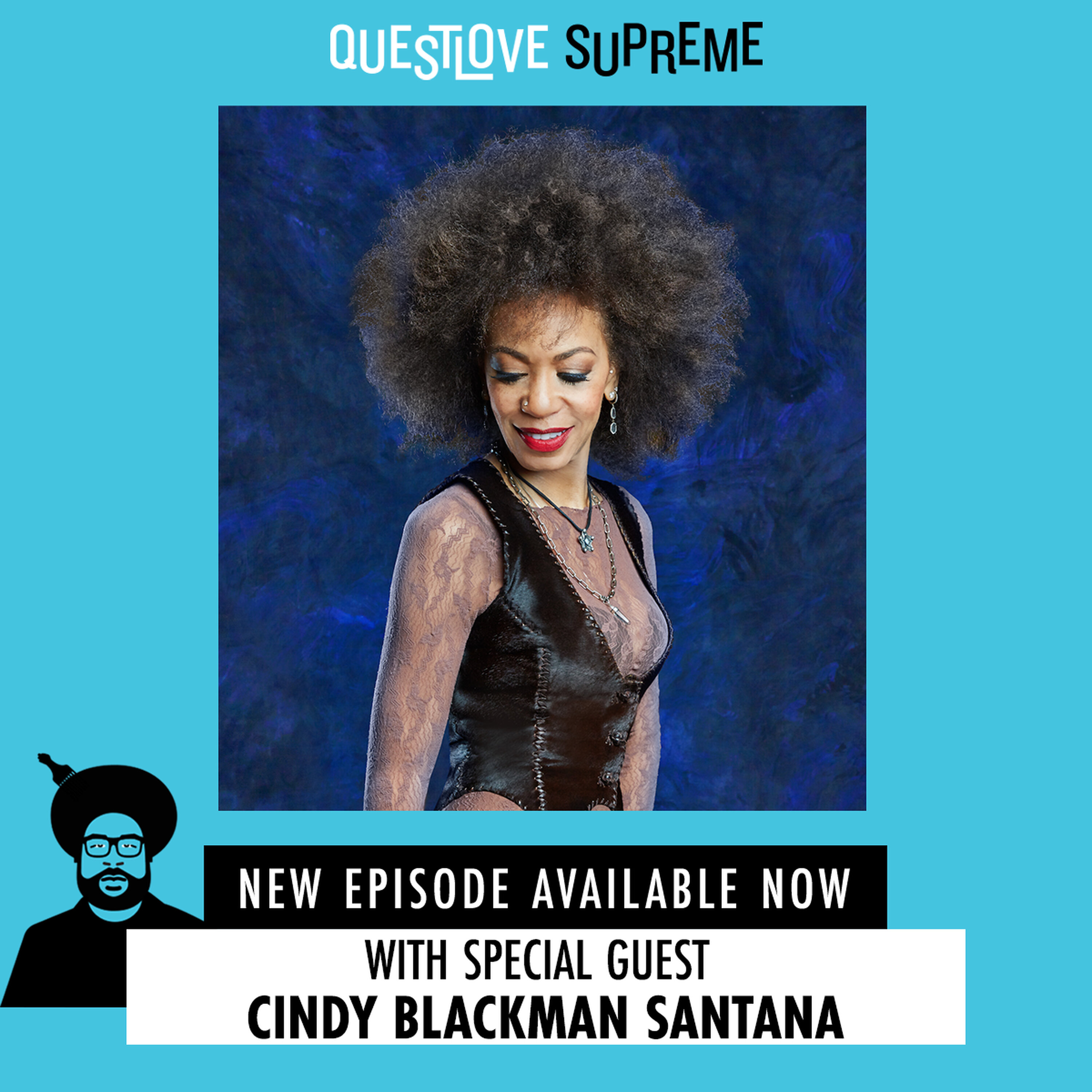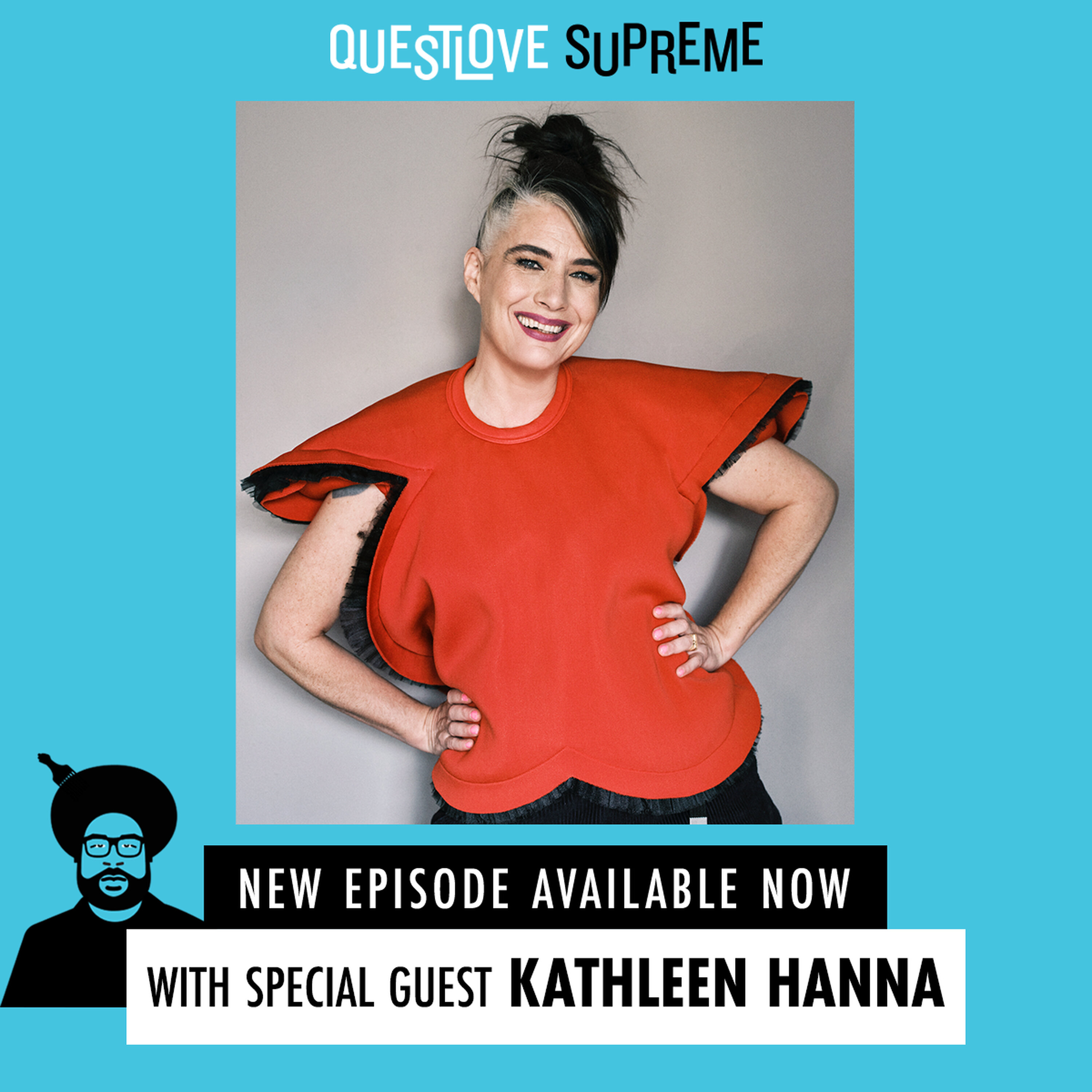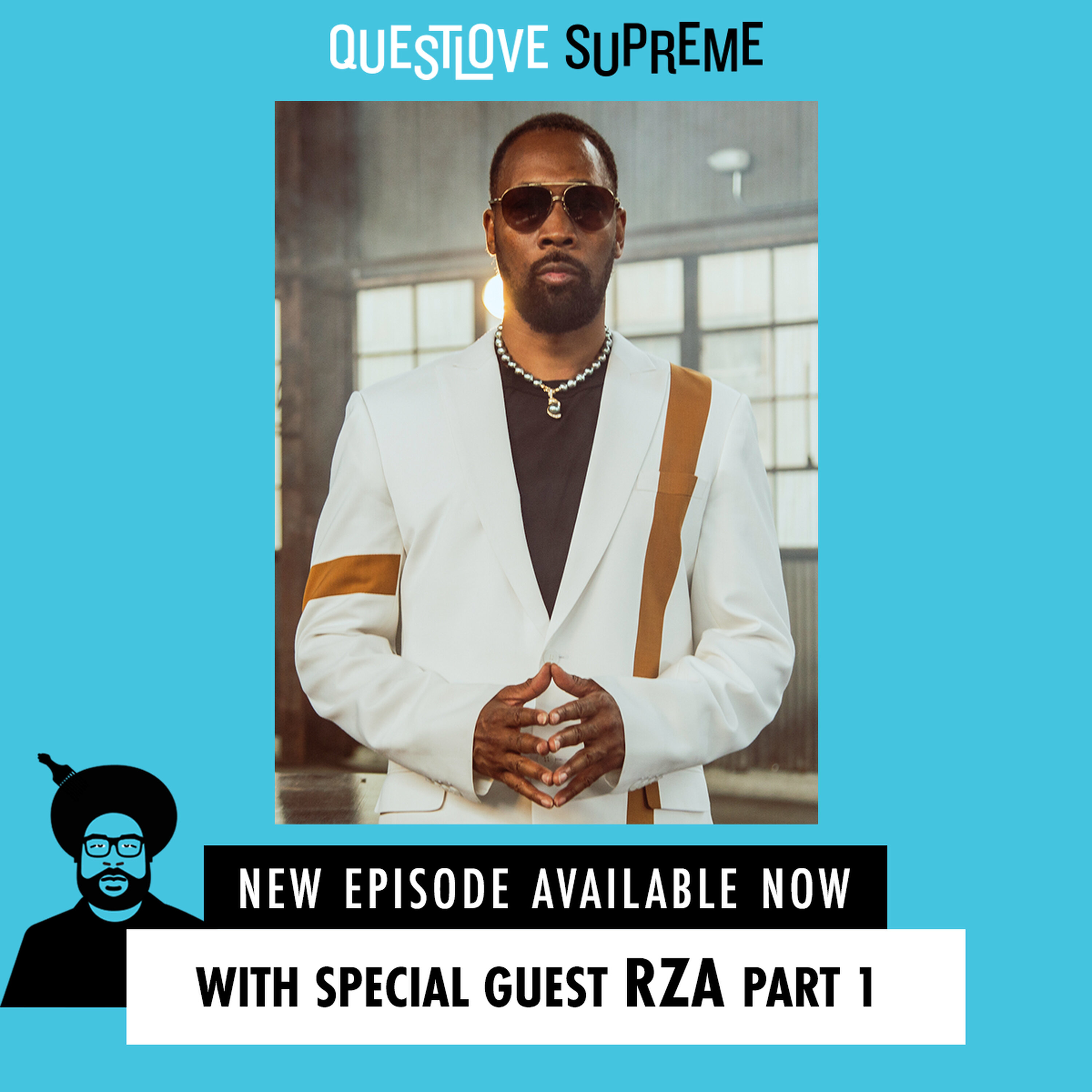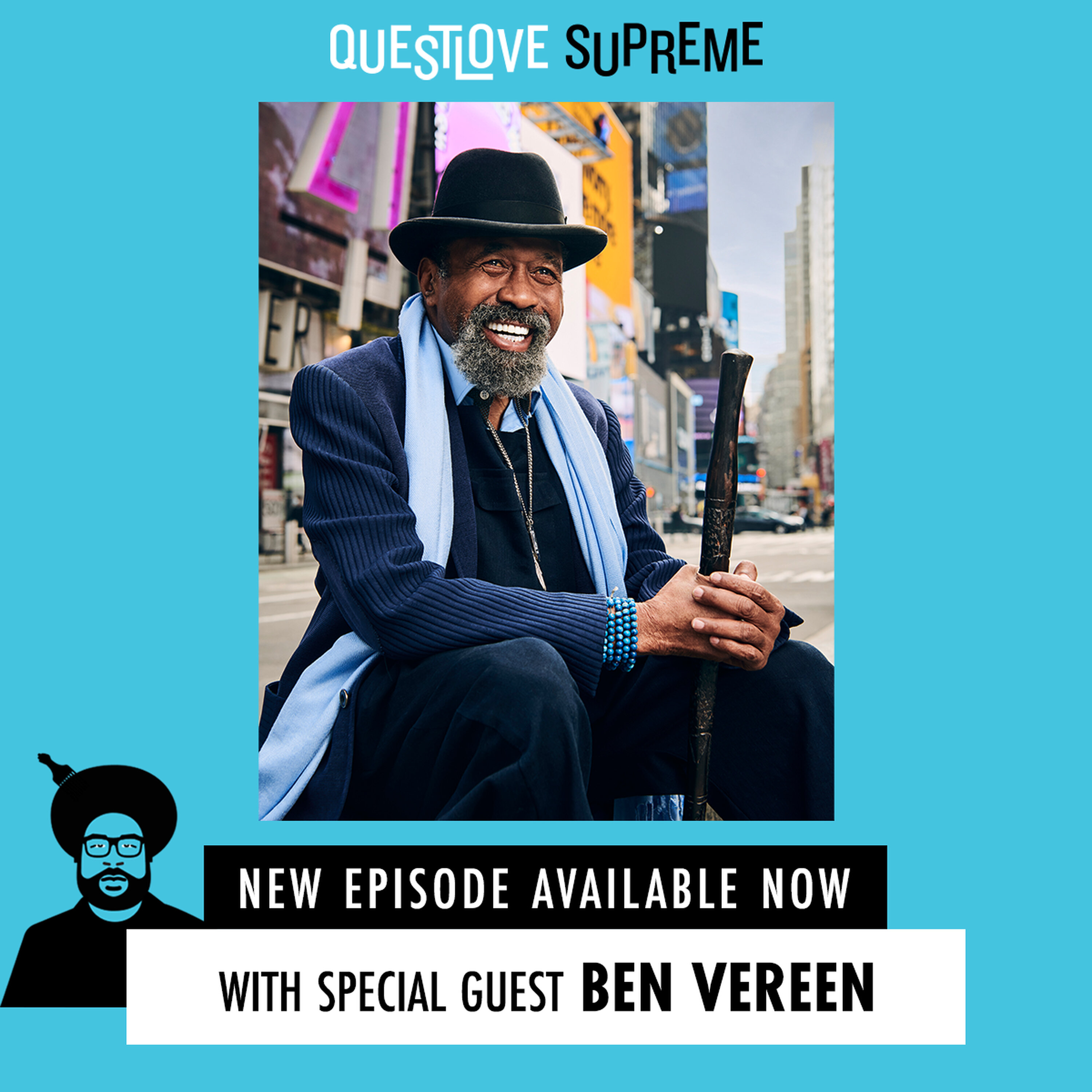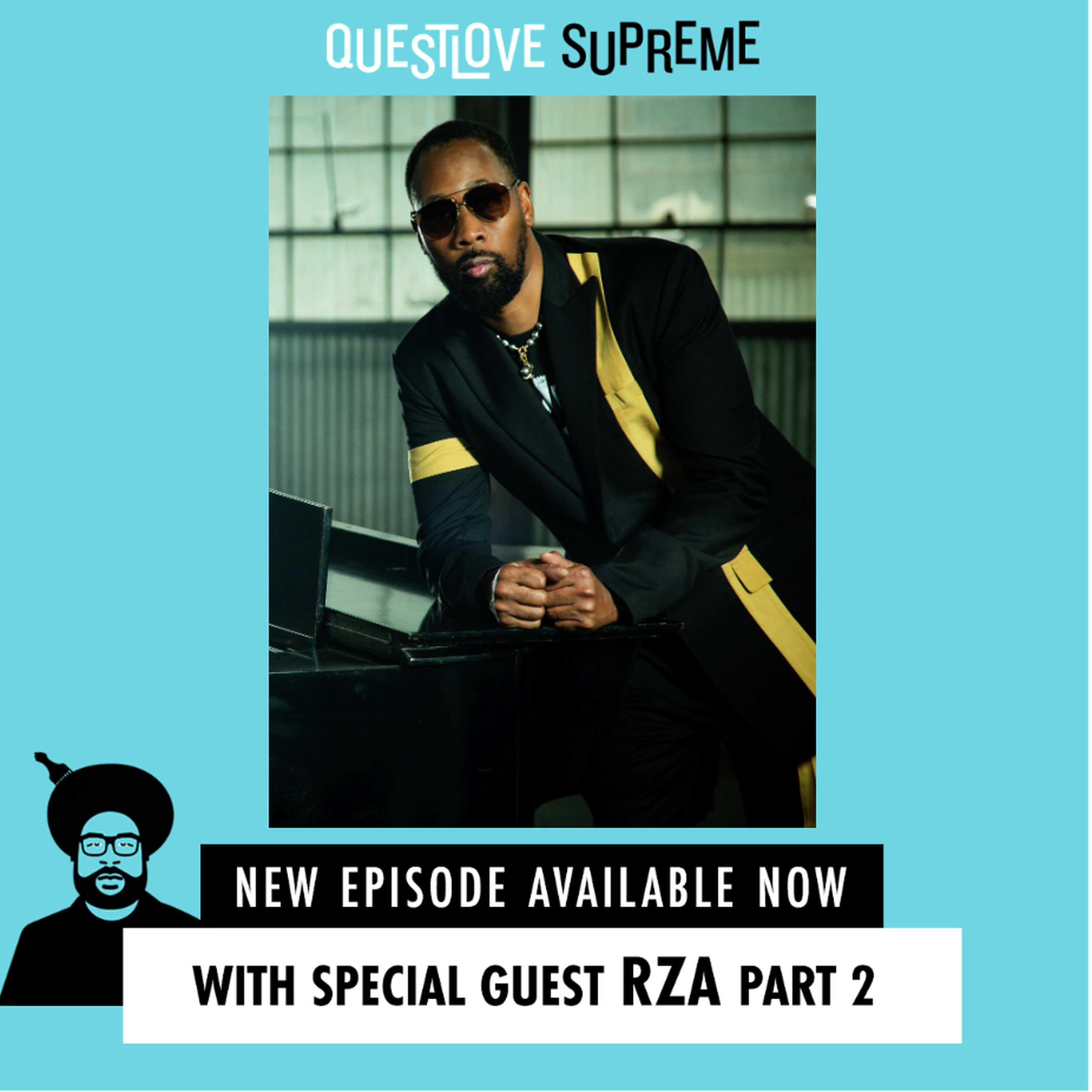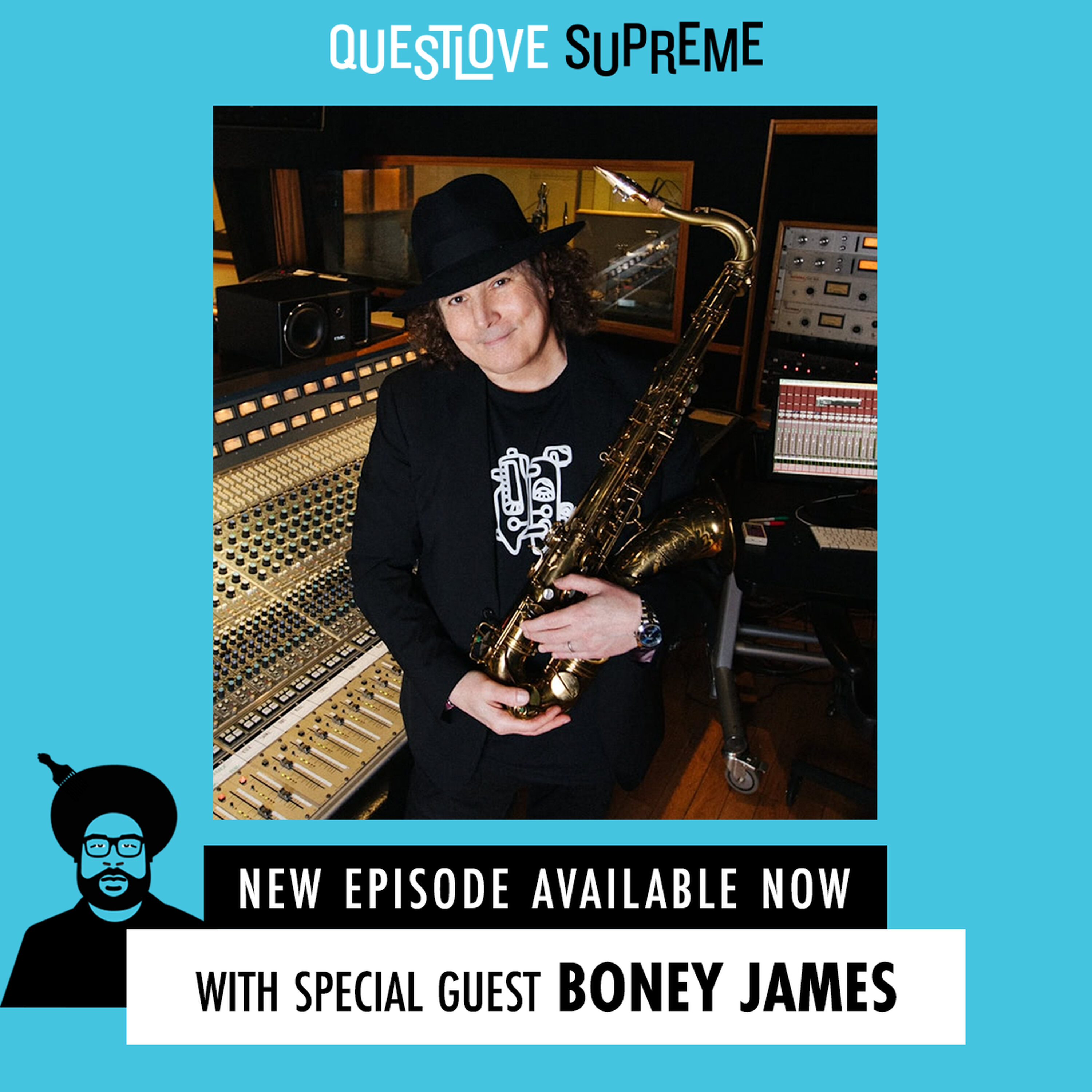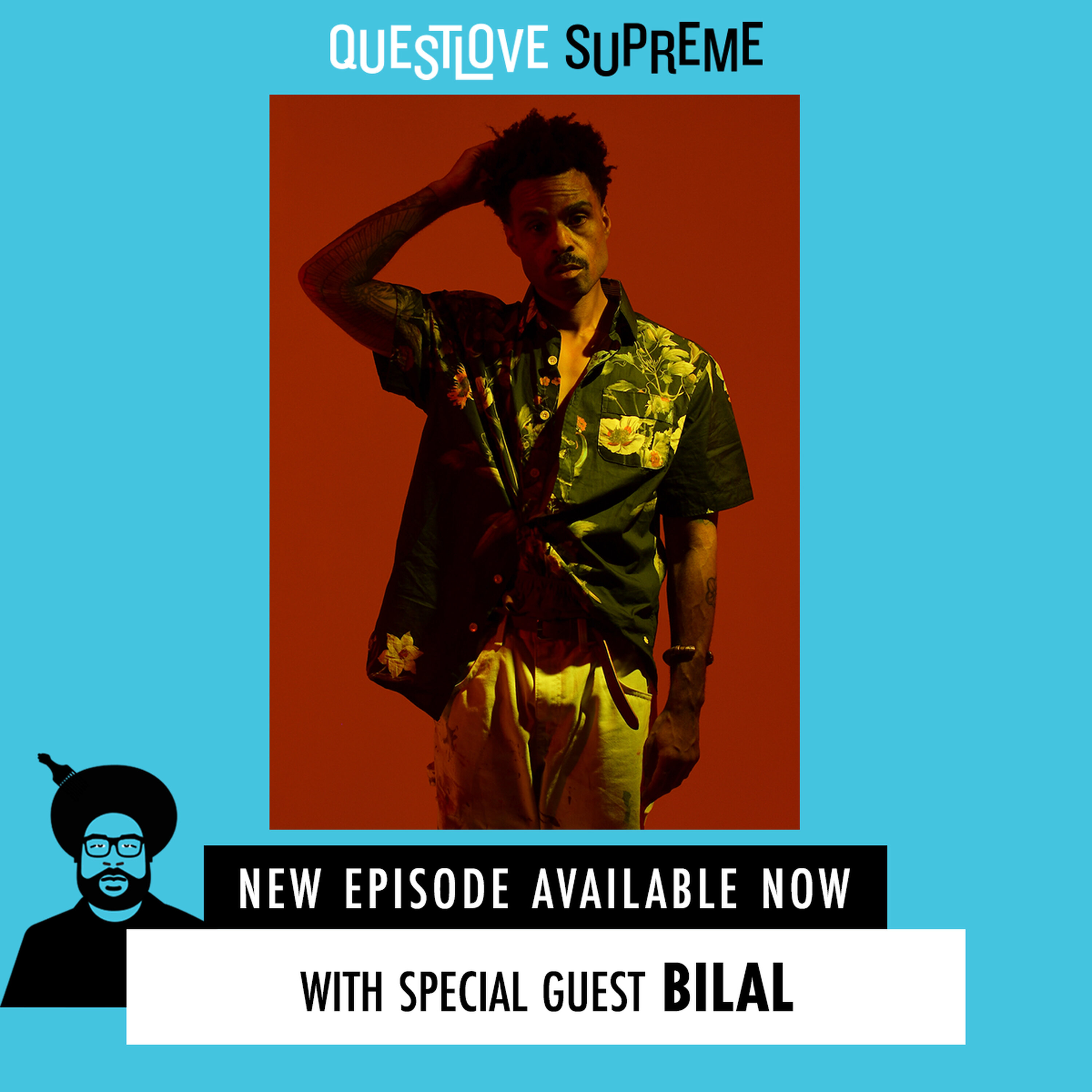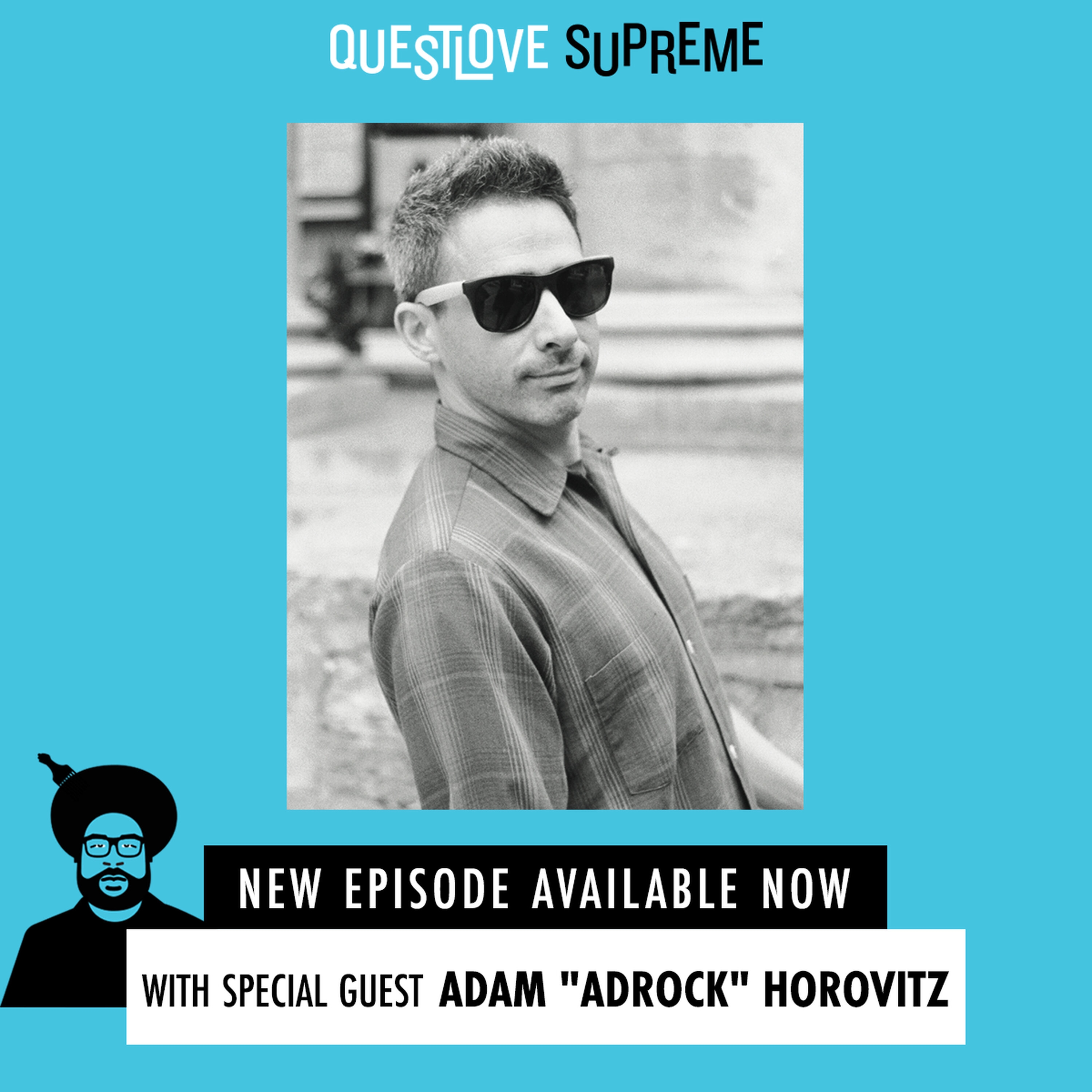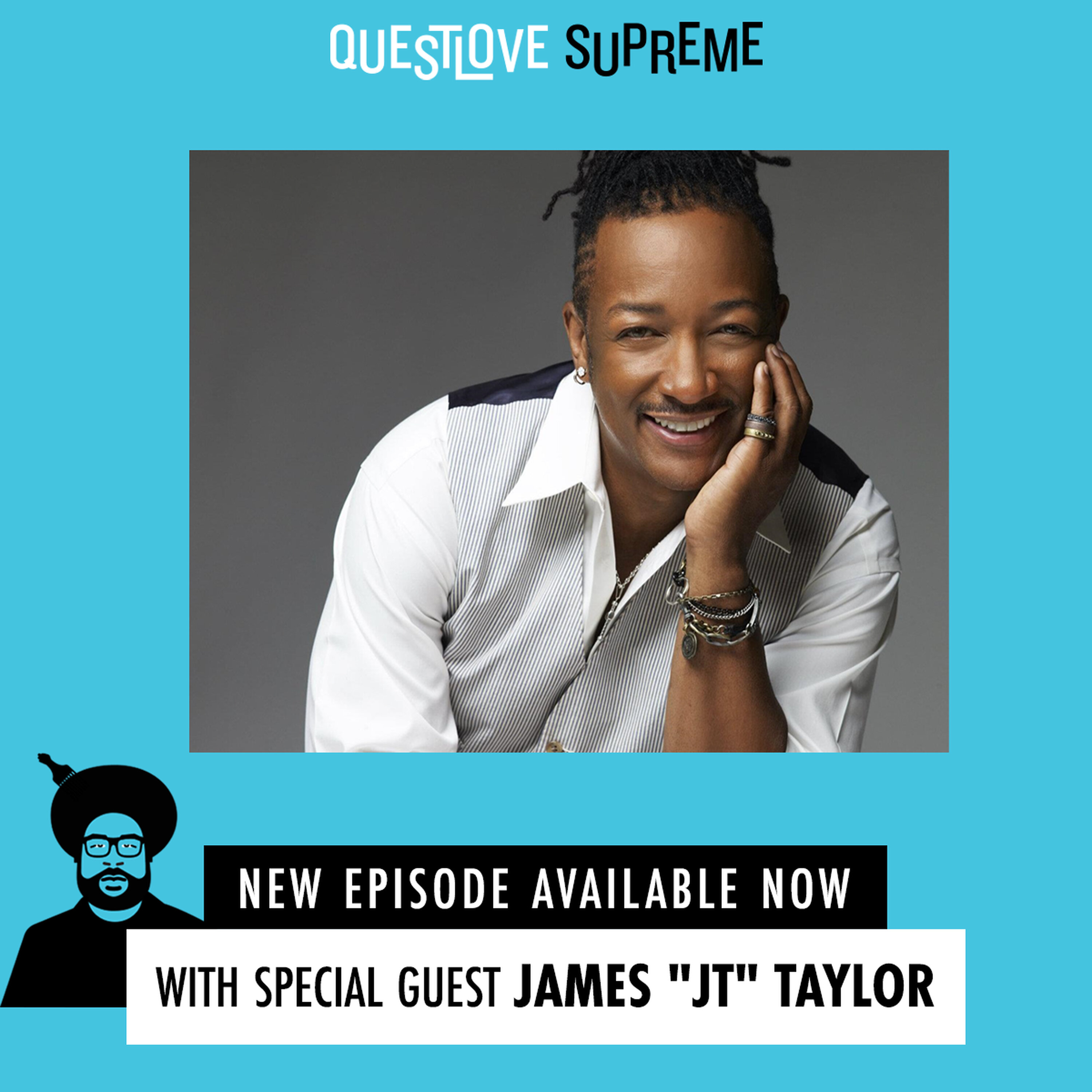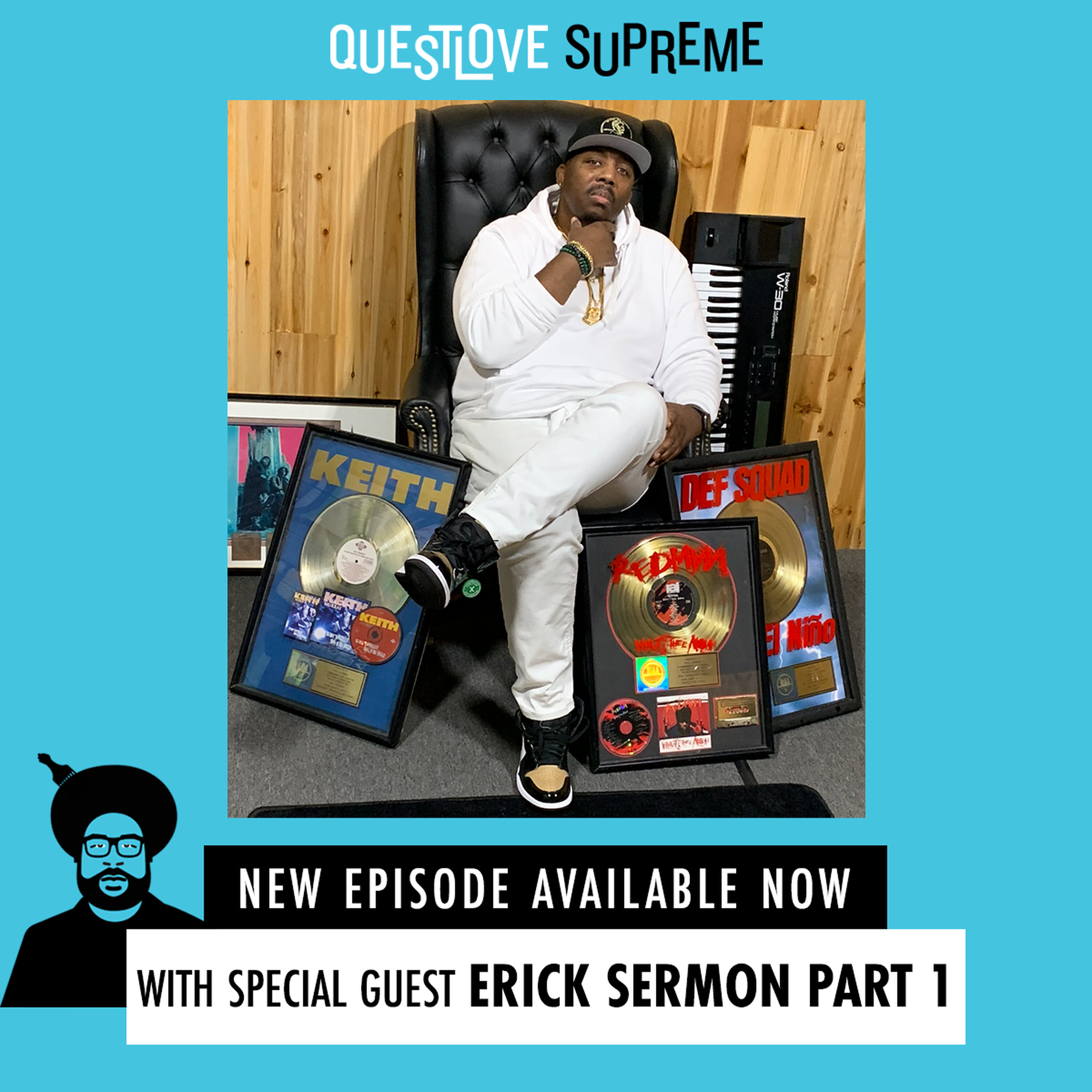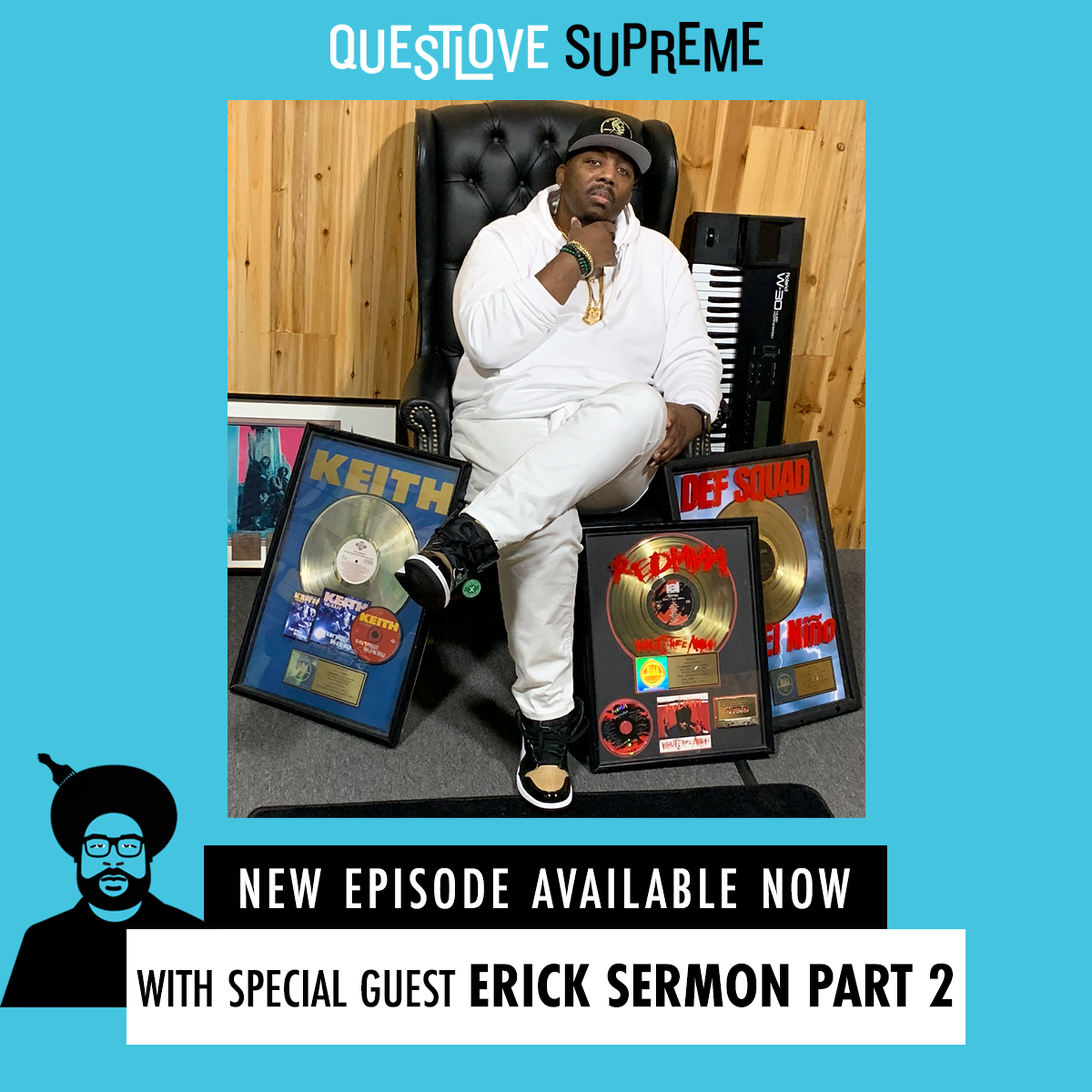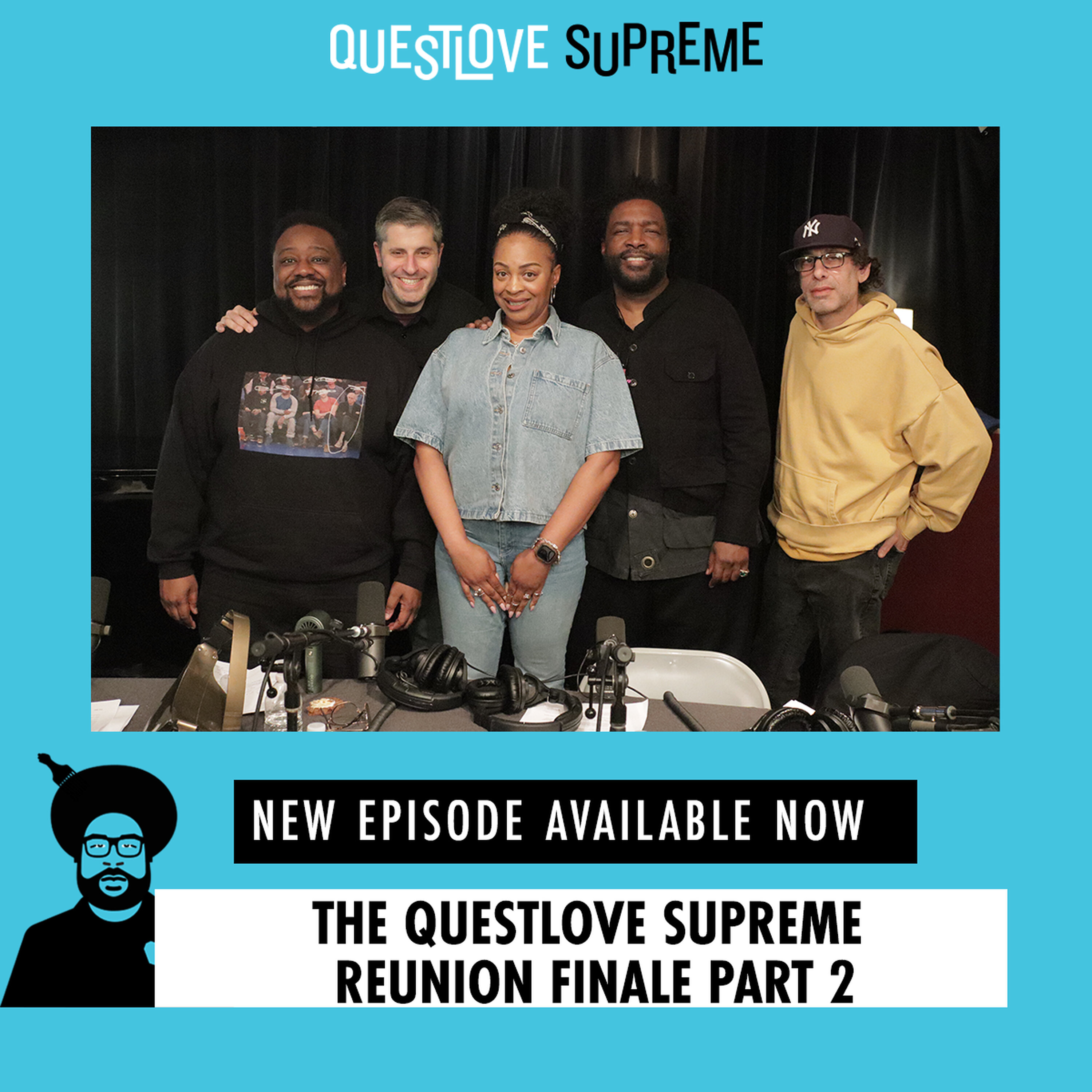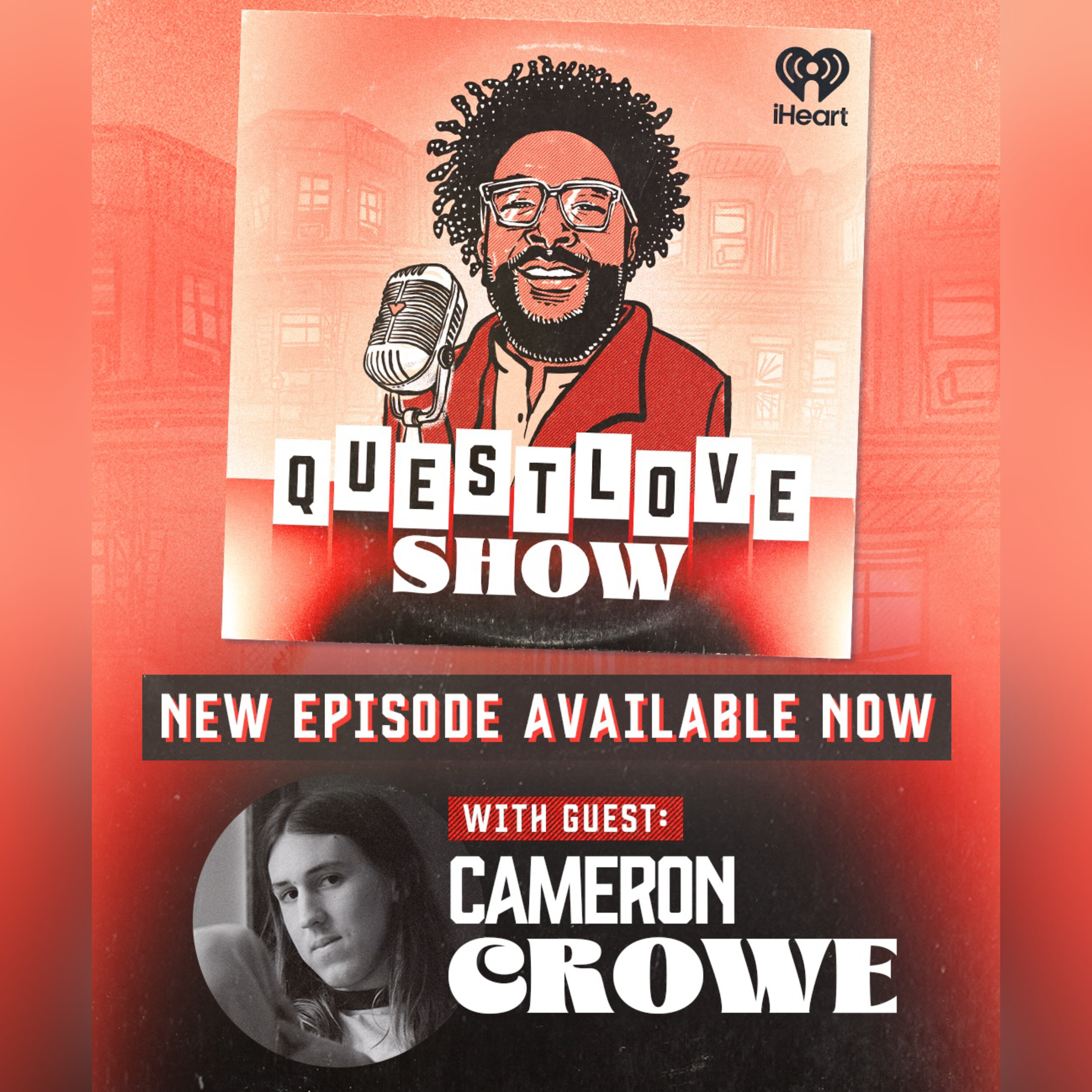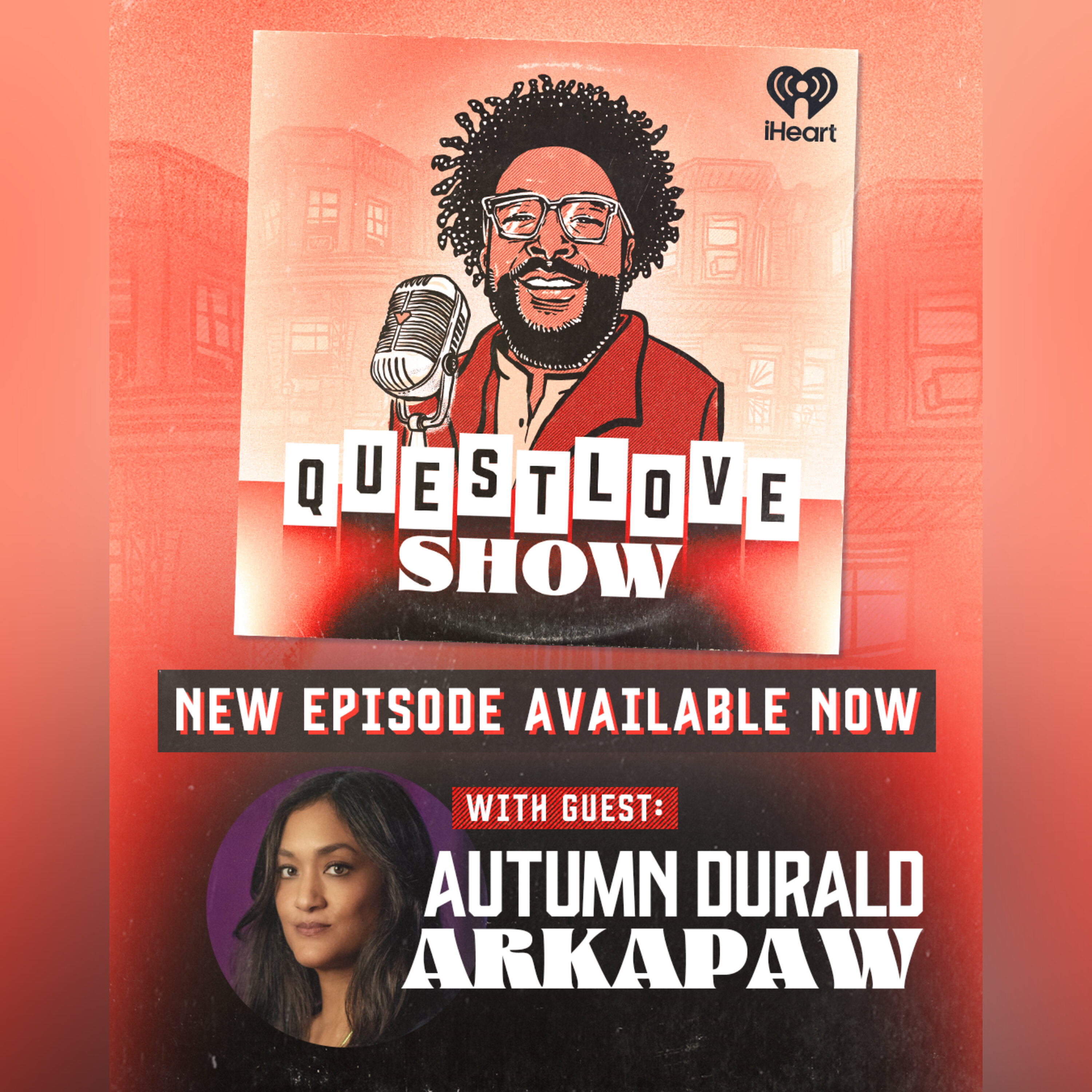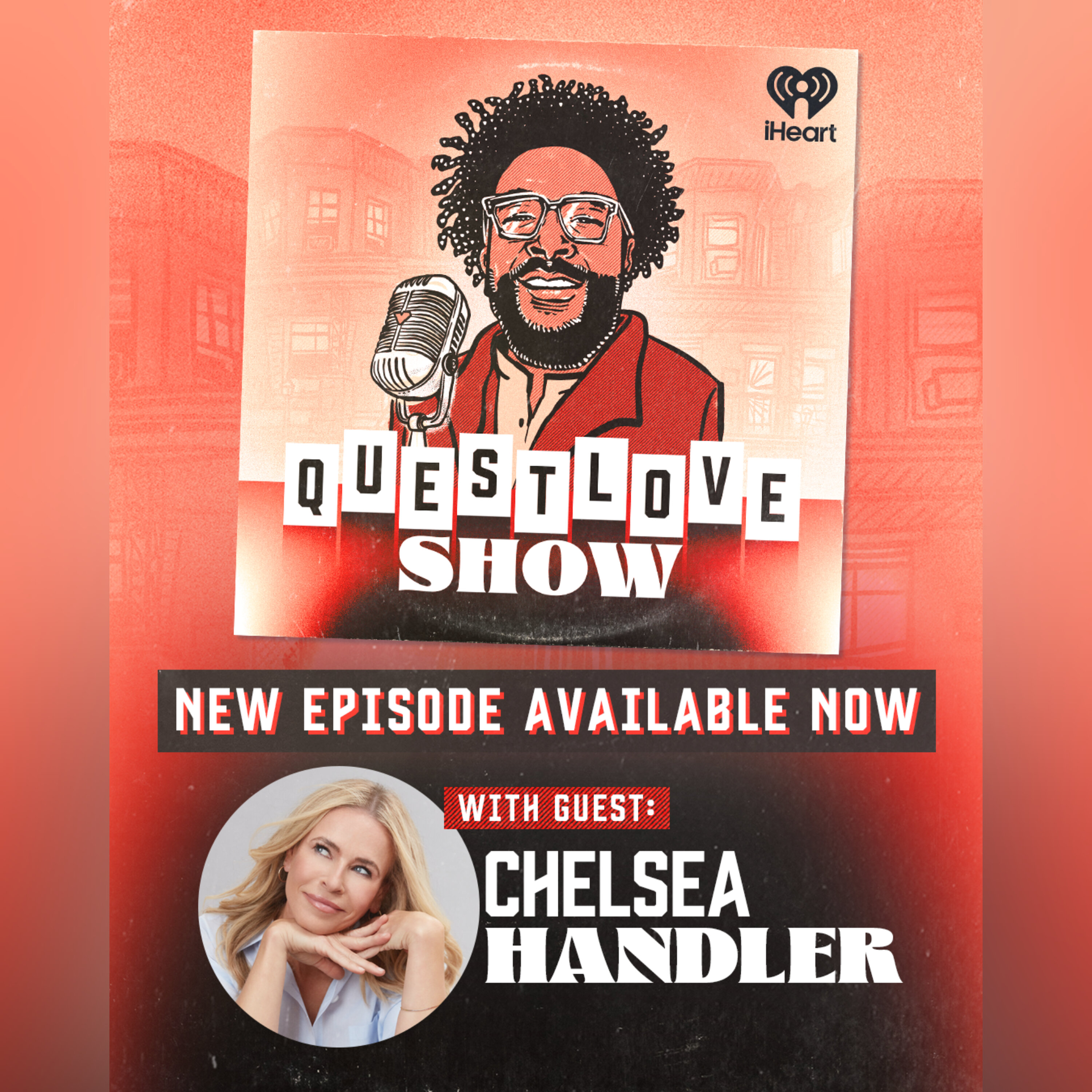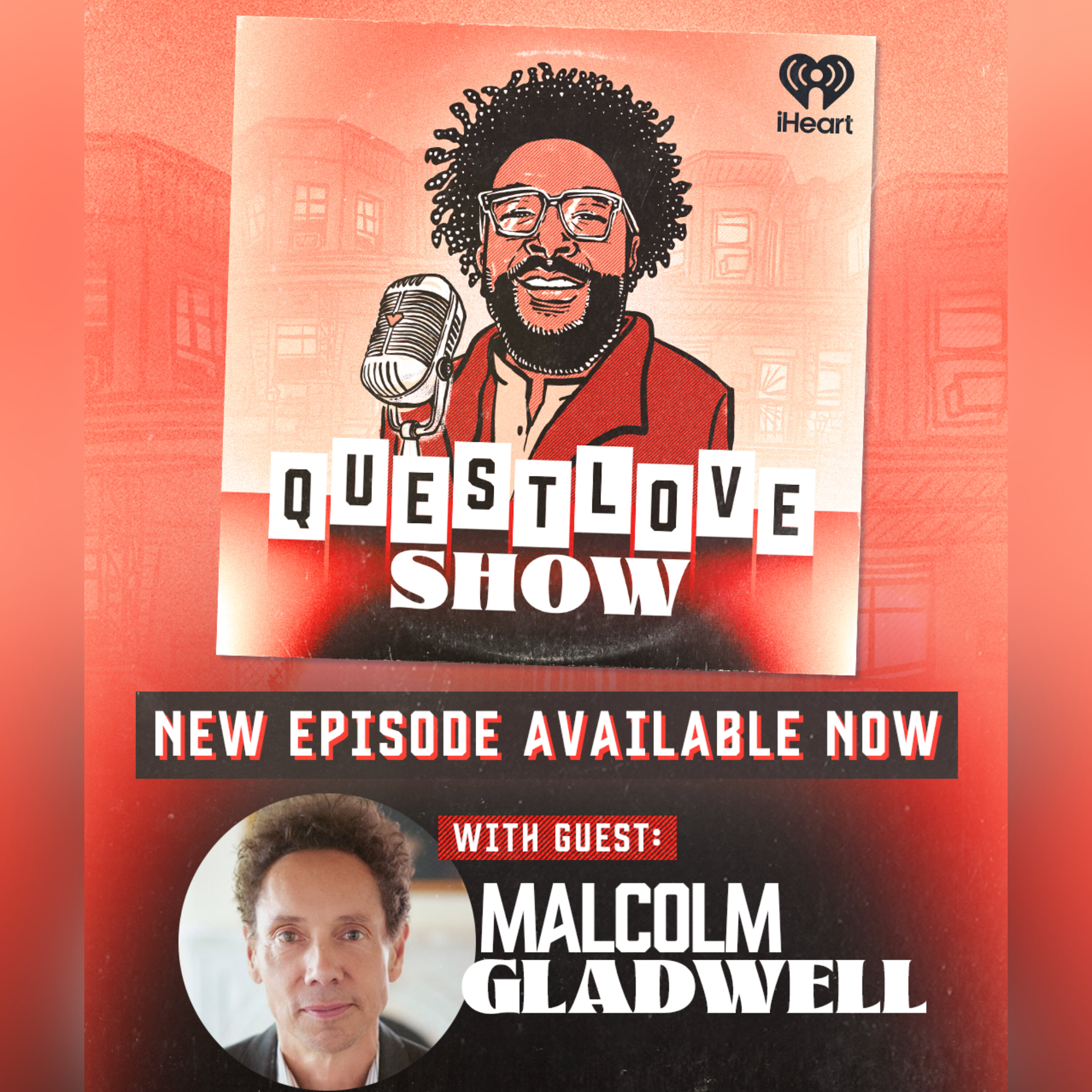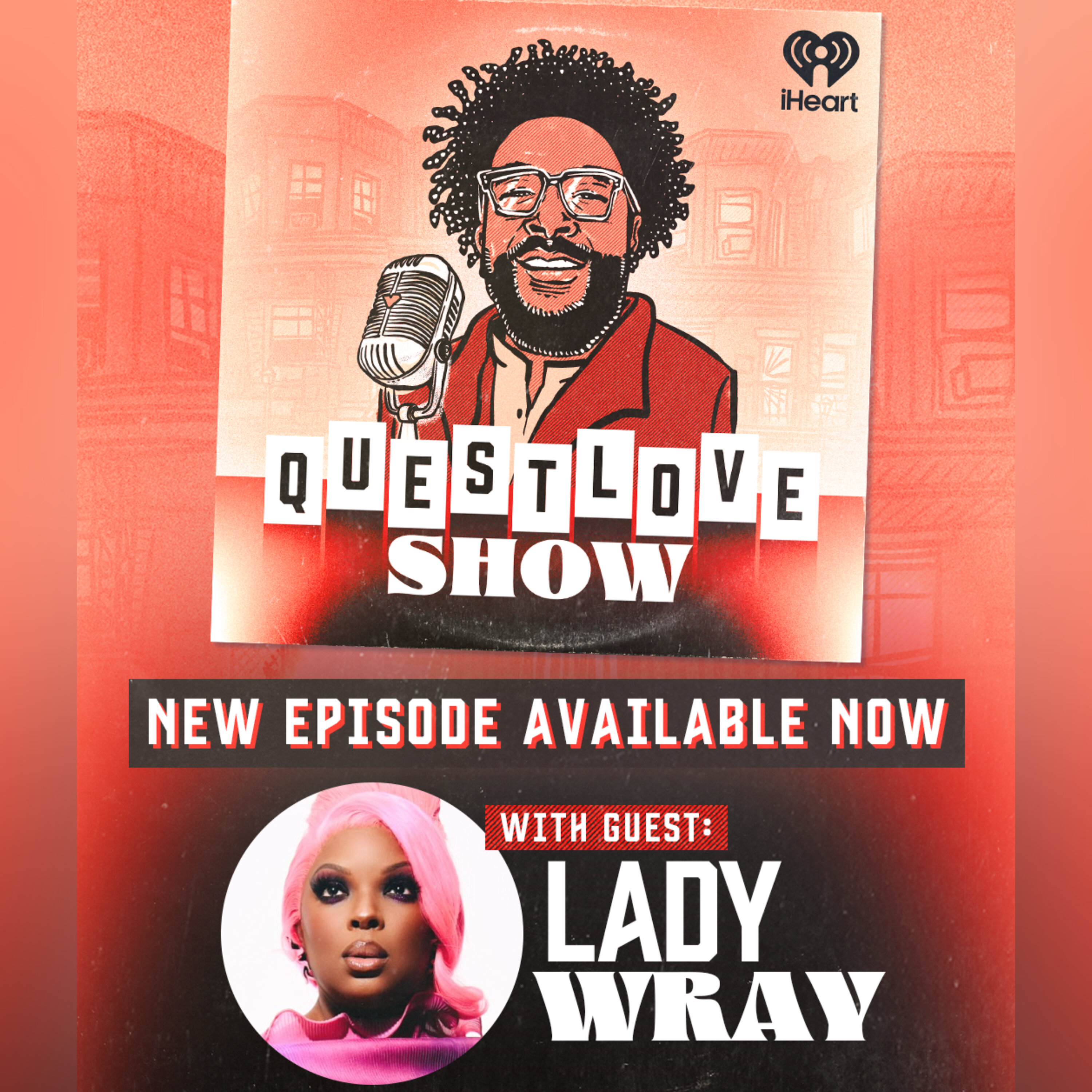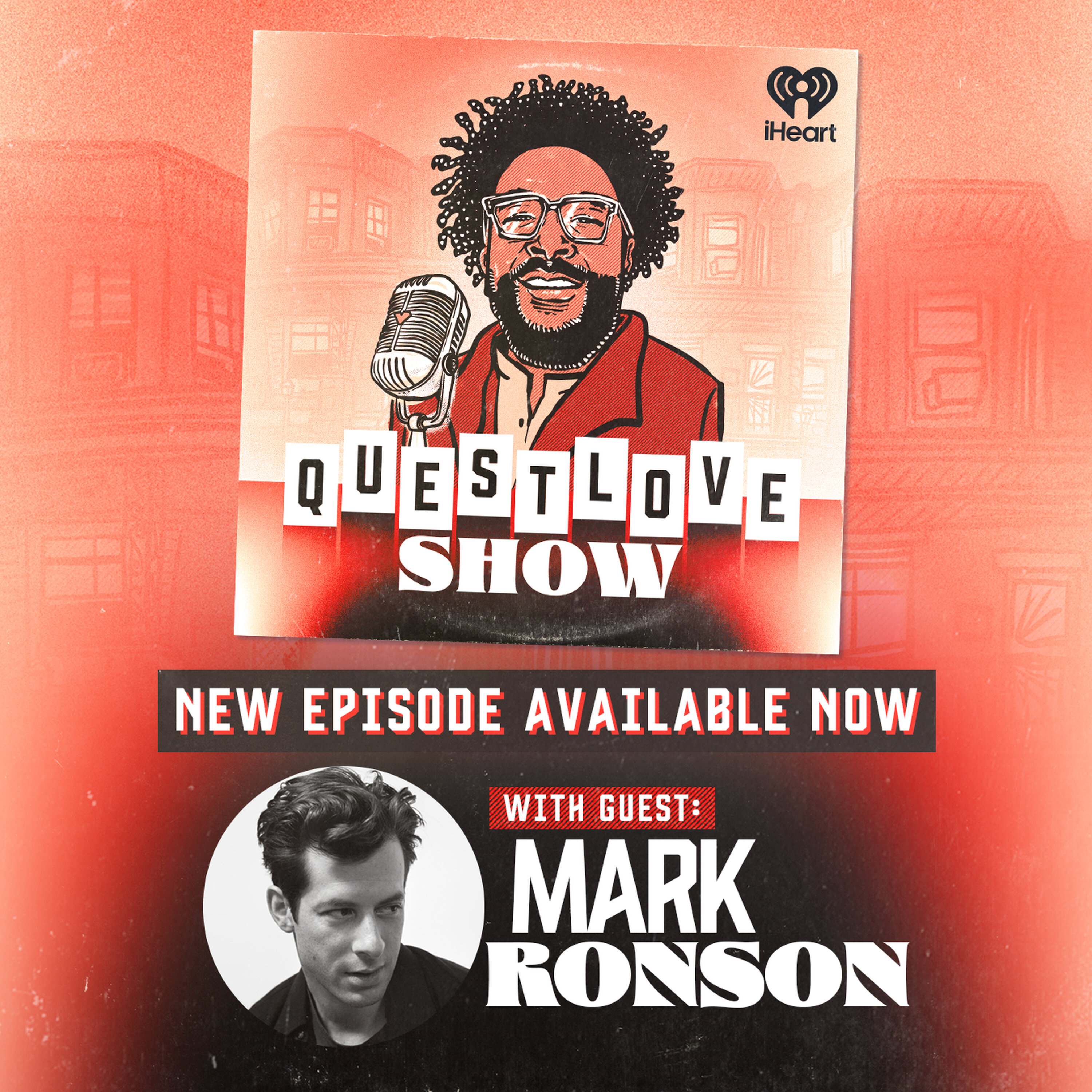SiR
SiR joins Questlove Supreme to share a story of tenacity, self-growth, and personal discovery. The Inglewood, California singer details his years in the wing, working with others (including Jill Scott) as an engineer, writer, and producer. However, as SiR asserted his self-worth, he soon became an in-demand artist who eventually found a lasting home at TDE. Get to know an artist whose HEAVY story matches the title of his new album.
00:00:00
Speaker 1: Quest Love Supreme is a production of iHeartRadio.
00:00:09
Speaker 2: Ladies and gentlemen, Welcome to another episode of Quest Love Supreme. I'm here with the almighty Team Supreme. I assume that brand new Bill is on the streets right now.
00:00:22
Speaker 1: We're here in the water, okay.
00:00:25
Speaker 3: Now here on vacation with the girls.
00:00:28
Speaker 1: He's on vacation. Where Bill vacations?
00:00:30
Speaker 4: Where's these vacations? They didn't want to boat somewhere?
00:00:34
Speaker 1: Damn?
00:00:35
Speaker 5: Okay, you would say, I'm with a bunch of all the girls though, so you know, it's kind of vacation.
00:00:40
Speaker 2: That's what quality time. Let's let's what's up? We got fon Tigelow. You're in North Carolina, I.
00:00:47
Speaker 1: Assume, yeah, yeah, man, what.
00:00:49
Speaker 2: Is that artwork that's on the left side, your left side? I always wonder that when you're interviewing from this place.
00:00:55
Speaker 6: What is that we did? An artist did that illustration for us? It was like a card. Okay, let's warn me on top of about like a like a plane card.
00:01:06
Speaker 4: And yes, I just framed up put in my studio.
00:01:08
Speaker 1: Okay, that's what's up? Like, Yeah, how a y'all doing?
00:01:13
Speaker 4: We are good.
00:01:14
Speaker 3: I'm sorry y'all all forgiving you all this.
00:01:15
Speaker 5: I'm after looking at Sara's album cover, I realized I need to put my workout clothes on every day, and like, I'm a workout So that's what I'm going to do after this.
00:01:24
Speaker 1: Is inspirational physic together, in your post pandemic physical together. We all hear you loud and clear.
00:01:33
Speaker 4: Bro.
00:01:34
Speaker 2: You know summer's coming up, you know, giving my Sarah on Steve, how's it going?
00:01:41
Speaker 7: Good morning everybody. Yeah, how's the network doing? I'm not sure if it exists anymore?
00:01:48
Speaker 1: No more network? Oh wow, I don't know.
00:01:51
Speaker 7: There was some tumultuous season seven. Now we're in season eight. I'm not really sure he's in charge, and you know we're moving forward.
00:01:58
Speaker 1: Damn, you got m needed out of your own network kind of Damn, Steve, It's okay, we got to do a network episode. Yeah, you're right.
00:02:09
Speaker 7: I still got my quest of Supreme family though.
00:02:12
Speaker 2: So basically I will say that this particular episode, this is one of those practice what you preach moments, because I think around October of last year, I kind of put a note out to the producers of the show Layah cousin Jake Brittany that you know, I didn't want to get too comfortable, Like when you get way too comfortable in your comfort zone, that could be too an easy downfall. And I was noticing another podcast that sort of stayed in their.
00:02:41
Speaker 1: Comfort zone and they had a really great.
00:02:43
Speaker 2: Run, and now they're kind of running out of ideas because they're not pivoting and getting out of that comfort place they like. And of course, when you're coming to Quest of Supreme, nine times out of ten, we're talking to veterans that have put like, you know, twenty thirty, forty fifty years the game, and you know, it's always fun and very easy to go back and and sort of marvel on someone's legacy. I gave a note that I really, especially after the Dave Matthews episode, that I wanted to talk to newer artists, younger artists that maybe I wasn't that familiar with, like the back of my hand. You know, it's not like us doing a Narti Michael Walden episode, or us doing a Quincy Jones episode, or you know, something of that level.
00:03:28
Speaker 1: And so wait, we did a Quincy Jones episode, Steve.
00:03:32
Speaker 4: I'll talk about it.
00:03:33
Speaker 1: We did a Quincy Jones episode, believe it or not.
00:03:35
Speaker 4: Actually, you can tell us about it.
00:03:38
Speaker 2: Yes, we've done a Quincy Jones episode. So anyway, that said, I kind of said, start in twenty twenty four. I want to switch it up a little bit and start connecting with tomorrow's legends. You know, people kind of ten years maybe fifteen years in the game, younger than your thirty your forty year old veterans that will be tomorrow's legends. I think it's rather apropos that our guest today is sort of running on an ongoing theme that we've been having with a lot of ours that we've been speaking to in that what their lives were before the pandemic has sort of pivoted and moved into another direction. And basically this artist, of course has Brandy recognition. He has a new album entitled Heavy, sort of making the rounds as we speak, getting a lot of accolades, and along with his collaborations and his previous records, I'm kind of liking this new place that artists are in right now in terms of.
00:04:44
Speaker 1: Putting their heart out there and.
00:04:46
Speaker 2: Showing their vulnerability and showing their journey, which is needed. So pretty much the ongoing theme to me is rather apropos and our guest is no exception to it.
00:04:59
Speaker 1: Please welcome. Two question of supreme sir.
00:05:04
Speaker 4: What are you doing?
00:05:07
Speaker 1: Where are you talking to us?
00:05:08
Speaker 4: From this morning eighty fourth? I'm over here in Inglewood, man.
00:05:12
Speaker 3: You're still in Inglewood?
00:05:14
Speaker 1: Yay?
00:05:15
Speaker 4: Course, of course, of course, yeah, I can't leave. Man. It's the neighborhood actually got better since they did the stadium and they're working on Clippers stadium over here. If you know anything about the city, has been a lot of changes over here.
00:05:26
Speaker 3: This gentrification thing is real over here.
00:05:29
Speaker 4: It's not a bad thing. It's not a bad thing for somebody that still lives in the city. People that held onto their houses and didn't sell and move and stuff like that. They're up right now. The house, I mean it is up right now. So I know everybody around me is happy.
00:05:43
Speaker 3: There's something special about LA people.
00:05:44
Speaker 5: They really hold on to their homes in South I live in lamert So I'm just saying, get these people hold on to their.
00:05:49
Speaker 4: Homes for sure, if they know any better, because the property value is just going to keep going up. The center city of Los Angeles, including like Inglewood and Coppt in the inner city is flourishing, you know, what I mean. And the people that owned homes have been there thirty forty years. So my neighborhood is the same people I run into, the same people I grew up with. They still live in their mama house.
00:06:07
Speaker 5: And thanks, I'm Merre's funny because the landlords around here are old and black too, so they just is discriminatory. So when I got my place, he definitely looked me up and down like, okay, you fit.
00:06:14
Speaker 1: Like, yeah, that's weird.
00:06:18
Speaker 2: I went back to my old neighborhood, my old house that you remember, Laya in.
00:06:23
Speaker 3: South Philly, Saint Albans.
00:06:25
Speaker 1: Yeah, sad to.
00:06:26
Speaker 2: Say that I'm the last owner of pretty much of that block, and sad to say I'm the last black owner, Like it was a black neighborhood when I.
00:06:37
Speaker 1: Moved in, and now I didn't recognize that shit.
00:06:41
Speaker 2: I felt like Marty McFly walking through nineteen fifty, like we got Starbucks on the corner, Like that's hilarious.
00:06:49
Speaker 3: It's crazy.
00:06:49
Speaker 5: Because for reference, sir, you should know that, like Philadelphia is probably in stage eight A, gentrification is a one to ten. I always say, like DC and Harlem are in stage fifteen past ten, but LA is probably in a five or six. So I know you're saying what you're saying, Yeah, I do. Y'all just got there. You just got the stadium. We just get in the train stations. It's no, they're jogging. They're jogging.
00:07:13
Speaker 1: They're jogging.
00:07:14
Speaker 2: Wait, so you're saying to me, because the thing was, I went to that stadium on not opening night, but like opening month.
00:07:23
Speaker 1: Now the stadium beautiful. Where I park though, Dad.
00:07:30
Speaker 4: You park at the Forum, probably trying to get you over to so far dog.
00:07:37
Speaker 2: You know, that was a couple of years ago. I hope it's gotten better. So you know, it was, it happened. It was a little weird.
00:07:46
Speaker 4: No, No, it's still a hectic now, mind you. I'm not I'm not a I'm not a football fan, so I don't care about the stadium. It's not my thing, you know what I mean. But it's just it's done a lot for the city, you know what I mean. And having met the mayor and talked to him about it then and seen you know, all of the businesses that have come up, and you know it kind of it makes you look at it differently. You know. I definitely was thinking about protecting, you know, the people that were getting displaced because people got displaced. You know, we ain't gonna talk about that, but you know they tore down homes and stuff like that to move things in for the Clippers stadium, and you know, that was a big thing. But once you start to see the benefit, you kind of look at it like this can work, you know. But it's all about the community coming together. And I from from my perspective, I don't think Inglewood ever being completely gentrified, you know what I mean. I see it as it might end up being a melting pot, which it already kind of is. There's a huge Asian community out here, there's a huge community of someones. There's a huge you know, Mexican community as well as all the black folks out here. So you know what I mean, you're gonna have to kick out a whole bunch of different people before you get to straight up just gentrification, you know. And I don't think I don't think we're on that route.
00:08:57
Speaker 1: I dig it. There were you born in Inglewood.
00:09:00
Speaker 4: Inglewood Adjacment. We're Los Angeles baby, So me and my family were all born in like South Central, but my dad was born in Inglewood and the house that we grew up in My grandmother bought in nineteen sixty four, so we had been in the city my whole life. But no, I was born at uh she I think I was born a Killer King. I know my mom was.
00:09:24
Speaker 3: Okay, Killer King? Is that what you said?
00:09:27
Speaker 4: Killer King? Is the hospital in la is famous?
00:09:32
Speaker 1: What is it known? For people that aren't?
00:09:35
Speaker 4: It's in the hood. So when you get shot, they take you to Killer King and nobody survives at Killer King.
00:09:41
Speaker 1: Like Brady, you were going to say that, Okay.
00:09:44
Speaker 4: Every city to Killer King. You're telling them take me anywhere.
00:09:47
Speaker 1: But in Philadelphia that would be Misser Cordia Hospital. I get it.
00:09:53
Speaker 4: I got you. That makes sense.
00:09:55
Speaker 1: We called it miserable Codia Cordia.
00:09:58
Speaker 4: Yeah.
00:10:00
Speaker 2: I'll ask you what I ask all of our guests. Do you remember what your first musical memory was in life?
00:10:07
Speaker 4: Great question? Okay? Now? Which had a piano roll on me? Because I don't have perfect pitch. But let's just give an example. My mother will be at the piano and she'd be like, this is see. If you have your fingers here, you're hitting the note.
00:10:21
Speaker 8: If you go down here, you are flat.
00:10:24
Speaker 4: If you go up beast, you are strong.
00:10:29
Speaker 1: See you know what I mean.
00:10:31
Speaker 4: That's my first musical memory is my mother teaching us how to sing, or trying to teach us how to sing. And my first musical performance, I was five years old in front of the church and we sang Oh Holy Night, and so I you know, I grew up. I grew up in a house where music was everything. You know, I don't remember my life when I don't remember a time of my life where somebody wasn't creating or somebody wasn't performing. And you know, I'm blessed to be in a musical family.
00:10:59
Speaker 6: Your mom, she was a singer and already she sang for Steve not Stevie Shaka and Michael Jackson that she did backs for them, yep, yep, yeah man, Miss Jackie, Miss Jackie, yep.
00:11:12
Speaker 4: And prayers up for my mom. Man. She was in a car accident a couple of days ago. So she's she's got surgery today at twelve, and we're just fearful.
00:11:21
Speaker 5: Man.
00:11:22
Speaker 4: She fractured her second vertebrae and it's been you know, his last couple of days has been really tough on us. But she's doing good. She's in good spirits, but she's yeah, resu.
00:11:34
Speaker 1: How long was she singing?
00:11:36
Speaker 4: She grew up in a church too. Her her grandfather was a pastor, mother's singer in the church, you know what I mean. Her and her brothers were raised in church. So my mom doesn't know anything about music. She started playing piano when she was six years old. And my uncle Andrew started playing bass when he was seventeen and never looked backing. Yeah, you guys know Andrew Gruchet. If you know anything about gospel music, yea better know Andrew Guchet.
00:12:00
Speaker 1: God, yes, yes.
00:12:01
Speaker 4: Yeah, the Godfather of base you know. And my mother was blessed to have a brother like Andrew. I can say their dynamic kind of creates the dynamic that you see between me and my brother the Smoke and my brother Deveond. They help each other when they can, but they're individuals and they're very powerful on their own. So, you know, it was it was always the you know, just the joy to watch my mother work, you know, being the minister of music at church. You know she was out there every Sunday. Well, let's let's be honest. She was there Tuesday, Thursday, Friday, you know choir, Yeah, Bible study choir, rehearsal, Friday service, Sunday service, you know what I mean. My mom was a workforce, you know, and still to this day. We was with her yesterday and the only thing she was worried about, you know, when they're talking about surgery, she's like, can I play the piano? That's you know what I mean, Like, I don't care about nothing else. I need to play the piano, you know what I mean. So that's the type of mother I had.
00:12:56
Speaker 1: Well, were you Seventh Day of ventist or.
00:12:59
Speaker 4: Oh no, we're non denomination okay.
00:13:02
Speaker 1: Oh damn, okay, Okay, it.
00:13:03
Speaker 5: Was just real Christians that did the thing. Like you know, it's just different church days.
00:13:07
Speaker 2: Well often when I hear every day usually it's seven Day of Venice. But and it's weird, not denomination when people always thought with more lenient, not.
00:13:17
Speaker 1: Too super strict on things that are.
00:13:21
Speaker 4: Normally you know the law, right right?
00:13:25
Speaker 1: Okay, So non denominational.
00:13:27
Speaker 2: Do you remember like your first creative project, Like what was the first thing that you remember doing creatively or what was singing in that church?
00:13:35
Speaker 1: Your first Okay?
00:13:37
Speaker 4: So when I was younger, my mom bade us do music, and as a kid, I didn't appreciate it. I didn't understand it. I shunned away from it, and I didn't I didn't like it. So when I was about fourteen fifteen, we sat down and had a conversation about what I wanted, and I was like, I want to play sports. So I stopped doing music. Didn't do music ten years. I didn't even come into the game until I was like twenty three, twenty four. My brothers were writing twenty four something like that. Yeah, twenty four, twenty five, something like that. Yeah. I didn't write my first song until I was twenty six.
00:14:04
Speaker 1: Wo Yeah, you know what, I man, how old are you right now?
00:14:09
Speaker 4: Thirty seven?
00:14:15
Speaker 3: I gotta know a beer?
00:14:16
Speaker 2: Well, I'm sorry, I think when you're my age fifty three? Hello, but everyone to me is just nineteen.
00:14:24
Speaker 4: Yeah.
00:14:24
Speaker 3: We got to work on that.
00:14:26
Speaker 4: Yeah, you thought you just talking to a kid. Man. I got.
00:14:31
Speaker 1: This young kid. Let me hear me, let me.
00:14:34
Speaker 3: Some things.
00:14:35
Speaker 1: My knowledge on this young boy.
00:14:39
Speaker 9: Man.
00:14:40
Speaker 4: Hey, So it just it just the hands up. You know. I started off my because I'm I'm the type of person I am. My thing is knowledge. When when I like something, I got to know how to do it right. You know what I mean. So I went to school. I went to Los Angeles School. I was my first step when I when I started writing songs, I was like, oh, I stuck, let me figure out what's going on. I was terrible at it, you know what I mean, And my my brother was kind enough to show me that there was potential behind it. But I was like, naw, this don't sound like what these niggas are doing. So I went to the LA Film School to two years of my life and really focused in on trying to just become a better musician and engineer. So I'm a recording engineer by trade. That was my first, you know thing, And from there I started to just develop my sound and my songwriting and stuff like that. And this is all while I was just working as an engineer. My first big gig was working for Tyrese, which, yeah, that was interesting.
00:15:32
Speaker 1: Yeah, I like that faith and that's love Supreme Afice next week.
00:15:42
Speaker 4: Shout up to Tyrese. Taught me a lot about people, taught me a lot about the music industry, taught me a lot about independence and how much I wanted it at the time, Like I'm showing up the sessions. I'm his you know head engineer in the house. I got six people working for me, you know, and I'm just watching all these other songwriters come in and try to bless him.
00:15:59
Speaker 8: Wow.
00:16:00
Speaker 4: At the time, I was writing songs and I had found a little confidence. But I wouldn't have said that because it was my job, my day job, so I wasn't even trying to like get in get in the mix. But I played a couple of records for one of the other songwriters one day and they were like looking at me crazy, you know what I mean. We were at a camp for his last project called the Black Rolls Album. Yeah, Yeah, and my brother Davion was one of the songwriters. I got him in to write songs for Tyrese and he just wasn't having it. He was like, fuck that, you know what I mean, You're gonna play some of these folkus fucking songs for Tyrese. So they had this big meeting where everybody would sit down at the end of the week and play two, three records or something like that. And I had like a batch of like five ready, and I was the last person to play records. Everybody played records as like Darrel got records. I come in, I play my songs and everybody lost their shit. It was like a big This was probably the biggest music moment for me at today at the time.
00:16:56
Speaker 8: But Tyrese runs up gives me a big hug. I didn't know, Oh my God, like I didn't know. I had to tell him underneath my wing, you know, I just you know, you know what I mean, And like a two weeks yeah, you know, just there's so much going on, man, God is moving in this room.
00:17:15
Speaker 4: People. Hey, look, look, can't nobody do Tyree's like me. I'll tell you what did.
00:17:23
Speaker 3: You make Black Role? Did you get on the record?
00:17:25
Speaker 1: Yeah?
00:17:26
Speaker 4: Yeah, I got a couple of songs on it. I can't tell you the names of him because I forgot I don't remember, but I definitely made the project for sure. But you know, having that big moment, and this is a lesson for a lot of musicians. Just because people look like they fucking with you or they look like they rock, and don't mean they got your best interests at heart, you know what I mean. Even after that incident, you know, I kept working for Tyreese. He just our relationship didn't like progress. It seemed like he was trying to like he's trying to stand back me.
00:17:52
Speaker 5: Man.
00:17:52
Speaker 4: He wasn't trying to let me shine. He wasn't trying to put me out there to where he wanted me to be his engineer. And there was a day where Jennifer hood And came to the house. I don't know if she remembers this, but you know, she came in to meet him, and I let her in the house. You know, I'm like, hey, she you know, anothers nary, nonchalant, and he, you know, was introducing her to everybody in the house and just didn't even say my first name. Bro. Like it was that this one man. I don't know if Tyrese knows this story, he remembers this, but he couldn't say my name to Jennifer us and Jennifer Usson didn't look me in the eye. And I took that very personally. I quit that day. I walked in the room. It was like ten niggas in that room, writers, producers, Jenniferussis didn't right there. Eric Bellinger was there. I forget who else was there, but oh ty dollad Time was there, I think. But I walked in there, I was like, hey, Tyrese, Hey, hey, pay me for the day, bro, I quit in front of everybody, was like, what what what do you mean? Him? Hey, hey, hold him on, y'all, hold him on, y'all. Let me go out at him and talk to me outside. And there was no convincing me of that. And I think after that, I probably was signed to TDE like after like six months or something like that, or I you know, I was already like popping. I put my own project out. Wouldn't was the first thing we dropped into Seven Sundays And it was over after that, and I've never looked back, you know what I mean. And I think ty for that experience because it taught me a lot about how to treat people, you know, first or four months.
00:19:12
Speaker 6: I want to ask you about your first about Seven Sundays and the label you put that out on Fresh Selects.
00:19:19
Speaker 4: Talk about just that period in your life. Man.
00:19:21
Speaker 1: I love that record.
00:19:22
Speaker 4: I played it, you know all the time.
00:19:24
Speaker 6: Uh No, man, just I just wanted to talk talk about that time in your life.
00:19:28
Speaker 9: Man.
00:19:29
Speaker 4: I was I was broken, homeless. I just put tyree and I didn't know what I was gonna do with my life, you know, I was trying to figure things out. And we had just put out this this tape that had like twenty one songs. What it's called Wooden Voodoo is it's my first tape. If anybody really looks for it, it's like fault Wooden Voodoo. It's got some stuff on there. But Kenny heard it. Kenny Fresh from Fresh Selects heard it, and he contacted me and was like, I want to put this project out. I was like, okay, I'm already working on something, and we started to playlist for seven Sundays and seven Sundays is what introduced me to Top and got me in the room with Tde So I look at that time as like this that was probably like the highlight of my career because it opened so many doors for me. And I did that all by myself. It was just me and Kenny, and he really didn't even do anything. He just suggested, like I like this song. I like that song. I did the master, I cut the vocal, you know what I mean? And yes, I said, I did the master myself. Like I was engineering back then. I don't do that shit no more. I got I got helped.
00:20:34
Speaker 2: But wait, even now, as as an artist, you I mean, you're an engineer, so you would know how you want the song to sound.
00:20:42
Speaker 4: Yes, yes, oh yeah, I mean I still cut my own vocal. I can't let go of those rings. Like I've tried. I've hired engineers, I've sat down. But imagine that you're in the booth, guys in the chair, and you cut a vocal, but you just want him to nudge it. You have to say, I need you to nudge this to the left. Now imagine I'm sitting in the here, I cut the vocal. I need to nudge it. I can nudge it, right. I nudged it, you know what I mean. And that's it.
00:21:06
Speaker 7: That's the whole thing. Steve, Yeah, yeah, yeah, yeah, No. A mirror is much more for people who don't realize. He's much more of an engineer than people know. He mixes more than I do most of the time. I mean I'm recording because he's you know, playing and producing a lot of times. But when it comes time to do rough mixes, and certainly in the final mix stage, Amir has got his hands on the dials since I met him, since Electrical Lady in ninety six, he's been He gets gets.
00:21:41
Speaker 1: Right on the board.
00:21:41
Speaker 7: It's easier and quicker than to try and explain what you want if you just know the basics, you know, and and a mir loves plugins, so he just loves playing around with toys essentially. But yeah, I mean, I'm sure there's a lot. I mean, D'Angelo was recording his own vocals, Yeah, things like that. But yeah, it's certainly helpful to as an artist to know how to engineer it, I.
00:22:07
Speaker 2: Would think from a singing standpoint, which is such a vulnerable thing to do. Are you the type of singer that needs pretty much your space? Like, are you the singer that can turn it on if five people were in the room watching you, the engineer, your boys, your family and there watching you, or is it like everyone get out the room engineer too.
00:22:29
Speaker 1: I could do this myself.
00:22:31
Speaker 4: No, no, no, I don't care who's watching you watch.
00:22:35
Speaker 1: Especially with this album.
00:22:37
Speaker 4: Yeah oh yeah, oh well this album was different. I was high most of the time, so that wasn't nobody around. Okay, no, no, you can stay in the room. I don't I don't mind people being around. Just shut the fuck up. I got to cut the vocals. Be quiet. I don't want to hear you on my track. But you know, nah, these last few years I honestly don't know how these songs came. I can't explain it. I don't even remember most of these sessions. I don't remember a lot because I was just slated. You know a lot of people have heard the story of a million times about me going to rehab and all that blah blah blah. You know, I beat that story into the ground. So if we can just swim by this real quick, I'm sober. It's been a year and five months, you know what I mean. I found so bride. I found sobriety my way, you know what I mean. I still smoke a little weed. Everyone. I'm going to ask you, I thank.
00:23:26
Speaker 3: You for saying this. Thank you because yeah, you want to say space, no sobriety.
00:23:31
Speaker 4: Sobriety is different for everybody, you know what I mean, everybody has. If you're an addict like I was, you have a DC now your doc. Your drug of choice is your drug of choice. That doesn't mean that everything will affect you like that will, but you got to stay away from that thing. And you know, I found my way through depression because you know, people don't just do drugs. There are root issues too. You know, there's reasoning behind it, and I had root issues that I find so therapy, rehab, family, everything that. You know, all of the love I had helped me kind of figure out what was going on, and it placed me back in a position where I could fight for my life.
00:24:07
Speaker 2: You know, I've been somewhat transparent about my journey. I mean, I'm now like three years removed from the path I'm on now, but I can definitely acknowledge that year one of this new paradigm shift quest love. The first seven months I was actively, subconsciously and consciously trying to sabotage it because it was just a very fearful place to be in. Could you talk about your experience behind me?
00:24:39
Speaker 4: Yeah, of course, Yeah. And I like what you said about, you know, there being a fear of success because I think like there was never down in my mind that I'll be good at music, you know what I mean, But there was. I'm a married man. I've been married for fifteen years, my wife being with my wife at twenty and you know, the type of music I make and the artartists that everyone wanted me to be, me being a married man, those two things didn't mix. So you know, there was always this push and pull of you know what I mean. I want to succeed, but you know, I don't know what it's going to look like, you know what I mean. And as I started to progress in my career, I started to notice that, you know, people didn't give a fuck about my marriage, you know what I mean. And that made it very hard for me to enjoy my career, you know what I mean, and enjoy the successes of my music. And then on top of that, the attention that you get when you're in the position we're in makes it very hard for you to be you know, to see things how everyone else sees it. Let's feel like that, you know what I mean. It's used your view on you know, relationships and people, and it really kind of like set me back because I didn't go about it the right way, you know what I mean. I wasn't doing a good job of just taking care of myself first, you know what I mean. I was so concerned with what everybody thought about me and what everybody wanted me to be as an artist and stuff like that, and I was people pleasing and things like that, and then I was just neglecting my relationship with my wife. You know what I mean, for this image of serve that I thought I needed to be, and then I got sick of him, and you know, it had already caused problems at home. Didn't want to go back to who he was, and found this middle place of like, I'm just gonna silently like self medicate, you know what I mean, because I'm depressed, My home life is messed up staring who I want to be. But niggas love him. They love that guy, you know what I mean? And I just, you know, I started to self medicate, and you know, didn't tell anybody until it was too late. And once I decided that it was time to tell people, the pandemic happened, you know. But you know, as someone that you know doesn't give a fuck about like fame or like, I don't do this for accolades. I actually like love music. It's very hard to appreciate artistry and everything it comes with when you know what I mean. People don't like respect it or respect you. They don't respect your humanity when they see you as an artist, you know what I mean. And I had to learn that the hard way.
00:27:12
Speaker 5: I was just gonna ask, what else did you have outside of rehab coming out of COVID. You also it sounds like you also have people around you that you may have had to shuffle a little bit change.
00:27:21
Speaker 4: Oh, for sure, for show for shows, I got, I got friends I can't see, you know what I mean. My family was very hands on in my health and my recovery, you know what I mean. So me and my family we were already tight knit, but this kind of just brought us closer together. But yeah, I definitely like my whole circle is different. I don't got I got like two friends that I call, you know what I mean. And for the most part, I speak to my mother, my father, and my brothers and try to keep it like that.
00:27:47
Speaker 3: We haven't talked about your dad.
00:27:50
Speaker 4: My dad. My dad is a he's a funny guy. His name's ron and he's gonna be on the interview. It is, yes, Ronald. Yeah, my dad is the oldest of like six kids. He's one of the most gentle people you'll ever meet in your life. And he don't sing, he don't do music. But he loves my mama.
00:28:14
Speaker 5: He loves you know what I mean, sir, talk about growing up in that like being a married man and growing up and having that because a lot of.
00:28:23
Speaker 4: People have example, might not mind you. My father, when I was growing up, he spent some time in the pen. He he had two strikes before I, before I was you know, thought of so when I when I was when I was six, he got out of jail and never looked back, you know, and took care of his family. And I've seen him struggle so hard, you know what I mean. You know, I having two strikes in the nineties, it wasn't too much work for him. He you know, he was a limo driver, he's a chaplain. He's done so many different things just to provide for us and give us opportunities to be great. And we love him to death man. And he's still you know, just superhands on in my life. And you know, I talk to him all the time. But I think he's a funny guy because my dad is getting old, Like he's an old man. Now what is old, sir? Oh my gosh, she's an old But what's even more, what's even more funny is my brother's are turning into old man to meet and me and me and my brothers we wake up in the morning with neck pains and all kind of thirty seven. You know I ain't no spring chicken. Man, Are you the youngest of you had?
00:29:23
Speaker 1: Three?
00:29:23
Speaker 4: Yeah? Yeah? Wait hold Steve smoke he thirty eight about to be thirty nine.
00:29:30
Speaker 1: Alas youngins man, it was moving fast.
00:29:36
Speaker 2: See this explains it because again I'm thinking, like, damn man, for twenty four year old, this guy got a lot of wisdom under his belt.
00:29:46
Speaker 1: Now now I get it. I get it now. As far as your pen game is concerned, how hard is it to.
00:29:59
Speaker 2: You use your music to express what you're feeling inside.
00:30:04
Speaker 4: I wouldn't say it's difficult. It just hurts when I do it. You know, then this is like a superpower I've developed over years of like trying, of trial and error, just pulling from emotional places. You know, I'm really good at it. And you know the poetry comes from pain. So it's kind of a second nature thing for me now.
00:30:22
Speaker 1: Man.
00:30:22
Speaker 4: And like right now I'm sitting in my house. I haven't written a song in like probably three four months. I'm like an out of practice musician, it feels like, but I know as soon as I sit down to do it, I know my process. I know what I want out of these songs and if I hear the music and it's it's there, the songs down there already written at this point, you know what I mean. But that comes from years of working. I put so much time in that people don't see, you know what I mean, with songwriting, writing for other artists, writing for myself. I got a pile of probably five hundred songs that I ain't never gonna see the light of day. But I go back and listen to them and examine them and pick them apart, just to you know, try to find too my craft, you know. But I'm proud that people like know me as like a songwriter, like they actually like the lyrics and ship like that, because you know, I don't put you know, I don't want to like ever ever, you know, assume that people listen to my ship and they love it, you know, they love what I got to say, you know what I mean. I'm crashing down, that's my record. Yeah. Yeah, I'm blessed to be in a position I'm in. Like a lot of people just they try to say cool ship, you know what I mean, I'm trying. I'm trying to dig so the end that it's relatable to the outer world, you know, what I mean. I think that's my secret.
00:31:36
Speaker 6: When you sit down to write, are you like a lyrics guy first or melody guy first?
00:31:41
Speaker 4: It depends. Yeah, it all depends.
00:31:45
Speaker 1: You know that.
00:31:45
Speaker 4: People people that try to say that one or the other don't really to me, I ain't doing it right, you know what I mean? Because you you know it's this is this is I don't know. It's like basketball. And in a basketball game, you dribbling down the court, You're not gonna shot the same shot every time, you know what I mean? You got to have some kind of you know, knowledge of where you're at and what you know what the court is dictating. So my songwriting is dictated about the court that I'm standing on.
00:32:10
Speaker 5: When it comes to your songs, is it more of a your writing songs and artists or A and R are picking the songs, or is it also to your writing songs for certain people?
00:32:20
Speaker 4: No, just right now, I don't write for anybody. I have a pile. And you know, even when I was writing for other people, I never really wrote for them. I didn't like, sit down like, Okay, I need the Beyonce song. I hate them niggas that shit. Don't that that shits trash. Let me write a.
00:32:32
Speaker 8: Song for Beyonce. Want to get up on a Beyonce rat? No, No, I just write vis you know what I mean?
00:32:41
Speaker 4: Now, I came from that. I came from like we were what works first. People don't know I was in. We were writing songs for other people. My brothers had big placements, they at Usher placements and like John placements back in the day. And that's what really like sold me on becoming like a musician. So my first like before I wrote my own projects, we were working on like writing for the people, and I was in a songwrinning camp of six motherfuckers. So you know that taught me a lot about who I wanted to be as a writer.
00:33:08
Speaker 2: Can you explain to me what those I always hear about those types of camps, especially from artists that come on this show. Never been a part of those camps because apparently I'm doing it wrong.
00:33:19
Speaker 4: Like, no, you're doing it right, brother.
00:33:24
Speaker 1: I don't know, But what are camps like?
00:33:26
Speaker 2: Because it's also like it's every it's is it every man for himself?
00:33:29
Speaker 1: Is it like you're off of blood?
00:33:31
Speaker 2: Like I got to get a placement on this record, and it's pretty.
00:33:35
Speaker 4: It's pretty cut throat at certain points, but I mean, I'm so displaced from it. I haven't been in a camp for ten years, man, so I don't know. I don't know what they like nowadays. But when I was doing it, it was tough. It was tough. So what we used to do because we all loved each other and we wanted everyone wanted to succeed, as we would break songs down into pieces that's not mine. That's how Woodworks did it. Somebody got the first verse, we're writing a hook together. Somebody got I can burtse, somebody get a bridge, you know what I mean? Yeah, that and that was I mean, that didn't always work, but that was the game plan. That's how we went into the situations. And then it would if you're going into a writing camp where it's like a whole bunch of individuals writers that are coming in, Like look, okay, let's say Tyree sets up a camp where he has producers the writers in come. That is very cutthroat because everyone's writing by themselves on their own little setup to bring to play to Tyree so that he can choose what records he's gonna cut. You know what, I mean, and that was a different environ I can say that the songwriters that I've come across, they're they're all very competitive, but you know there is a community of like I'm going to help you out.
00:34:40
Speaker 5: You know.
00:34:40
Speaker 4: It was never so cutthroat that work wasn't getting done.
00:34:43
Speaker 2: I can only imagine that, you know, if it's coming from your insides and it's your song, it's like your child. So I wonder, like, all right, well I got a first verse, you know, And I do I do believe in that whole thing of how inspiration hit you that you know, you have to be in the right environment acquired him. I mean, some people need to be in a chaotic of environment. I know people that feel like they need to be in arguments with their girlfriend or you know, whatever whatever floats their book.
00:35:13
Speaker 1: But to have the ideas come.
00:35:15
Speaker 2: Quincy Jones on the episode That Will Never Come Out says that all of his ideas come at one in the morning, that sort of thing. But I don't know, I can't imagine like, Okay, having half a song and just in the name of time, like all right, well you take it over now it's your child and we're co parents. Like I just never understood that process. Like I always felt like, once this song comes out of you, you should see it through soup the nuts. But you know, I don't know, like do you recommend writers camps or for you it's it's better when it's just coming from you, isolated alone.
00:35:53
Speaker 4: Well as an artist, I don't recommend writing camps, but I do recommend writing with other writers. Like, for example, there's an artist in Jazzi that is she's a singer songwriter and she's very popular. I brought her in to help me write the song that I have with Ti Dallas Sign on the album. And I did it because you know, when creating albums, I feel like you need to have different Like let's just use the word vibes. I hate the word, but let's you gotta you gotta have different. Different.
00:36:26
Speaker 1: This is how I know you're not twenty all right, exactly.
00:36:30
Speaker 4: You gotta have different There has to be some type of variety, you know, to to the sound. In my opinion, to make a great project. You know, it's really hard to pull off when it's just you in your head, you know what I mean. I feel like I've I've learned to let people in because people, you know, can improve something for you, you know, can make something better by you know, looking at it from their perspective, you know. And I can learn a lot still, you know, I definitely don't think I know everything. So having help, you know what I mean, to get you through your own thoughts isn't a bad thing. It just depends on how you handle it, you know. And I think I've I've had years of trial and era with working with other artists, so I know what I like. Immedia, It'll take ten minutes for me to decide if we actually gonna do the session, you know what I mean, Like if we're sitting down and you know, once I'm locked in with somebody, it's gonna go smoothly. But it's all trial and there, and I feel like I've learned for me, I need help, and my music sounds better when I have the right type of help. So it's not just about having a whole bunch of songwriters people come in. It's about having the right of.
00:37:44
Speaker 2: All the storied clicks in contemporary music. You know, start with native tongues, and then start with Wu tang, and start with death throw tde to Me is well one one of the most ubiquitous, but also on the other side of that coin, one of the most mysterious organizations that I know of but don't know jack about.
00:38:12
Speaker 4: Are we all right?
00:38:14
Speaker 1: Look when you join.
00:38:15
Speaker 2: This organization number one, I'm gonna be impression that if you join TDE then yeah, like Sizza and Isaiah and Schoolboy and Absol and Doshi and like the whole clique are all family in like working together on each other's projects and that sort of thing.
00:38:35
Speaker 1: But like, what is it like? Because I know nothing about about Anthony and.
00:38:40
Speaker 4: It is it is right. We were just talking about the songwriting camps. It is the songwriting camps at the highest level. So everybody, everybody is alp for blood. We are all hungry, we are all independent. We help each other out where we can, but we all got careers to take care of. Now, mind you, we're family, you know what I mean. And we're very tight. We're very close knit, you know what I mean. But man, TD, there's still a learning curve for me, you know what I mean. Let's take away the music industry like him his bloods, these game members, you know what I mean. And yeah, from l A, so I gotta, I gotta, I gotta first just respect that, you know what I mean. Like at at any given time, she can go a sour and you know, all hell could break loose on this side, you know. So I just had to learn who I was dealing with and learned that. You know, respect is earned, you know what I mean, before it's given in this circle. And we don't tolerate disrespect. We don't tolerate ignorance stuff like that. Top Is like, he's hardcore man, and as hardcore as he is, he's also very gentle and very loving. He's a father of like nine kids. He's got a lot of children. Yeah, top is a is an interesting dude. Man's Charlie Mack. You know. But as far as the egos, I will say this, I've never been in a place where I'm that motivated to stand out in my life. There's so many great things happening. It just makes me want to work so much harder to be the best version of myself. Sizzle's on top of the planet. Motherfucking do she scares me? Scares me? Oh? I did. Yeah, if you're not familiar, go check out. That's the Florida girl. And she she's like, yeah, you can't tell me nothing. I know music, and I know what I like. I know beyond what I like, what is proper like. I know, I know when it when it hits, when it's smacks, and when when the artist behind it knows how to make it smack. This bitch.
00:40:44
Speaker 3: I didn't even know she was with y'all. I like, what, y'all, that's great.
00:40:47
Speaker 4: Look, look I met I met dochiuh like uh, I guess a couple of weeks before they announced she was starting to TV. When they first came, she came in so nice and played me some records. She played me the craziest records. What's the song that she has out? You probably won't know anyway, but she played me something that.
00:41:06
Speaker 8: I was like.
00:41:08
Speaker 4: I was floored. Well, lord, this is one of the most talented women in the game right now, and I knows, you know, scissors scissors and deserves everything that's going on. But Adolcie, he could ask about Doci, she gonna say the same thing. I'm scared of that girl.
00:41:25
Speaker 1: You know.
00:41:25
Speaker 4: But that's the environment that TD creates. It creates monsters, it creates people that are so hungry that you ain't don't give a fun what y'ad got going on?
00:41:32
Speaker 8: It's me?
00:41:33
Speaker 4: Is this this is PD or it's nothing else, you know what I mean? And it's always gonna be that.
00:41:37
Speaker 2: As an avid watcher of King of the Hill, can you please.
00:41:43
Speaker 1: Explain your logic behind John Redcorn.
00:41:45
Speaker 4: We can talk about King of the Hill all day. Okay, let go of my person. I don't know you, okay.
00:41:51
Speaker 3: Oh, John Redcorn he was the indigenous dude on in King of the Hill. Yes, that was married to the blonde right right, Yeah, I.
00:41:58
Speaker 4: Know John Redcord was not married, motherfucker. He was the dude on the side. Dale Gribble is blind and when he could not see what was.
00:42:10
Speaker 1: Going on, he was dirty.
00:42:11
Speaker 4: Now there was a boy on the show, his name was Joseph, but we all know the truth behind that whole story. Now that now, mind you and me and my wife like we we oh my gosh, we burned King of Hill into the ground. I've watched the season finale so many times and like I'm I'm a huge, huge fan of John Redcorn in general, just because of the episode that I remember him on. Yeah, and you know that song, that song was a happy accident. Let's be honest. Nobody expect. I didn't expect that motherfucker to go as crazy as it did, but it did.
00:42:47
Speaker 2: I only asked you simply because you know, oftentimes artists, especially under the umbrella hip hop, and I kind of blamed ghost Face for this, where they'll just title their song anything that has nothing to do with the song.
00:43:00
Speaker 4: Yeah.
00:43:01
Speaker 2: But when I saw that, I was like, nah, there's something deeper behind this besides just naming it John Redcorn, and especially I know the character that he is, and it was curious to how you landed there, and so I.
00:43:19
Speaker 4: Actually started with with I was like, I was watching King of the Hill and we were watching I was watching the episode where Joseph was like it was like a Joseph John Redcord episode. Yeah, and you know he left and was just and it's always crying in a car or something like that, and it just it made me so sad. I was like, oh my gosh, this poor guy. And the first verse came of the hook came immediately alone every night alone, and I was like, this might be interesting, and I started I wrote that I actually helped produce that song. So I did drums first, I beat by and then I did the harmonies. And recorded over the harmonies and then had somebody coming in and play guitar, so I have musicians build around my I did my little three part or whatever, and we went from there. But you know that that was, like I said, a happy accident. But it definitely helped, like shape how I wrote songs for the next few years because of how people responded to it. You know, it made me a little more adventurous. It made me want to connect the dots before I sat down to write. I do a lot of that, like a lot of repping before I actually write the song in thought where I you know, I listened to the music, I said, I'm listening to the beat, but I'm also trying to just figure out, you know, what would go good over the beat and blah blah blah. But anyway, you know this this is like John Redcorn is my baby, man. It's it's it's the gift that keeps done giving.
00:44:49
Speaker 6: I love that song, man for real. I wanted to ask you about one of your collaborators you've been working with over the years, Dek the Punisher Man. Hey and you guys, y'all relationship in y'all's creative chemistry, how did that come about.
00:45:03
Speaker 4: Me and DK met through one of my favorite people on the planet, Qui. I don't know you remember. I think I met you back in the day through this guy, through Andre Harris, through are Yes. Yeah. Yeah, dang, you've been to a Playlist retreat. I met you got the Playlist retreat.
00:45:19
Speaker 1: You've come to Jeff's thing.
00:45:21
Speaker 4: Yeah, yeah, I've been. I was there the first three years and then the drug.
00:45:25
Speaker 1: I mean, you know what.
00:45:27
Speaker 2: The night I came to the Playlist Retreat, I got there late from the tonight show and there.
00:45:33
Speaker 1: Was a taco truck outside it. And what they failed to tell me was that all the tacos were infused.
00:45:40
Speaker 2: And I at that time, I was, you know, post pandemic, I microdos, I like edibles. I'm very lightweight, and so I downed about four of those tacos because I was starving, and I found out the hard way.
00:45:56
Speaker 4: Yeah, don't Oh yeah, this night was interesting. Oh you four you' all around? Yeah, the most euphoric tacos you'll ever have in your life.
00:46:03
Speaker 1: Correct.
00:46:05
Speaker 4: But I actually met DK the Punisher in two thousand and ten at Andre Harris's house. This is the first opportunity I had to write songs as just as songwriter. Nobody's engineer was given to me by Andre Harris, and me and DK met working under Andre Harris, and we got great placements, had some great work. Met Miss Jill got placements on the Woman project. You know, I did Fool's Goal. DK produced Fools Gold for Miss Jill on her last project.
00:46:35
Speaker 1: Nice.
00:46:36
Speaker 4: But like, that's my brother at this point. That's that's and you know, that's my Baltimore connect, you know, so I like me and him have a different type of relationship now outside of music. Like I'm about to call him right now. We're supposed to work out today, so it's going to go link up. But that's my literal brother at this point. And musically, you know, me and him just click whenever we decide to work. It just works now, y'all boys. That chemistry man, man. But the music industry is tough man. DK actually had to shift. He's a web developer now, so you know, and this is one thing that I always recommend to, you know, career musicians, if it's not paying your rent, like, don't force that, don't be a broke musician. I don't recommend that for anybody having experienced that go get you a fucking job. You're getting. Your job isn't going to take away from your talent. It's going to make it easier for you to get things done if you really think about it. You know. So DK did that, and of course he still has placements on Heavy. He's still working, you know what I mean. But I'm happy for him because his life is balanced out now and he can focus on being a better musician because he has a career to kind of.
00:47:45
Speaker 5: Balance another skill, another skill. You didn't mention, what was your first placement? That's what I asked the mirror that I forgot.
00:47:52
Speaker 4: My first placement. Oh my god, a song called Drink Saints Free by Warren G. Oh wow, all right, I like that face.
00:48:05
Speaker 1: That came out of nowhere. All right, Yeah, it's a peculiar.
00:48:08
Speaker 4: It's a peculiar. One artist named Mono Maury, which is yeah shouts of man, yeah, Eman is the one that set that session up. He called me like girl, Hey, hey, I got a chest with Warren G. Pull up and then we pulled up and uh yeah, I got I got my little part off.
00:48:32
Speaker 5: Can you talk about the LA music scene because I'm curious about the camaraderie because I heard you mention the interviews before that it's a lot of competition, but there's got to be camaraderie because you collaborate with Anderson, You've collaborated, uh with I'm guessing like the majority of folks out here. So, but what is the scene? Like, where do y'all go to? Like, what's the club? It just doesn't feel like LA is like that, like Billy, Yeah, I know, it's weird.
00:49:00
Speaker 4: That ain't no, ain't no scene for me. I came to myself now l A the LA musicians like it's like, all right, so you go to you know how you go to LA shows and the crowd just like stares at you. Yes, yeah, that's how. That's how the LA musicians. Then feels like we don't really get along like you think we would. Nah, it ain't no camaraderie or anything like that. CD is td E. We keep to ourselves and it's everybody else outside of that circuit.
00:49:24
Speaker 5: Tie td though, right tis not a TDH Yeah.
00:49:29
Speaker 4: No, no no, but that's like TYE is time. It's hard to get to the only reason I like have these connections because I'm me and I don't say that like as a musician, like the type of person I am. You know, once you meet me and you shake my hand and you start to talk to you understand that I have no ill intention. I really respect the art and the game. And I think that goes a long way with a lot of artists like Anderson. I was a fan of hands and I met him when he was still Breezy Love Joy and you know he was I forgot the project. It had a song on their I was like, take me to the Star Gay and Black be in the Space, this beautiful song. And I met him and FANBOYD and like was genuine about it, Like, wasn't you know I didn't want to like act all hard.
00:50:13
Speaker 1: I was like, yo, I.
00:50:14
Speaker 4: Love your shit, man, Oh my gosh it. Me and him have been friends ever since because I was genuine and like when I meet people like ty and and you know, I was always genuine. So I feel like they see me come back around with my own stuff and they want to help, they want to work because of the type of person I am. And that's the thing. It's always a people thing for me, you know what I mean. I don't care where you're from, what you do long's you go. Good people, you know, and I'm here to support that.
00:50:38
Speaker 5: You see that in a circle back, even when you mentioned Jill and how you had met her as an engineer and then y'all ended up collaborating on your album, I was like, well that speaks volumes.
00:50:47
Speaker 4: Yeah for sure, for sure, And I mean, shout out to Miss Jill Man. She's still very instrumental. Like when I was going through all of my drug youth, she was calling me and like, didn't nobody call me, didn't nobody check in on me? Yeah, she called me the other day just about my mother, just to check in and by my album. She called me to let me know she heard my shit and like she loved it, you know what I mean. And that shout out to Miss jail Yeah, I mean, you guys know it's Jilly and shout out to Philly. Let's let's start there. Let me go back, shout out to Philadelphia. Okay, all of my music connects or all of the things that are all of the people that have really like put on for me are from Philly, you know what I mean. And I mean, you guys, I don't know what's in the water, but like the talent even now, the talent pool is phenomenal, you know what I mean. And I'm glad to be a part of that community. I'm glad to say that I'm somewhat a part of that community of people.
00:51:43
Speaker 1: You know.
00:51:44
Speaker 2: Well, thank you, brother, I appreciate that. Before we close, I gotta ask, can you tell me? And I'm asking more personally, like, what was the process the steps to your your health journey?
00:51:59
Speaker 1: Now out?
00:52:01
Speaker 4: You know a lot of prayer, a lot of prayer.
00:52:04
Speaker 2: And when I mean health journey, I'm actually mean your physical health journey, because oh oh, I.
00:52:10
Speaker 4: Tell you a lot of prayer. I still right, Well, now you know, all right, So I'm a foodie. I love to eat, and during all of this, you know, the pandemic and stuff, all we had was postmates sitting at the house. I got up to about two hundred and fifty pounds. But yeah, yes, look, and you know even now, I'm I'm just shocked to see where I got. To honestly answer your question, I don't know how all this happened. I just I was I was just standing on a wing in the prayer man, no, no, no. I started I started by asking questions, what did I want you know what I mean, who do I want to be? What do I want to look like? And I came up with a goal to get down to two hundred pounds. And after I lost a few pounds, I got to this point where I wasn't losing any more weight. So I got a nutritionist because I felt like my eating was the biggest thing. So my nutrition is this the real reason? And I'm in shape. I'm in now. You taught me how to spread my meals out. He taught me how, you know, eat the right amount of protein, make sure I get the right kind of carbs in. So my diet did everything.
00:53:20
Speaker 3: You know, sugar, what you're doing with?
00:53:22
Speaker 4: No bread, no sugar, no salt, no life, no love, no hoogs, no happiness.
00:53:30
Speaker 1: With you Right now, man, I'm drinking my salads. That's right, That's right, these damn seaweed chips.
00:53:39
Speaker 4: On a personal note, if y'all ever need information on the I'm a wealth of knowledge when it comes to like healthy and yeah, like that, you know, because it's important, especially for us. It's black folk, you know what I mean. We have our issues and we need to pass knowledge around so that we can all you know, thrive and be healthy. So feel like you need some information, man, feel free to reach out broad got you.
00:53:58
Speaker 3: So, sir, you want to functional mushrooms? You want to.
00:54:02
Speaker 4: No mushrooms, That's that's part of my I can't do mushrooms.
00:54:05
Speaker 3: No, No, not rooms, sir. I'm talking about.
00:54:10
Speaker 1: I do the badrooms.
00:54:11
Speaker 3: Yeah, not a I'm talking.
00:54:13
Speaker 1: About the other on the coffee rooms over here. That's mutual. Okay, you did say that, you did that, like matter of fact, I'm right now. We have some in the kitchen.
00:54:24
Speaker 4: Yeah, my multi vitamin for sure. I definitely like try to stay as healthy as possible. But I mean I feel like people that need multivitamins are eating like ship. You know what I mean. Eat healthy, You need to do all the extra ship. Just just do. Put some greens in your body. This is one. Here's the note of the day. If you're gonna eat like crap, put something green on your stomach first, because there's something inside of you know, in the fiber or so. There's a chemical that gets put in your stomach and it lines your stomach and helps you digest your food better if you eat green before you eat anything else. So just eat a little salad before you eat anything else that'll help out.
00:55:00
Speaker 3: Yes, Sally, you're not like a.
00:55:04
Speaker 4: If you if you blending if? Yeah, the juice works.
00:55:06
Speaker 1: I'm not a salad fan at all, so all my juice, you are salads.
00:55:11
Speaker 4: So smart man, smart man, and it works just as well.
00:55:14
Speaker 5: Can I ask Fat Sir one question I did? I'd like to ask Fat sir old faster. Can you tell me though, in Inglewood three of your favorite places to eat, because I just would like to know there right now, Inglewood Service?
00:55:27
Speaker 4: All right, all right, if you just want to like small little breakfast spot, Emma is and it's a hole in the wall. This is our bodegga. Okay, So now Emma's is on Market in Manchester. She right across the street from the swat. Mean, she's just a little hole in the wall. But you go in there. You just get you a breakfast burrito, Emma to take.
00:55:47
Speaker 1: Care of it.
00:55:48
Speaker 3: I'm a breakfast burrito theme, so thank you. I'm always on the chase.
00:55:50
Speaker 4: Okay, all right, So now and you tell it. You tell her that Daniel sent you. Don't tell it Daryl sent.
00:56:00
Speaker 10: Extra g a yeah, uh Doulans really you don't like see you have me no, you just disrespected.
00:56:11
Speaker 3: I thought it was commercial. I didn't know if it was.
00:56:14
Speaker 4: Dolens is all we got. No, I'm not gonna say it's the best. So who out here because they be lying, But Dolings is what we got. So go get you somebode. Go get you from the sun, some some smother chicken from Duelings. You'll be all right.
00:56:28
Speaker 5: Now, give me a healthy spot, give me one of the last spot and simply hot.
00:56:32
Speaker 3: The Oh well, yeah, that's I live down the street.
00:56:34
Speaker 4: Okay, perfect, Ye, that's not that's not Inglewood, but that's that's where we go. That's where we go.
00:56:39
Speaker 1: Y'all know my two cents anymore, that's spout.
00:56:42
Speaker 4: That's not my spot. No, no, no, no, that's out of towns Inglewood spot.
00:56:46
Speaker 1: I support my two cents.
00:56:49
Speaker 4: Ain't nothing wrong with that shout off.
00:56:51
Speaker 5: To Dustin Felder, but simply holds theme. It's historic in in uh of course South l A. And the ownership so got it?
00:56:58
Speaker 1: Got it?
00:56:59
Speaker 2: Well, thanks sir, I thank you for taking time out to speak to us. Also, godspeed on on your good energy to her. But more than that, I really appreciate just you and applaud your ability to not only share your life, not only for your music, but in your personal story, your recovery and just your your daily walk.
00:57:24
Speaker 1: And it's it's needed.
00:57:25
Speaker 2: And especially the air quote tumultuous times that we're in when you're watching a lot of the old guard get dealt with and you're seeing the new guard come into play.
00:57:38
Speaker 1: You know this is overdue and needed.
00:57:42
Speaker 2: And I applaud you and thank you for coming on and of course love to Supreme to share your story with us.
00:57:47
Speaker 5: Man.
00:57:47
Speaker 4: Thank you, Man. I really appreciate you guys inviting me Man, and and just to say, I'm a huge fan, Bro, I have been for years and years and years. I gonna gash you too much, man, but you you.
00:57:58
Speaker 1: I look up to you, man, and thank you brother.
00:58:01
Speaker 4: It's a pleasure to talk to you.
00:58:03
Speaker 6: Thank you, Thank you for having man that the album is dope. But the song like that's my favorite record on the album. That's just a beautiful song, Man, really really vulnerable. Just the vocal performance on it is just really beautiful. Man, So thank you, thank you, thank you for saying that.
00:58:18
Speaker 4: Bro. I really appreciate that this this album is a laborer love and you know, I'm just excited to start getting out here and performing these songs and getting through this.
00:58:27
Speaker 3: It's gonna be tough.
00:58:29
Speaker 1: It's not gonna be tough.
00:58:32
Speaker 3: Well, this this album is it's gonna.
00:58:34
Speaker 1: Take one step at a time. Nah man, Just look, it was uncomfortable. Go with it. If it's out of your comfort zone, go with it.
00:58:42
Speaker 4: I've learned not to hold back on my emotions. If I got to cry on stage, I'm gona let it out. But we're gonna get through it, for sure.
00:58:48
Speaker 1: That's important. I applaud that ship.
00:58:50
Speaker 2: All right, we have a particular Sugar Steve, get your network back, bro.
00:58:55
Speaker 1: We thank you all are here and uh I'm changing.
00:59:04
Speaker 2: Shout the cousin Jake and Brittany, thank you and sir big up.
00:59:11
Speaker 1: We'll see you next week.
00:59:12
Speaker 9: Quest Love Supreme all right, yes, sir, thank you for listening to Quest Love Supreme. This podcast is hosted by Mere Quest Love, Thompson, Maya, Saint Clair Fante, Coleman, Sugar, Steve Mandell, and myself. I'm paying Bill Sherman. The executive producers are mer who just walked into the goddamn room, Thompson, Sean Jean, and Brian Calhoun. Produced by Brittany Benjamin, Jake Pain, and Lias Sinclair. Edited by Alex Conroy, I Know Alice Conroy. Produced for iHeart by Noel Brown.
00:59:43
Speaker 1: West. Love Supreme is a production of iHeart Radio. For more podcasts from iHeart Radio, visit the iHeart Radio app, Apple Podcasts, or wherever you listen to your favorite shows.
















